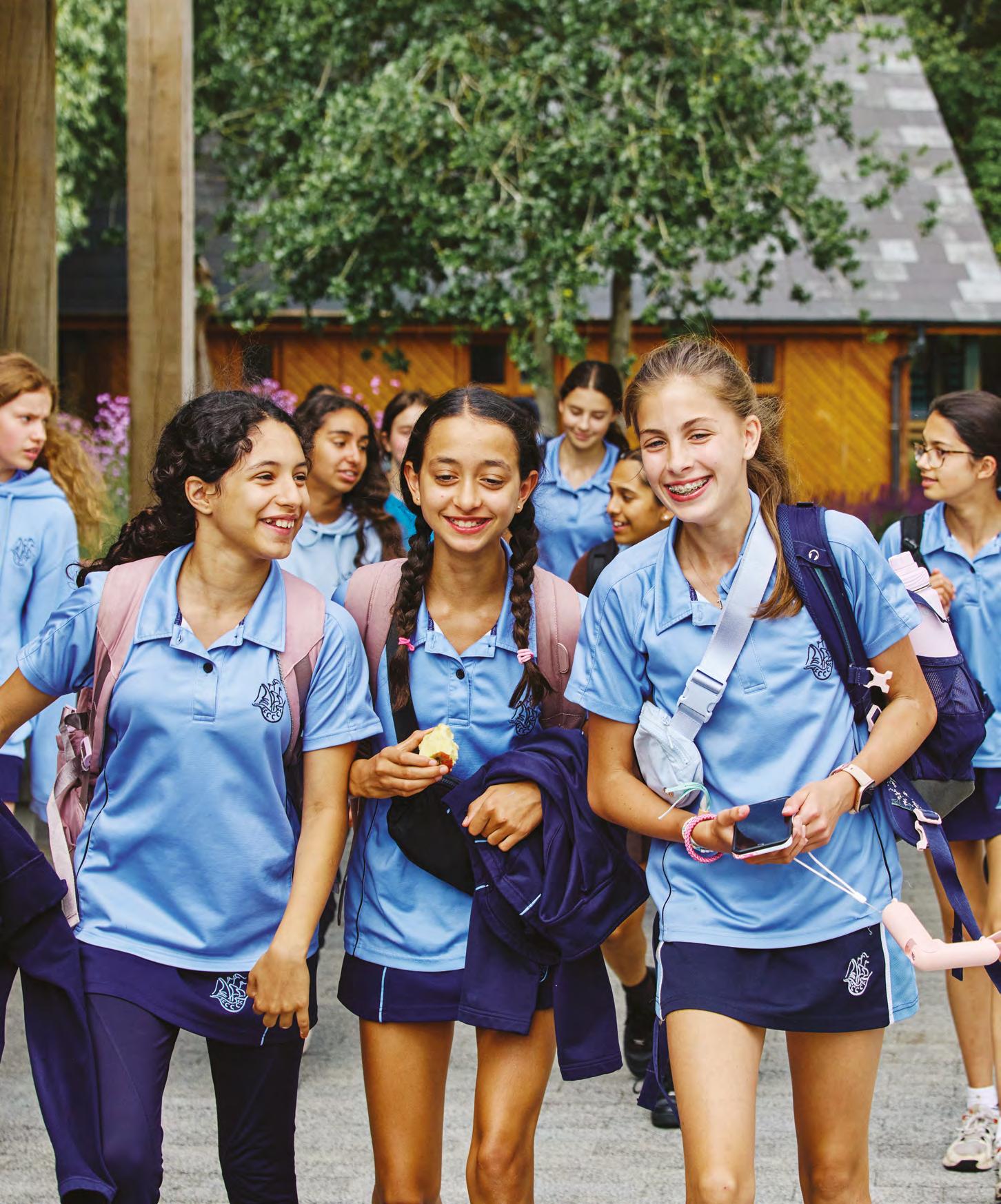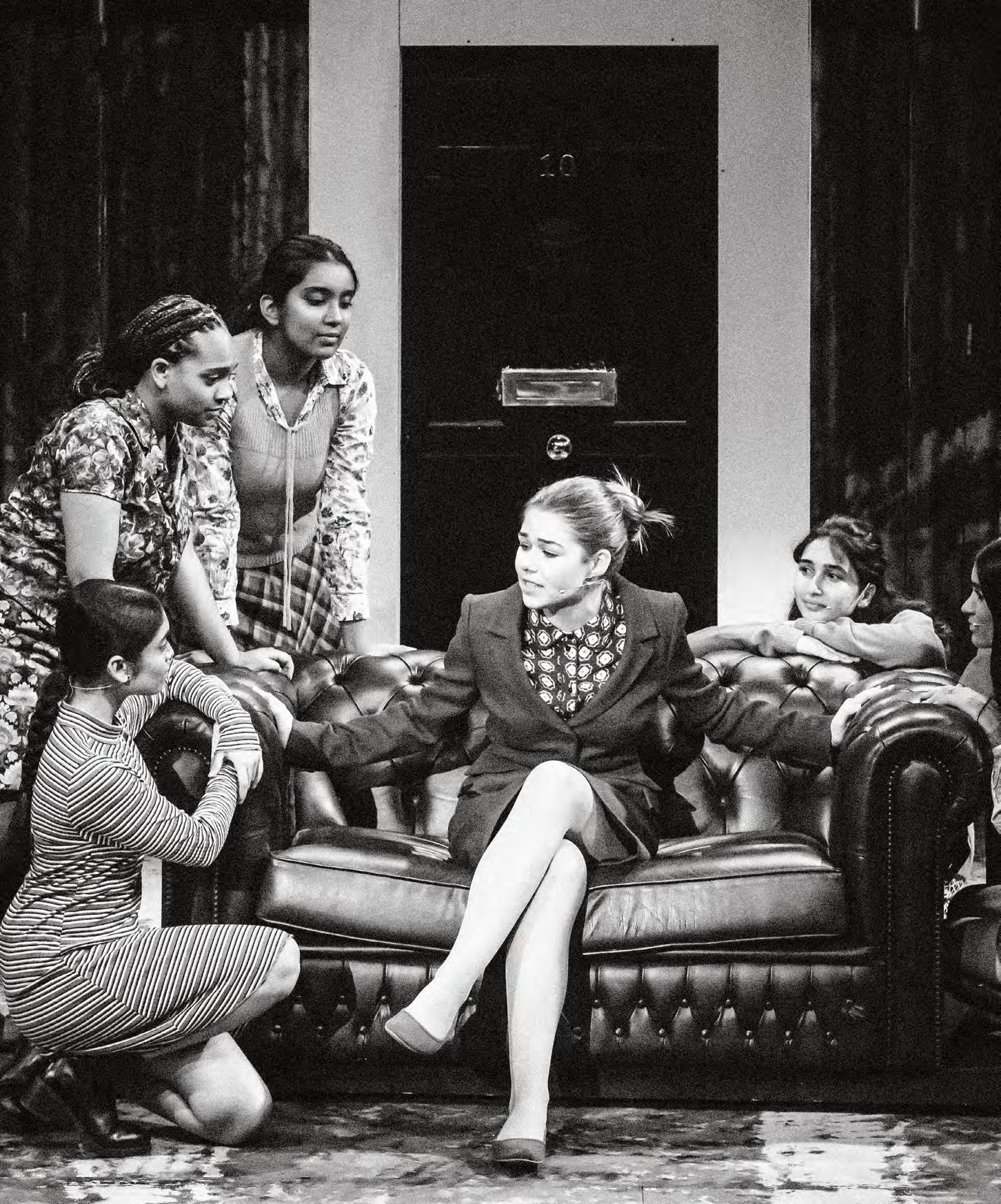
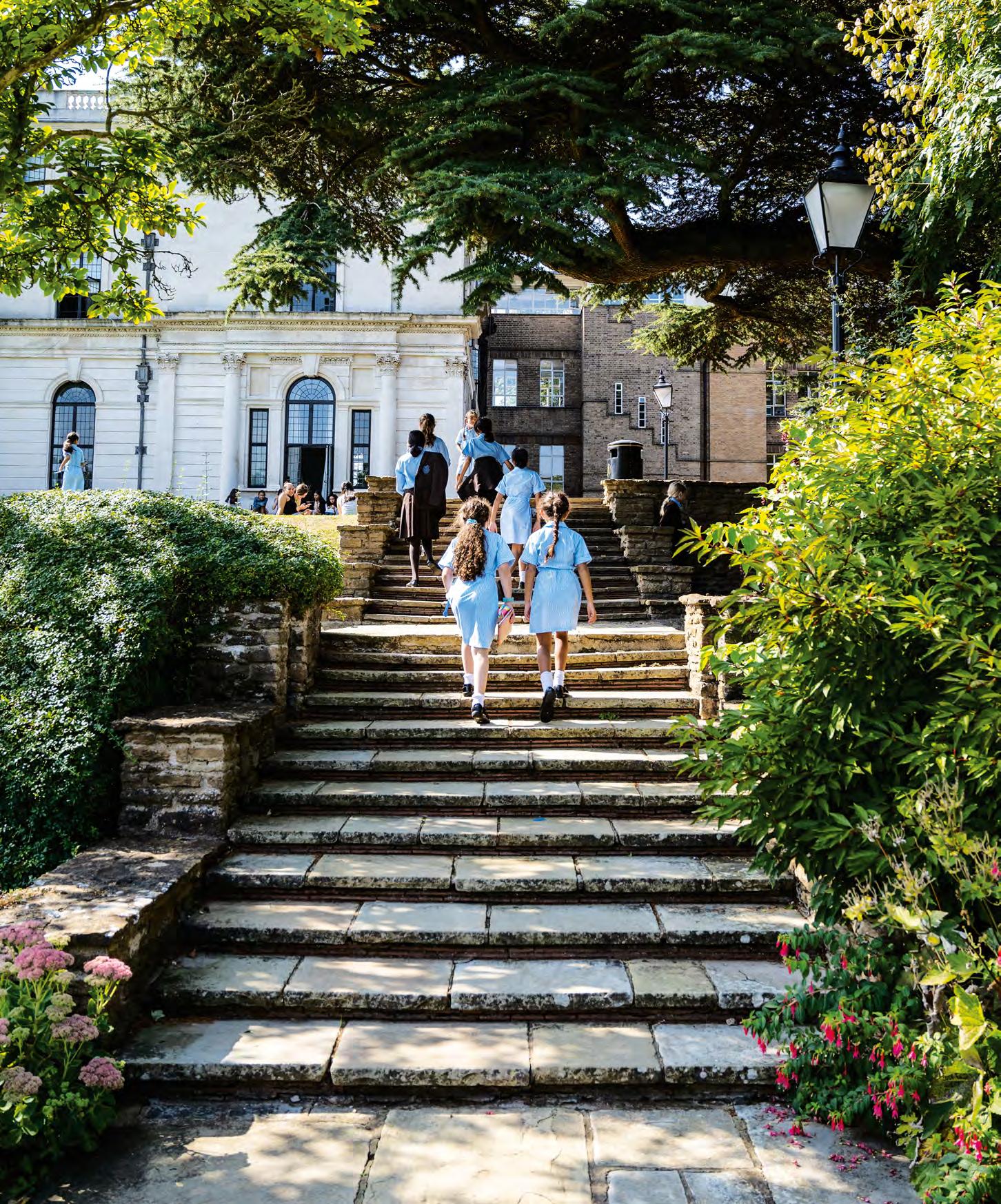



elcome to this new edition of The North Londoner, which returns after a threeyear pause in the same year that we celebrate the 175th anniversary of North London Collegiate School.
It is a pleasure to reintroduce this publication, which offers a window into the life of the school and celebrates the people, ideas and endeavours that have shaped an extraordinary year at Canons.
Since becoming Headmistress in September 2023, I have reflected on what defines NLCS. It is the aspirational mindset of its community, tempered by an effusive sense of camaraderie and community. This magazine is not simply a record of events but a reflection of the spirit of our school.
This year has seen several exciting developments, not least the opening of our new Ideas Hub. Designed to encourage creativity and collaboration, it represents our commitment to innovation and to developing the next generation of female engineers. Alongside this, we have seen a remarkable range of studentled initiatives emerge. Many of these were true NLCS firsts and speak to the initiative and vision
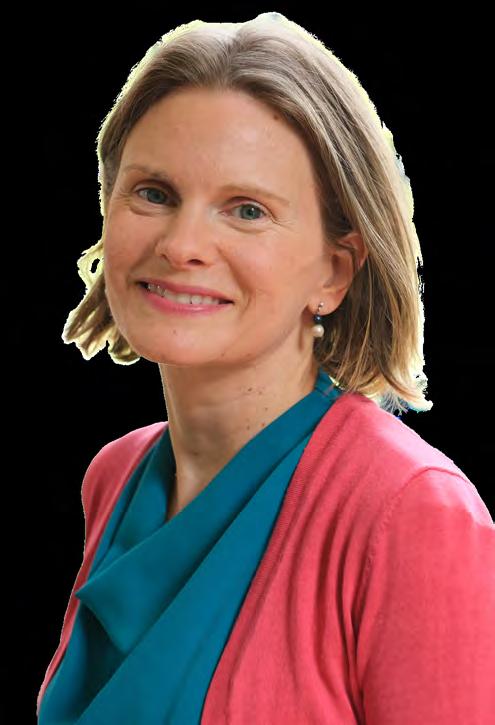

of our girls. It is particularly inspiring to know that many of these ideas will continue well beyond this year.
In a world that often looks restlessly forward to the next innovation, challenge, or milestone, we have spent this year both embracing the future and honouring the past. As you turn these pages, I hope you see both: a school alive with ideas, yet grounded in values that have endured for 175 years.
Thank you to all the students, staff and alumnae who contributed to this edition. I hope you enjoy reading it as much as we have enjoyed living it.
Best Wishes, Vicky Bingham
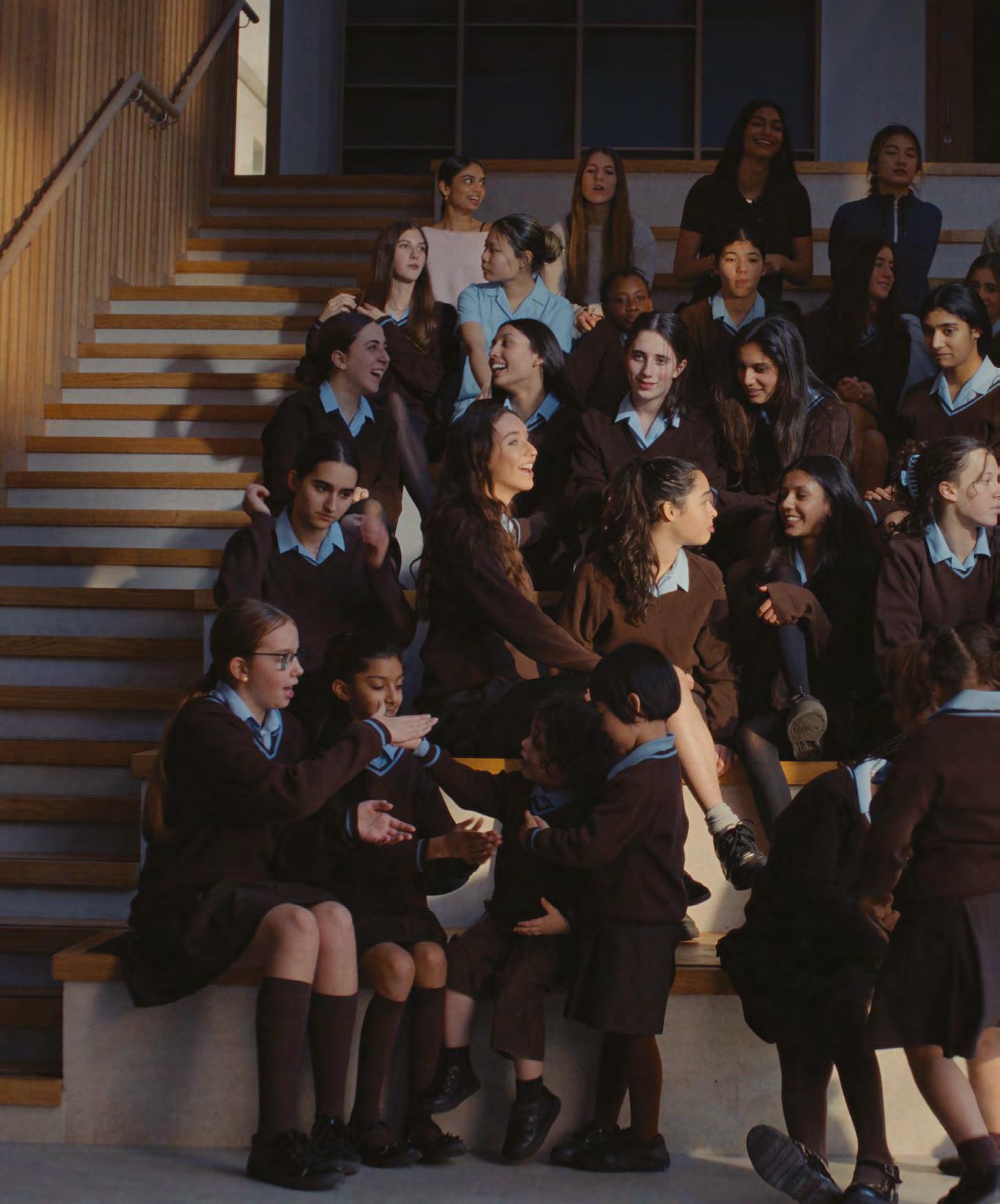
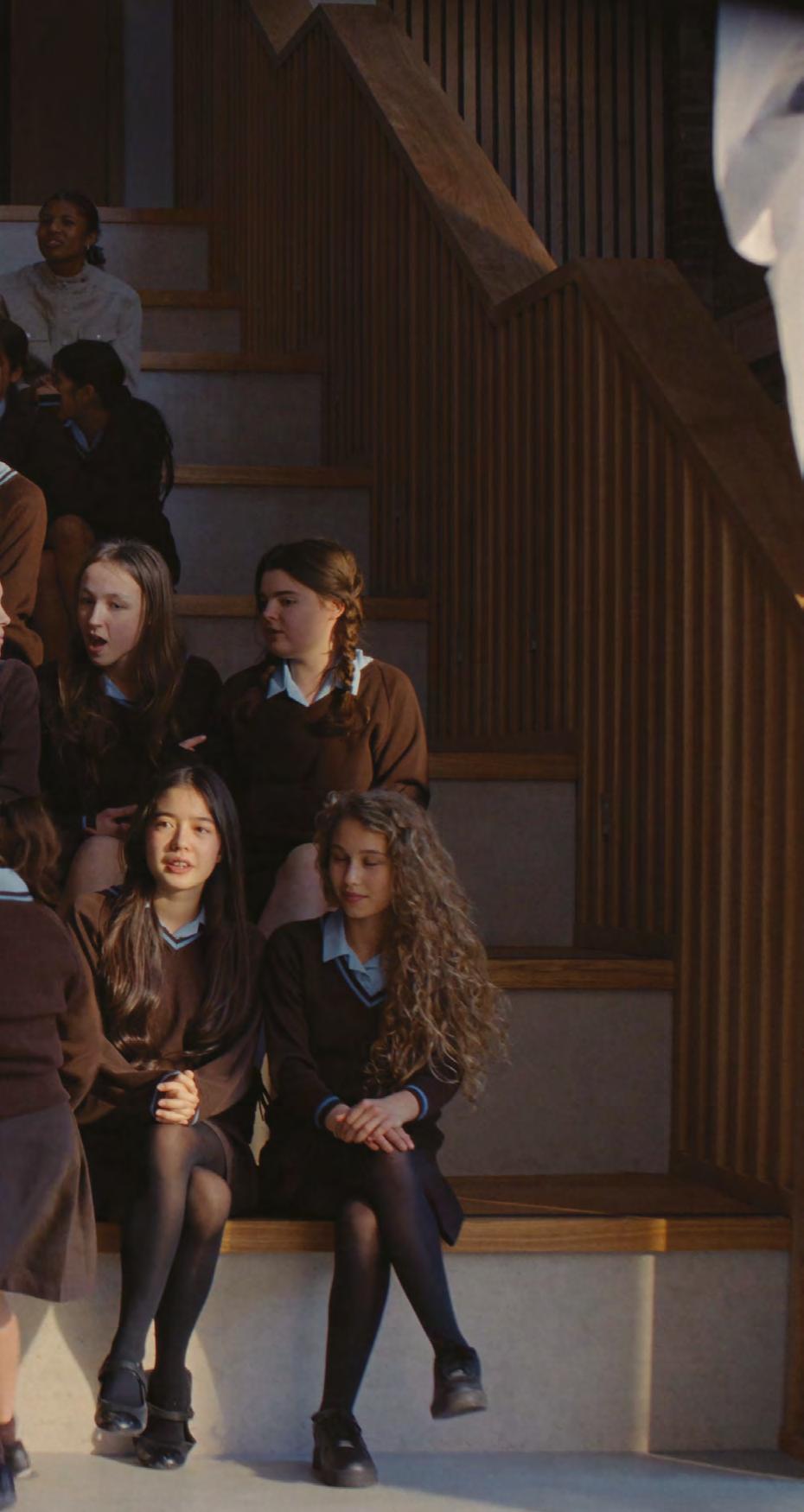
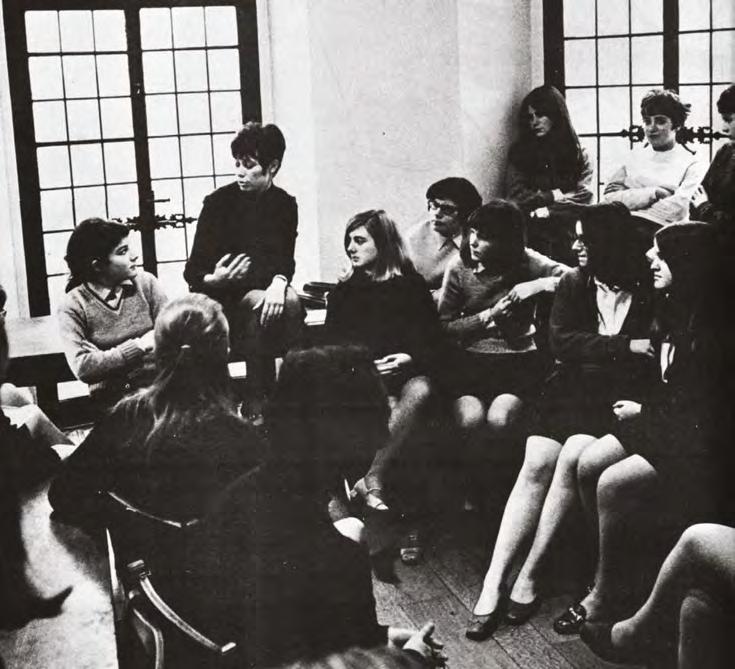
ith 175 years of innovation behind the School, it is fitting that this anniversary year continues that tradition with a wave of new beginnings.
Many of these firsts have been led by students themselves, from the initial concept through to planning and hosting, with support and guidance from teachers. These moments show how NLCS continues to evolve, embracing change while staying true to its values.
Our first ever STEM Conference welcomed over 200 students from eight state and independent schools for an evening of exploration across the five fields of STEM: Natural Sciences, Medicine, Maths, Engineering, and Computer Science & Technology.
The event was led by Year 13 students Bhairavi and Pritthika, who, with support from Mr Duffey and Mr Street, worked hard to bring the evening together.
Over eight guest speakers joined the programme. In Natural Sciences, Professor Ijeoma Uchegbu, a leading expert in Pharmaceutical Nanoscience at UCL and governor of Wellcome, gave insight into biomedical research. In Maths, Oxford’s Professor Emmanuel Breuillard, winner of the 2024 Frohlich Prize, shared work on symmetric groups in algebra and analysis.
Computer Science featured tech entrepreneur Rajiv Azhapilli, founder of Tabnova, and Sarika Basel, a Senior Solutions Engineer at Nando’s Tech, who spoke on the significance of women in technology.
Engineering was represented by Dr Ram Datt, solar energy researcher; Leome Francis from Vodafone; and Mr Walsh, NLCS teacher and engineer across multiple disciplines.
In Medicine, Dr Sarah Dawson, a specialist in Paediatric Neuro-oncology at the Royal Marsden Hospital, discussed her journey into one of the world’s leading cancer centres.
The evening closed with a keynote from Chrissy Hill, a strategic leader and advisor to figures including Tony Blair, Dr Gavin Wood, and teams at Barclays Capital and Linklaters.
We started this STEM Conference to bring together like-minded individuals and discover the incredible opportunities within this field. We want to inspire, excite and bring other students closer to some incredible speakers and ideas that can shape our future
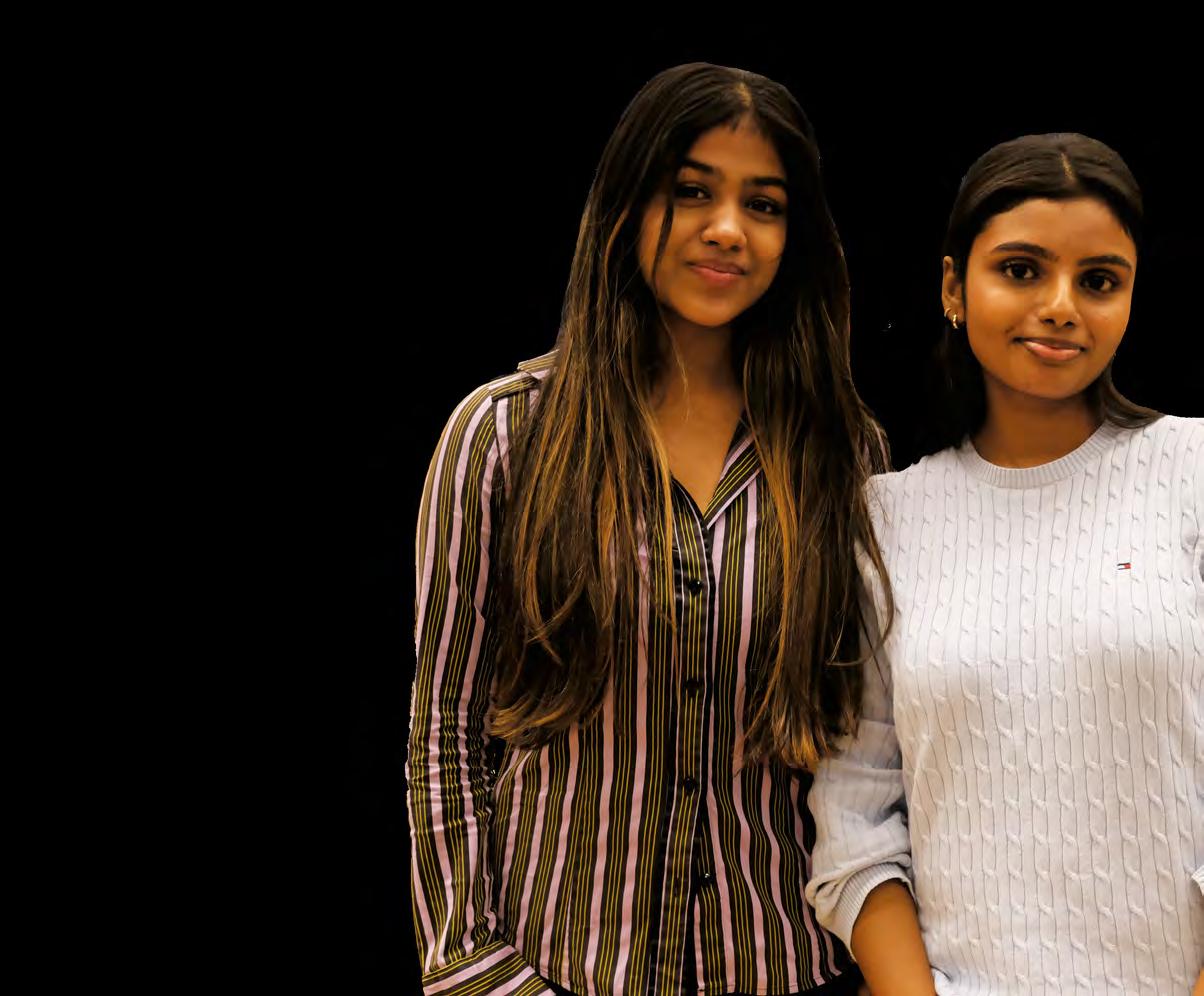

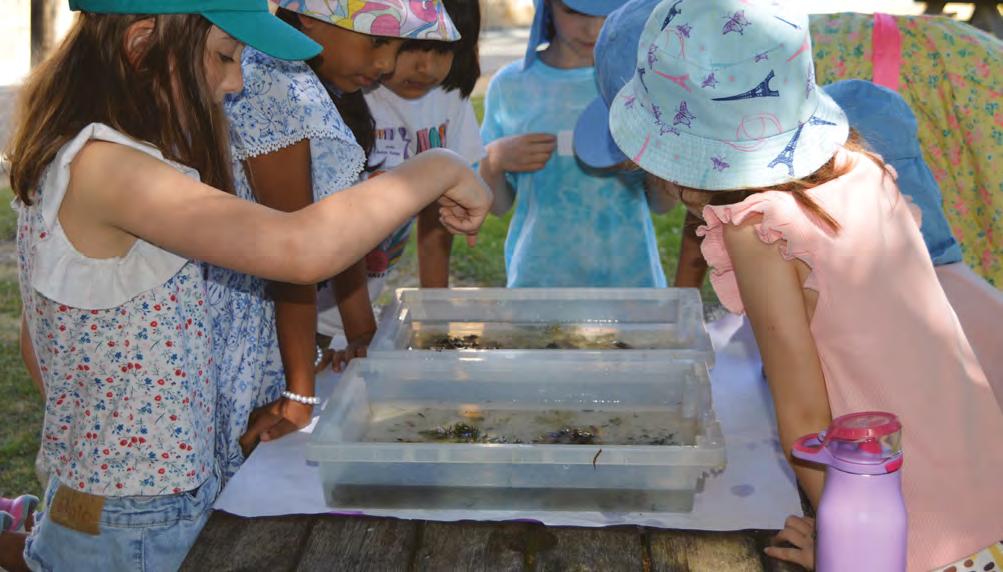
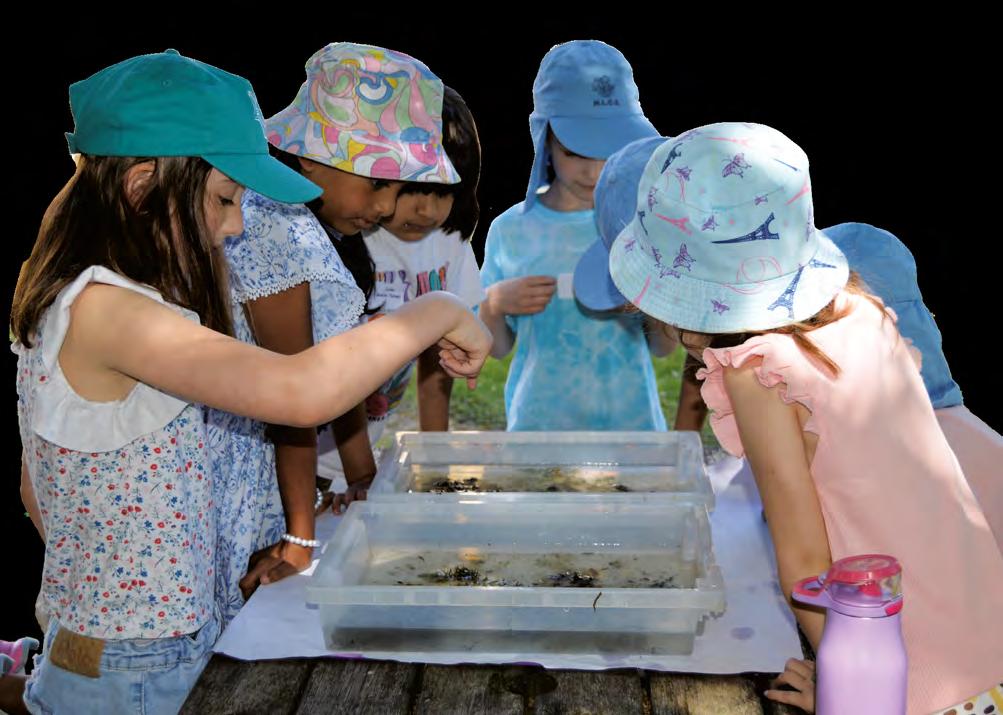
A first for the Junior School this year came in the form of embracing the school grounds. The outdoor learning programme kicked off with the arrival of the tipi, a gift from the Parents’ Guild. It provides a new kind of learning space that offered pupils an open setting for lessons and reflection. Quickly adopted by pupils and staff, the tipi became more than just a feature on the grounds but a place to think and learn differently.
The school grounds continued to evolve with the introduction of orienteering markers. These simple additions transformed familiar spaces into something new, encouraging exploration amongst the pupils. Used in lessons or for extracurricular wanderings, the markers helped pupils build navigation skills.
The First and Lower School also held individual outdoor learning days, which gave every year
group the chance to slow down and connect with their surroundings. Our girls took part in many activities, such as building miniature tipis for teddy bears from natural materials, sketching the scenery, and writing poems inspired by nature. For the Lower School, the day also included taking part in the RSPB Birdwatch whilst the First School spent time near the pond, sketching watercolour scenes and exploring pond creatures.
Another first came with Year 3’s on-site camping residential. Pupils took part in a full programme of activities, including raft building, orienteering trails, team games, and nature hunts. As part of their science learning, they also collected soil samples and carried out experiments based on their findings. The day ended with everyone gathering in the tipi for a magical ‘campfire’.
Ramadan, a sacred month in Islam observed by fasting, prayer and reflection, is also a time for connection and community. To bring that spirit to NLCS, the Muslim Society hosted its first ever Iftar event, bringing families from Reception to Year 13 together to break their fast.
What began as a simple idea grew into something meaningful. Students wanted to create a space where the entire school community could come together to celebrate Ramadan. With support from staff and careful planning, the event took shape.
The evening began with prayer, followed by a shared meal prepared by the NLCS catering team. It was a warm and welcoming gathering, which saw families from a range of faiths joining in conversation and celebration.
It was the first event of its kind for the Muslim Society and an important moment for the school as a whole. The evening showed how a shared experience can bring people closer.
Zahra, Year 13 said:
“ I am so grateful to all of the support the Muslim society received from all of the staff in making this event so special.”
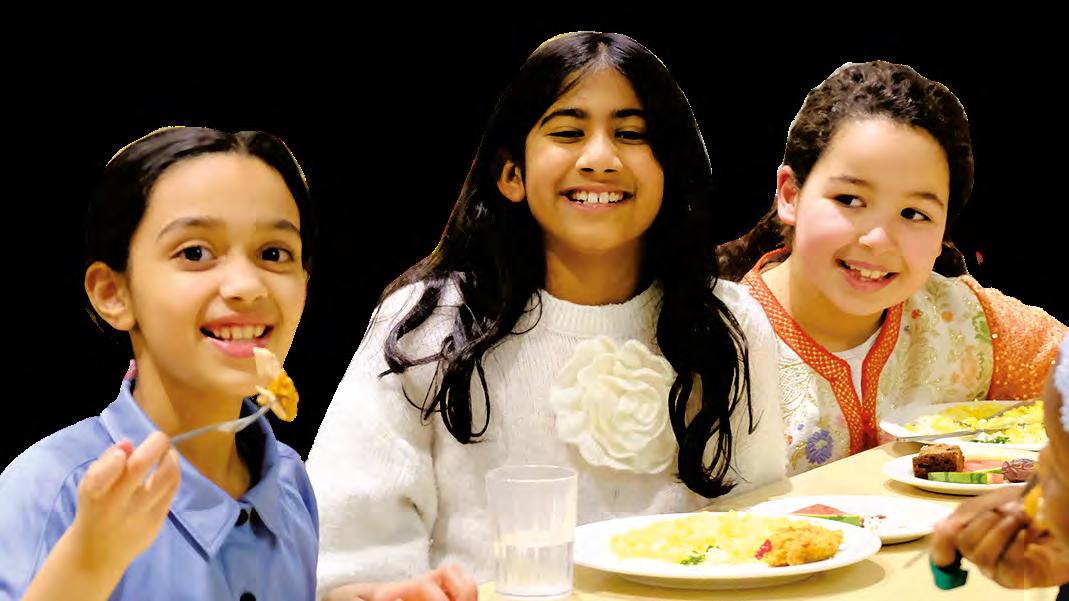
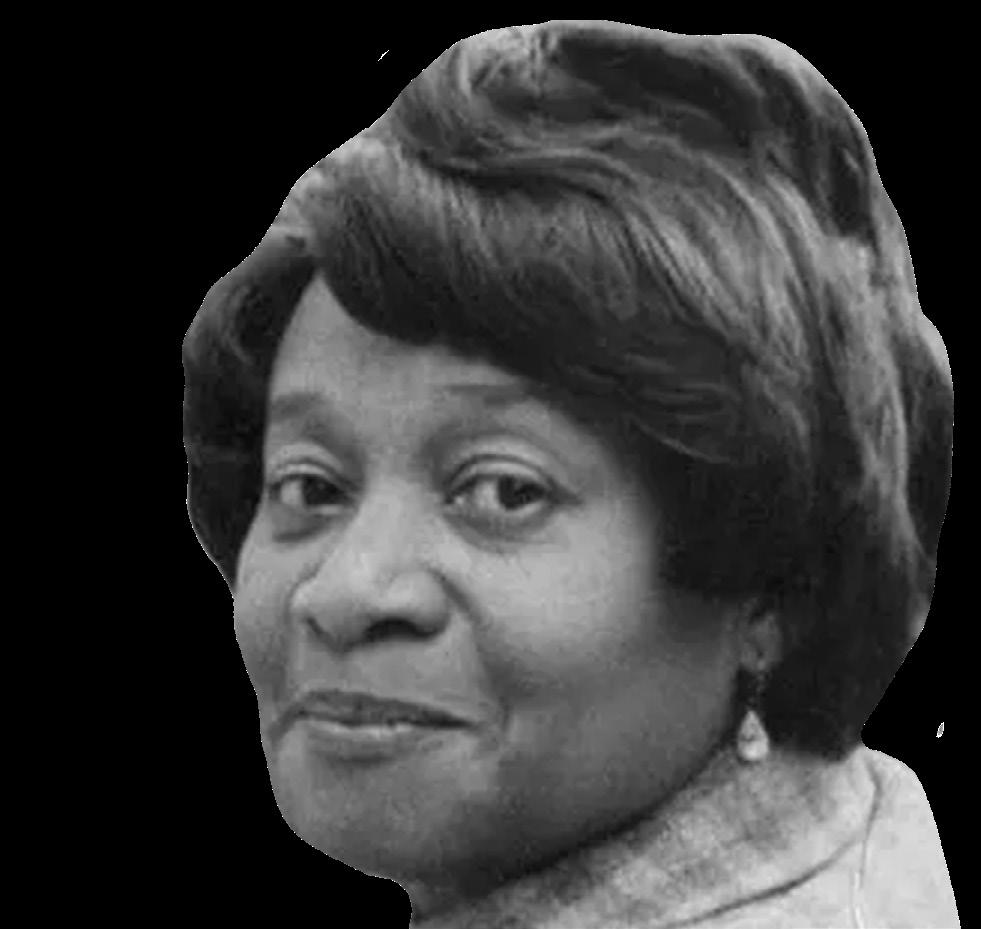
Founded by Frances Mary Buss, NLCS is one of the first schools for girls in the UK, with a long tradition of recognising those who shape the future through education. In that spirit, we were proud to unveil a blue plaque in honour of Dr Beryl Gilroy, London’s first black headteacher and a pioneering force in British education and literature. Her legacy is one of intellect and revolution and her work stands as a testament to the lasting impact of a teachers voice.
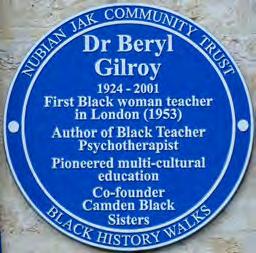
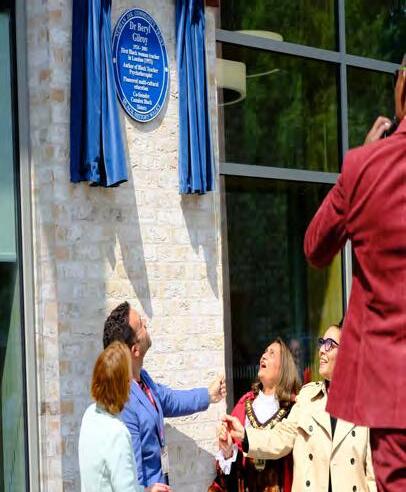
with her memoir Black Teacher (1976) offering insights into her experiences in the British education system. Her work has had a lasting impact on educational practices and the representation of Black experiences in literature.
Born in 1924 in Skeldon, British Guiana (now Guyana), Dr. Gilroy began her teaching career in her homeland before moving to the UK in 1951. Despite facing significant racial barriers, she secured a teaching position in East London in 1954. In 1969, she broke new ground by becoming the head teacher of Beckford Primary School in Camden.
Dr. Gilroy’s contributions extended beyond the classroom. She was a prolific writer,
Installed by the Nubian Jak Community Trust, this unveiling marks the 115th blue plaque in their commemorative series, and is part of a programme by Black History Walks celebrating Black history and acknowledging the achievements of Black Britons.
We were delighted to welcome Dr Gilroy’s daughter, Darla, and grandson, Marcus, to the event. Their presence, and the words they shared, served as a powerful reminder of the legacy she leaves behind. Equally moving was a speech from our own Sixth Form student, Jeslyn, who delivered a thoughtful and articulate reflection on Dr Gilroy’s impact.
Year 6 pupils took on a research project that asked them to consider how the world might be improved. The aim was to develop their research and writing skills, while encouraging independent thinking and personal direction. Each pupil selected a subject that mattered to her with questions ranging from “What can we learn from the gods of Ancient Greece?” to “How can fashion make the world better?”. Some looked to the past, others to environmental or social issues, and many chose questions linked to the world around them. With guidance from Senior School
Over a dedicated day and a half, the pupils gathered information, practiced notetaking, and worked with a structured set of materials to help shape their writing. For many, this was their first experience of crafting extended responses in a more formal, journalistic style. Because the subjects were chosen individually, each pupil was able to focus on something meaningful, which gave the work a noticeable sense of drive and purpose.
The project concluded with a science-fair style showcase in the Ideas Hub, where parents were invited to view the finished pieces and speak to
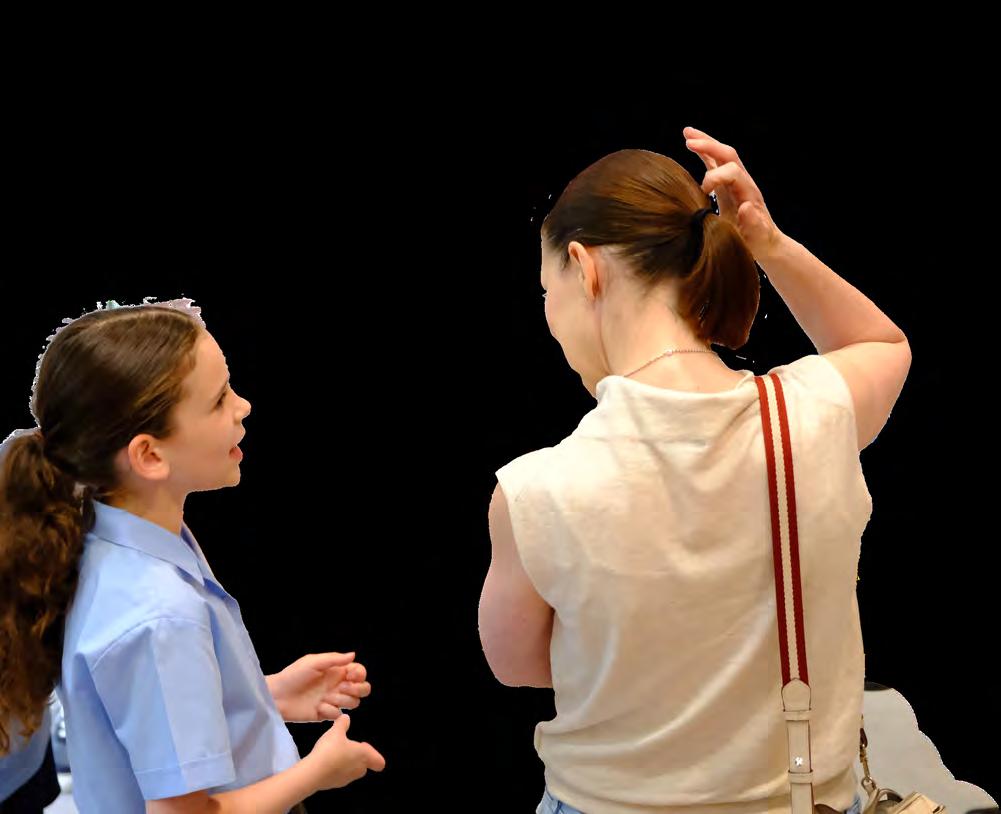
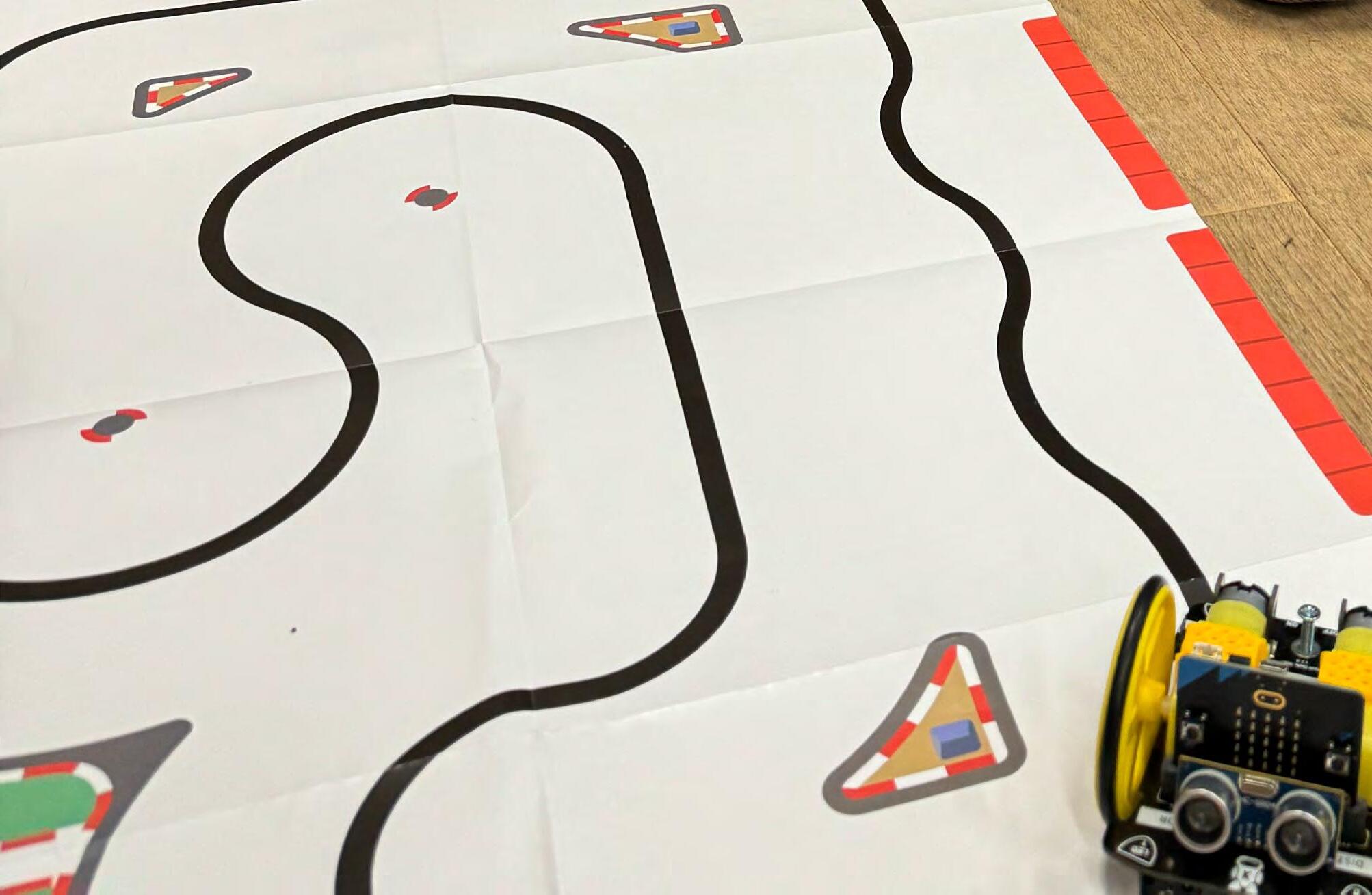
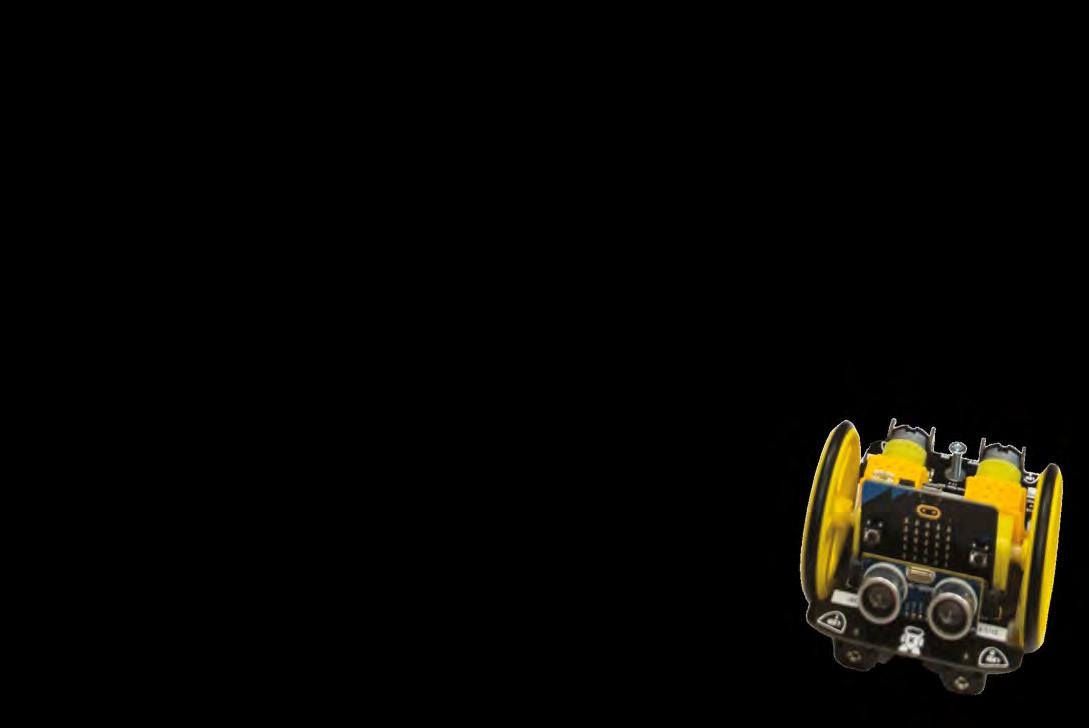
world of artificial intelligence through a coding challenge that introduced them to the principles behind technology. Using the CreateAI platform from the Micro:bit Educational Foundation, the girls trained Micro:bits to recognise simple hand gestures, including the classic high-five.
They began by collecting data and feeding it into the system, learning how to train a model and testing how accurately it could identify movement. Once their Micro:bits could identify gestures accurately, the pupils programmed them to respond with flashing LEDs or a short tune. What began as playful coding soon turned
quality and model training affect results. Along the way, the girls connected this work to everyday technology such as smartwatches and fitness trackers.
These hands on projects are part of a wider learning programme at the Junior School designed to give pupils a practical understanding of AI. By the time they reach Senior School, students will work towards earning a AI Driving Licence, a qualification that encourages them to think creatively about artificial intelligence.
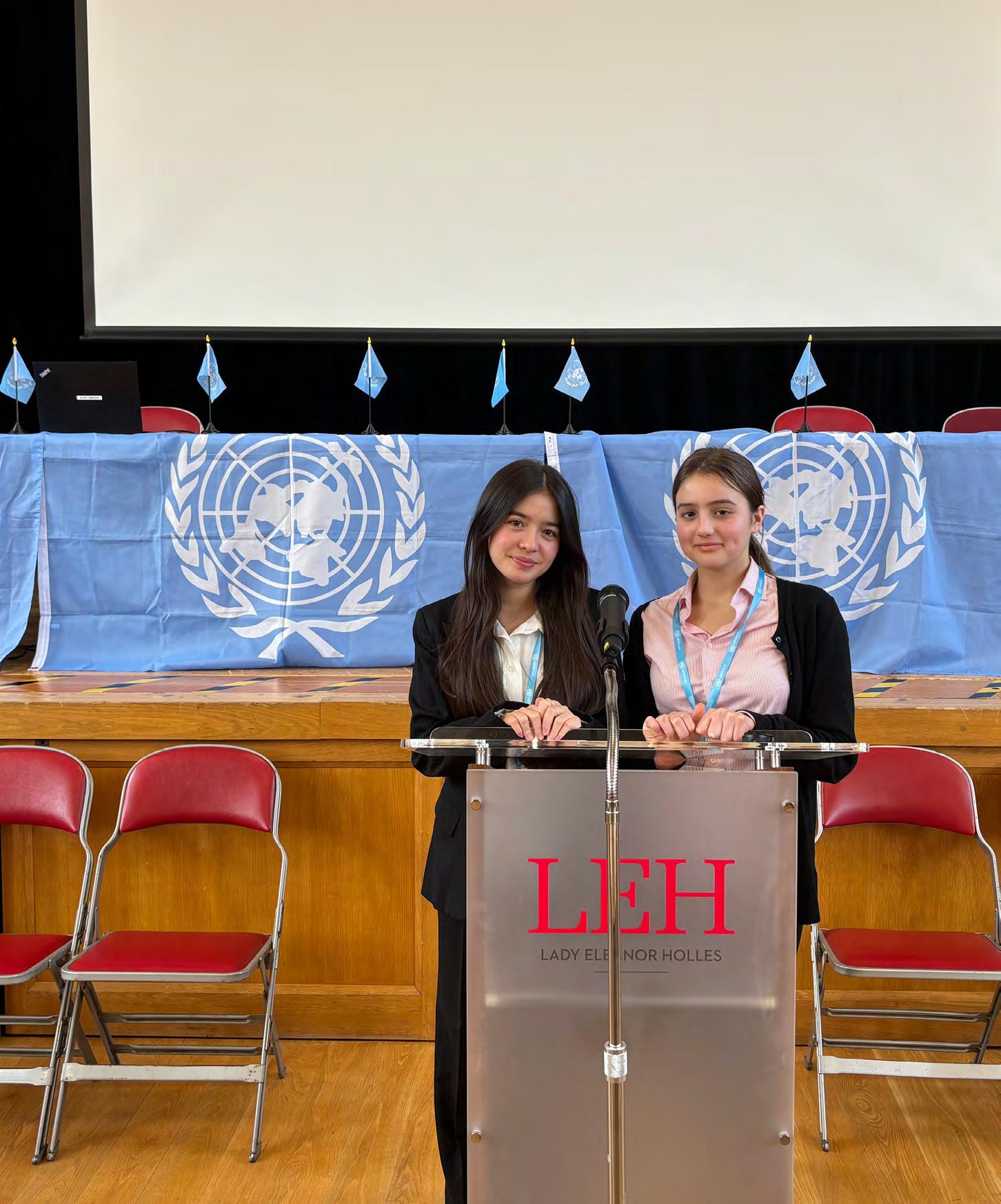
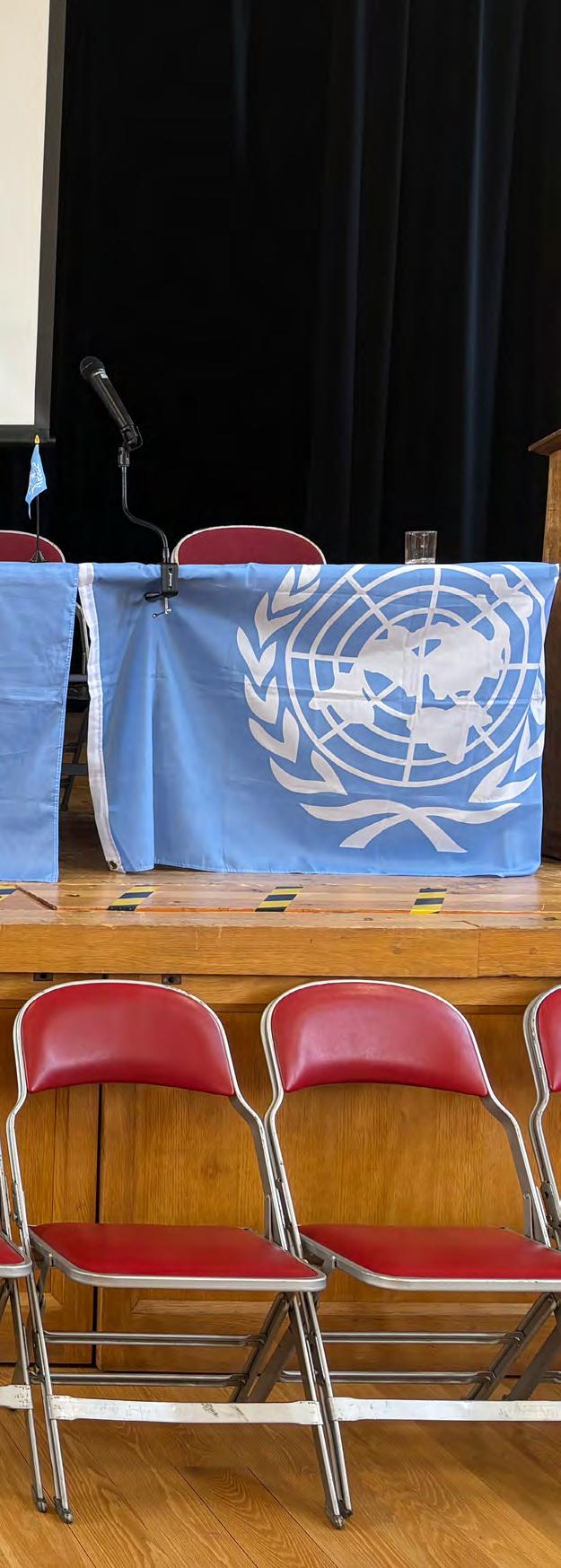
s much as we value innovation here at NLCS, there are certain traditions that continue to shape who we are.
Throughout the school year, there are a few key events that students look forward to. These moments have become milestones in the calendar and in the memories of those who take part. Some of which are still fondly remembered by ONLs, long after they’ve left.
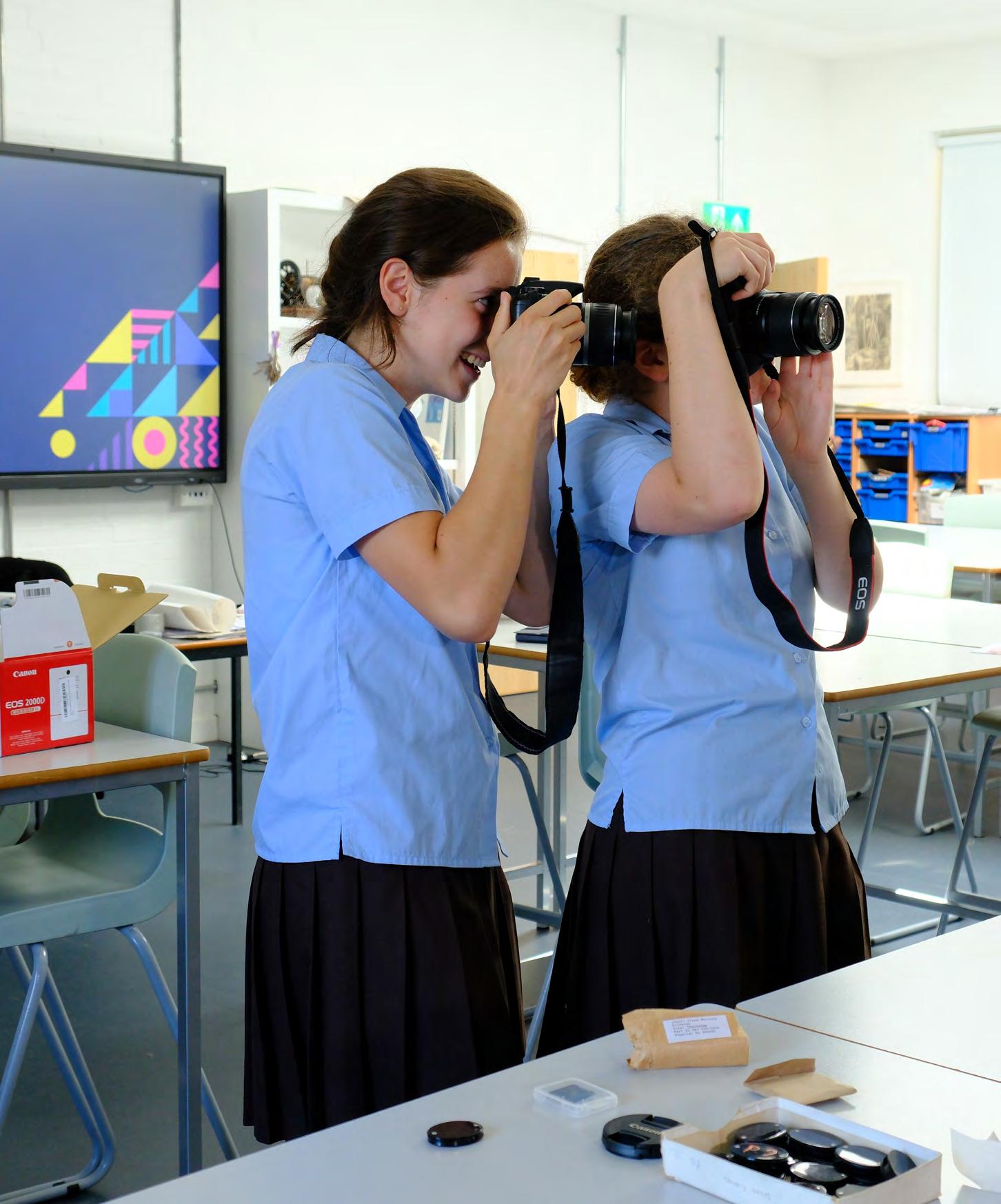
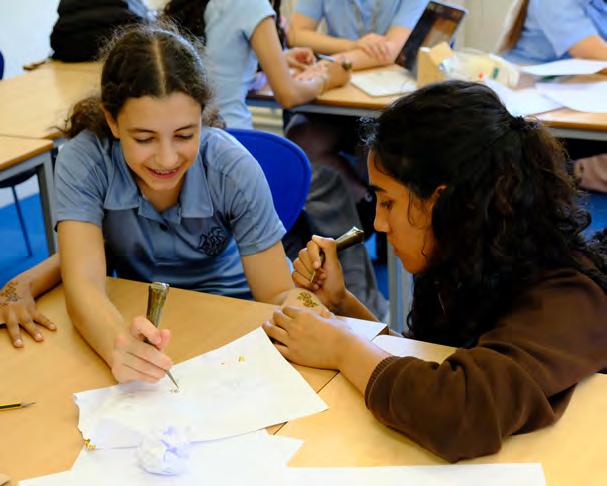
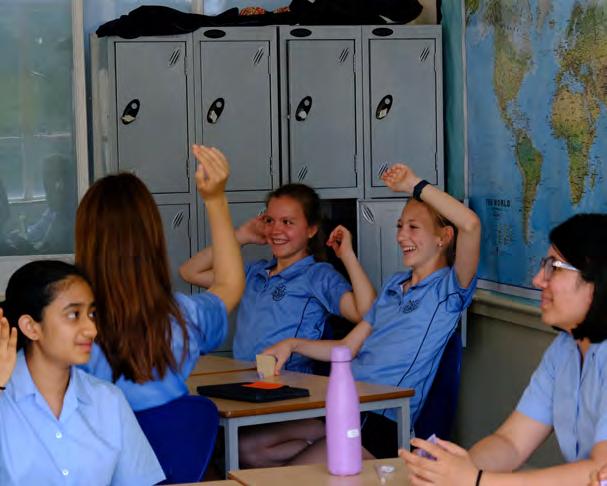
The school week looked different during the Summer Festival. Over four days, the usual timetable was replaced with 175-themed student-led workshops across a wide range of subjects. All were created and run by Year 12 society leads, giving students the chance to explore topics in new and often unexpected ways.
On one day alone, more than 30 sessions ran simultaneously, covering everything from medical science to political theory.
In Film and Media Society, students watched Fantastic Mr Fox before designing their own Wes Anderson-inspired characters. Medical Sciences explored the history of surgical practice in 175 Years of Lung Surgery, using anatomical dissection to examine how understandings of the human body have changed.
In the art studios, The Big Draw responded to the theme of curiosity through drawing, favouring process over product. In mathematics,
students encountered Catalan Numbers in What Comes Next?, discovering how abstract patterns reappear across combinatorics and geometry.
Some workshops looked to the future. The Feminist Society asked What Will Feminism Mean in 2200?, while the Philosophy Society reconsidered what it means to ask questions. History Society put ideas on trial, and Psychology ran a treasure hunt tracing how theories of the mind have shifted over 175 years.
Elsewhere, Engineering Society worked with wood, Physics extracted DNA from strawberries, and Humanities explored cultural traditions. From henna designs to inflation economics and mock UN negotiations, the festival showed how intellectual curiosity can be both rigorous and inventive.
The festival offered no prizes and no marks. Its success lay in the quality of engagement and the willingness of students to approach familiar subjects from unfamiliar angles.
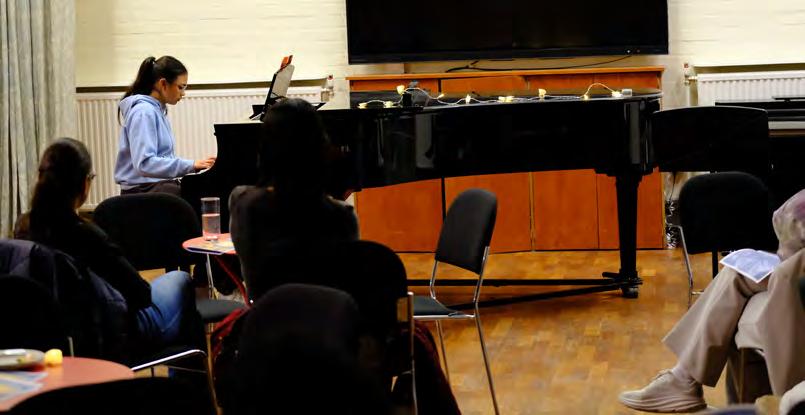
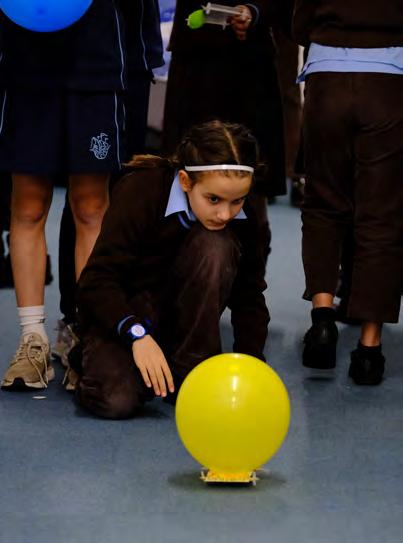
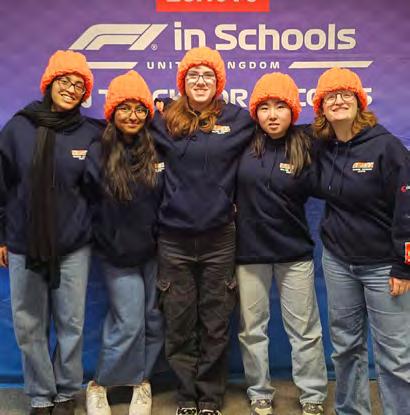
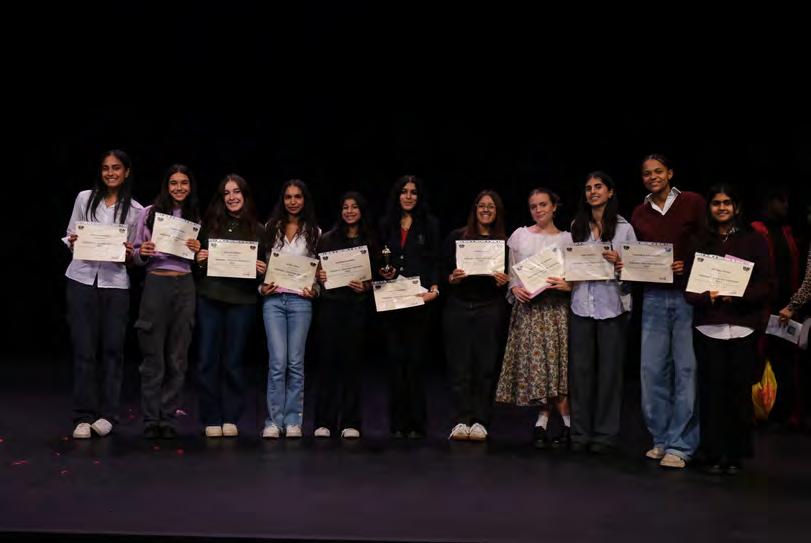
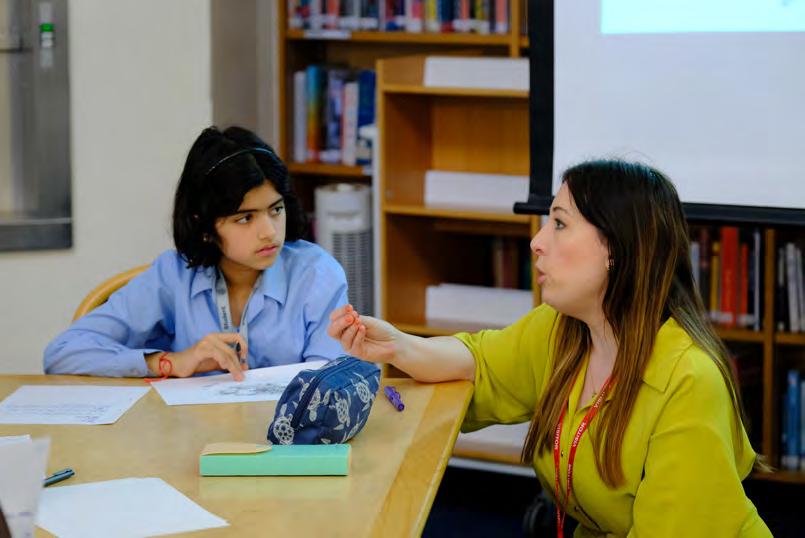
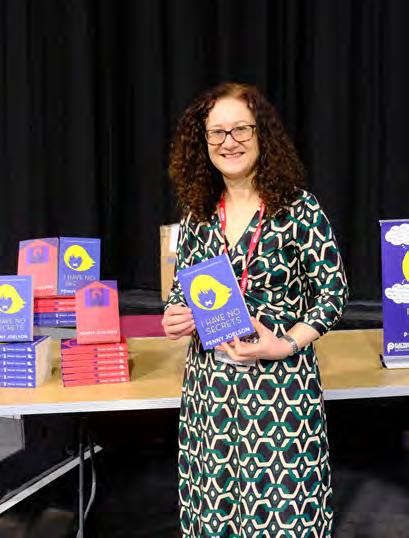
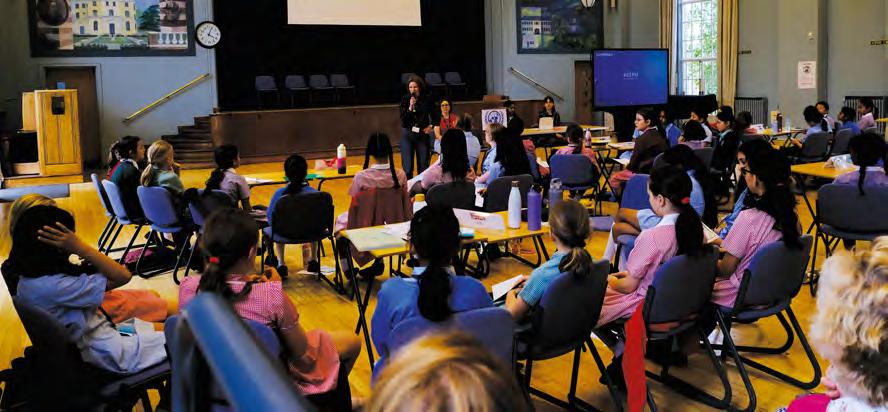


1. French Soiree
2. F1 in Schools
3. Junior School STEAM Week
4. Hispanic Theatre Festival
5. Author Visit - Tamsin Winter
6. Author Visit - Penny Joelson
7. Year 5 MUN
8. Philosophy Conference
9. Year 4 Greek Day
10. Year 3 Times Table Rockstars
11. Raising voices, Brain Waves
12. 20 Years of the IB
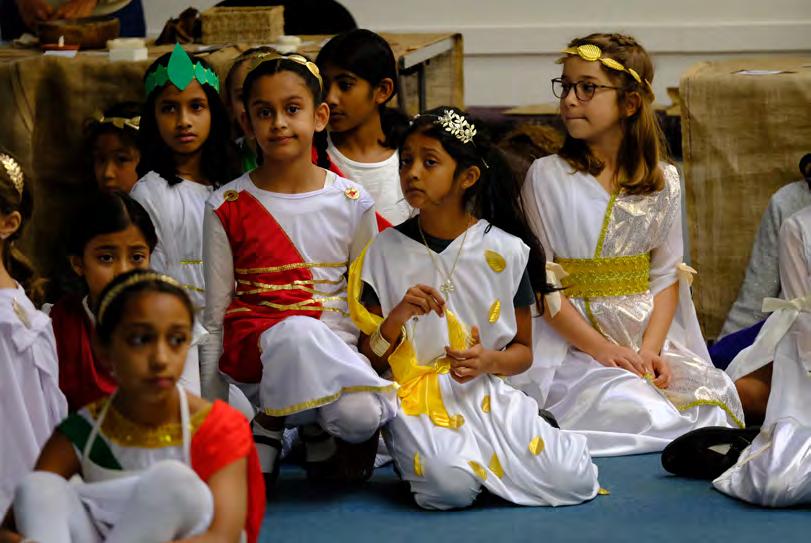
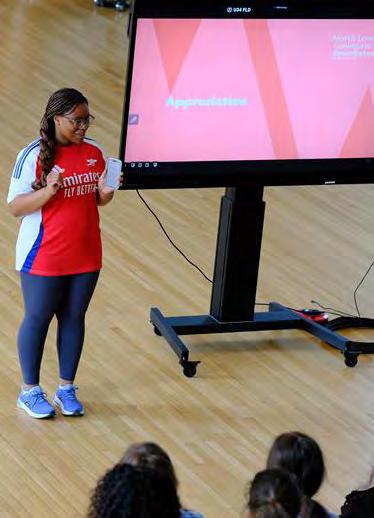
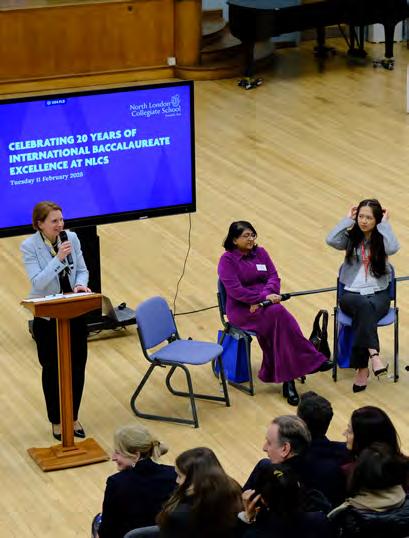
Year 11 student Sujena stood out among the nation’s best by achieving one of the highest scores in the Intermediate Physics Challenge, run by the British Physics Olympiad at the University of Oxford.
Her success earned her a Gold Certificate and an invitation to the awards ceremony at The Royal Society in London, where she was recognised alongside top students from across the country. As one of only a few girls honoured, Sujena’s achievement shines a light on the importance of encouraging more young women into STEM.
Reflecting on the day, Sujena said:
“It was a wonderful day as I was lucky to meet leading representatives of institutes such as G-research and prominent professors from Oxford and Cambridge. I was awarded a Gold Certificate, and a book prize, alongside a fascinating construction kit to make a transegrity table. I was very proud to be one of the few girls, let alone of the top-performing students to be invited to this event, and I am forever indebted to NLCS for inspiring girls like me to pave their path with confidence, strength, and fearlessness.”
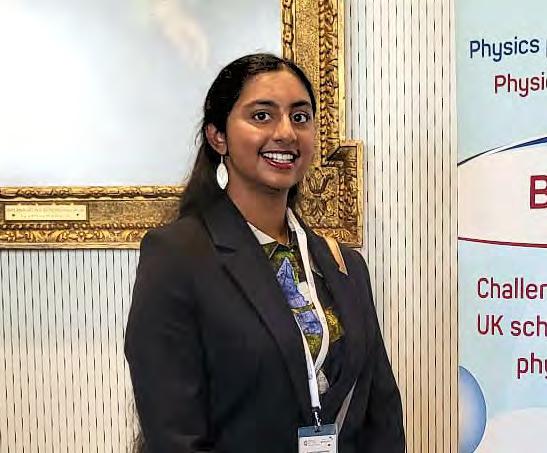
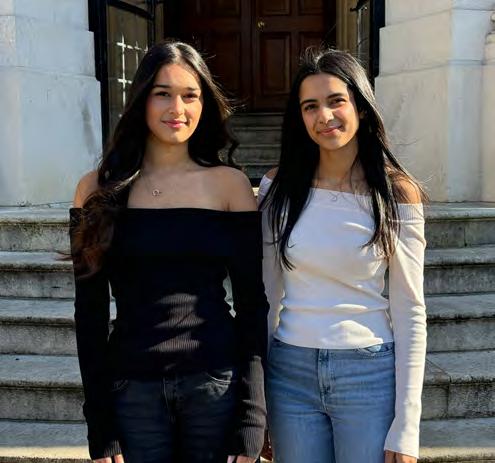
Year 13 students Prisha and Aisha have each secured sought-after degree apprenticeships, a reflection of both their ambition and the growing recognition of alternative routes into top industries. These apprenticeships combine academic study with professional experience, offering a practical start to their chosen careers.
Prisha has joined JP Morgan Chase on a degree apprenticeship, studying Financial Services at the University of Exeter and working towards a CISI qualification. She’ll rotate through different teams, putting theory into practice in a dynamic financial environment. “I chose a degree apprenticeship because it offers the best of both worlds, gaining practical experience while earning a degree,” she says. Prisha prepared thoroughly, practising mock interviews and focusing on remaining relaxed during a challenging selection process.
Aisha is undertaking a degree apprenticeship with UBS, studying Applied Finance at the University of Exeter. The chance to avoid debt and build professional networks early were major draws for her.
“It offers a great way to gain work experience that is difficult to achieve through traditional university study alone” she explains.

The 2024 Bebras Computing Challenge saw outstanding performances from students across all sections of the School, with results that placed them well above national averages.
In their first year taking part, Junior School pupils made a
strong impression. Out of 232 entries, 61 students received Gold Awards, an outstanding 26.3% compared to the national average of 10%. Even more impressive, 16 achieved perfect scores.
The success continued into the Senior School, where 307 students took on the challenge, achieving high scores across every category. In the Junior category (Year 7), 13 students earned perfect scores and four others received distinctions.
The Intermediate level (Years
Izzy has been awarded first place in the 12–15 age category of the Oxford Peregrine Prize for Young Writers, a citywide competition run by Oxford Writers’ House.
This year’s theme, Dreams, drew imaginative entries from
students across the country. Izzy’s story was praised for its originality and narrative strength, earning her top honours.
She received her award from the Lord Mayor of Oxford at a prize-giving ceremony held at Oxford Town Hall in May.
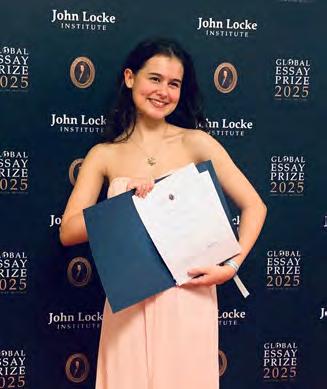
Senior School student
Giorgietta attended the John Locke Institute Global Essay Competition event in Oxford, where she was recognised for her entry in the theology category. The competition received a total of 64,000 entries from students across 190 countries.
Having developed her essay during the Summer Term, Giorgietta was awarded a
8–9) saw five perfect scores and 34 distinctions. In the Senior group (Years 10–11), 17 students were awarded additional distinctions, with the top score reaching 204 out of 220. Sixth Form students also excelled, earning four distinctions and a top score of 196.
The Bebras Challenge tests logical thinking and problemsolving in computing. These results reflect the School’s commitment to nurturing excellence in STEM and encouraging students to stretch their skills in a global context.

personally signed certificate, a guaranteed interview for the Institute’s Summer Programme, and a partial scholarship. She was the youngest at her theology table, where there were only three winners and four commendations.
During the event, Giorgietta attended lectures, took part in essay discussions and met students from around the world.
have attained their first choice university place and top 10 subject areas 89% of the Class of 2025 went to a global Top 10 university
UCL Oxford
44%
Students going to either Russell Group Universities or a university in the global top 100 92%
8 applicants studying in the US, Canada and Europe

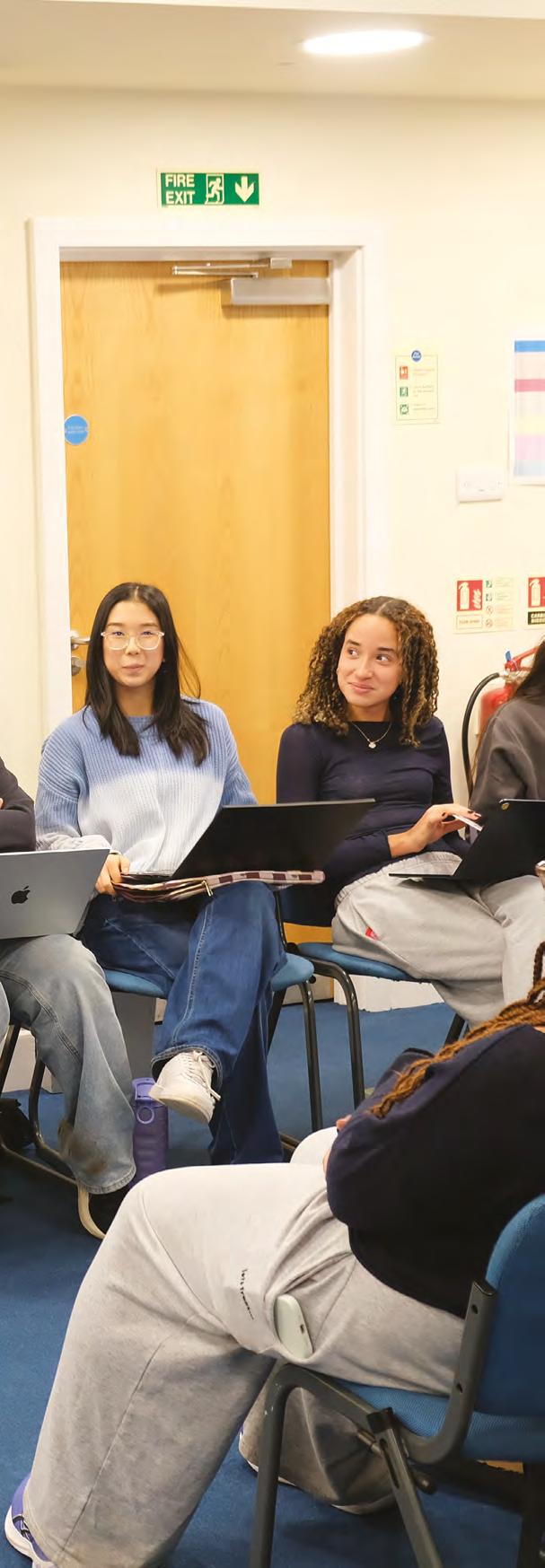
250 speakers. Organised by our girls. Proven to inspire.
That’s how we would describe the Senior Societies programme in three short sentences, but in actual fact, it’s so much more. NLCS values representation and through this programme, students get a chance to reach out to those they feel inspire them to offer talks to them and their peers. It’s a fantastic way for students to gain an insight into their possible future industries and receive direct advice from those who are in it.
This year provided a real mix of speakers from a range of backgrounds, enabling our girls to take the hats of many roles. They were interviewing, leading discussions and making sure they got the best out of each session.
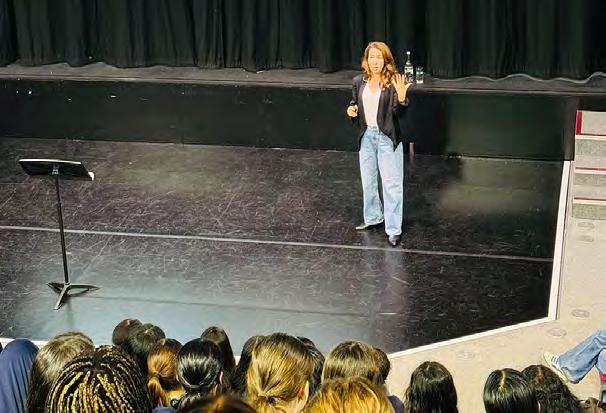
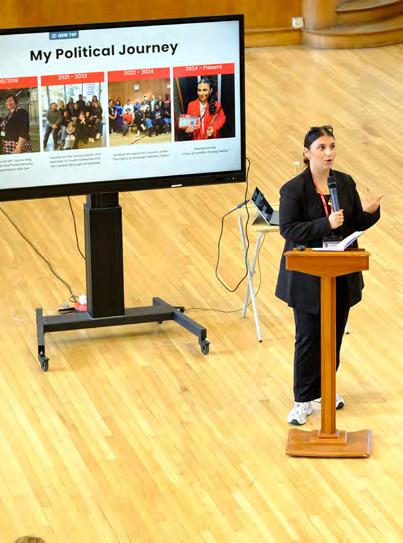

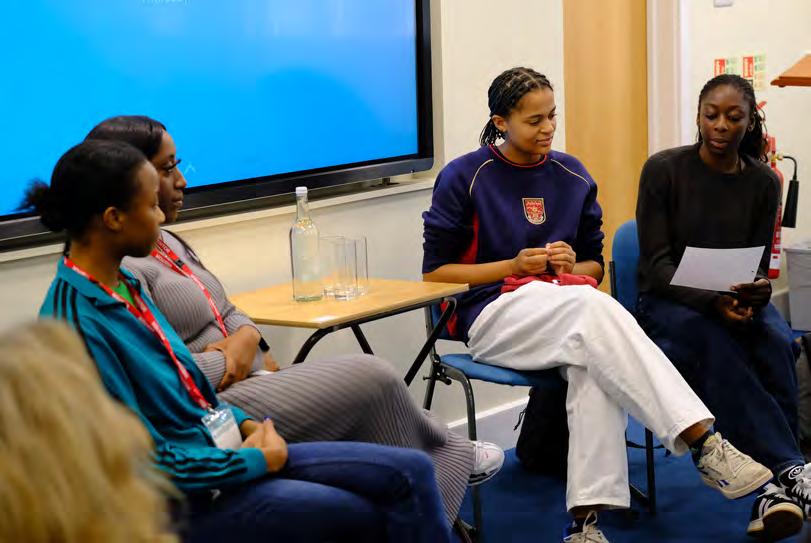

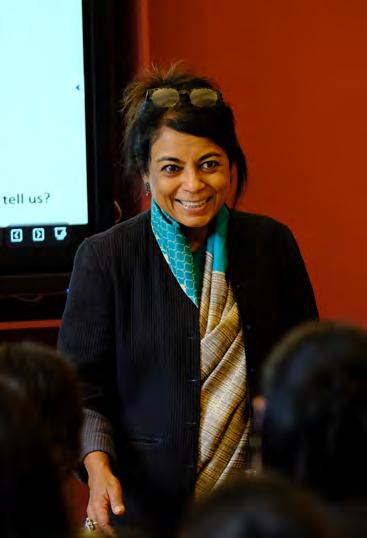
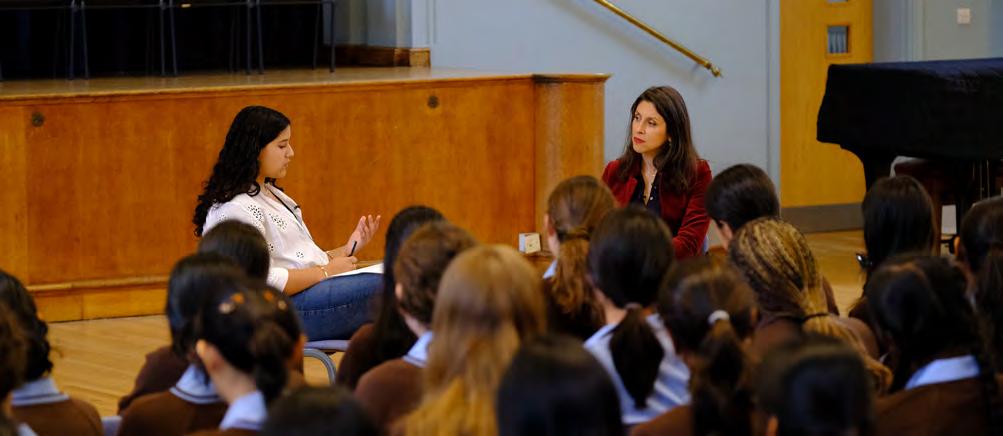
Senior Student Aiyana opened the first Senior Societies talk of the year with an interview-style session featuring Nazanin Zaghari-Ratcliffe, who spoke about her wrongful imprisonment in Iran. She described life in prison, how she held onto her faith, and what it was like to be reunited with her family after her release.
Nazanin was born in Tehran in 1978 and moved to the UK in 2007 to study for a Master’s degree. She later worked for the BBC World Service Trust. In 2016, while visiting family in Iran with her young daughter, she was arrested by Iranian authorities on unclear charges. During her time in prison, she faced long periods of isolation and uncertainty about her fate.
The students listened closely throughout the talk and asked thoughtful questions. Aiyana steered the conversation to cover both the personal and political aspects of Nazanin’s story, helping the audience connect with her experience. Many students left reflecting on the importance of standing firm and speaking out, even when the situation seems hopeless.
During the Q&A session after the talk, Nazanin Zaghari-Ratcliffe said: “I kept my faith whilst in solitary confinement by thinking of the family I have waiting for me outside. I usually enjoy bringing my daughter to these events as I believe it’s important for her to remember that what I went through is part of who we are now and although challenging, it has made me stronger.”
I kept my faith whilst in solitary confinement by thinking of the family I have waiting for me outside
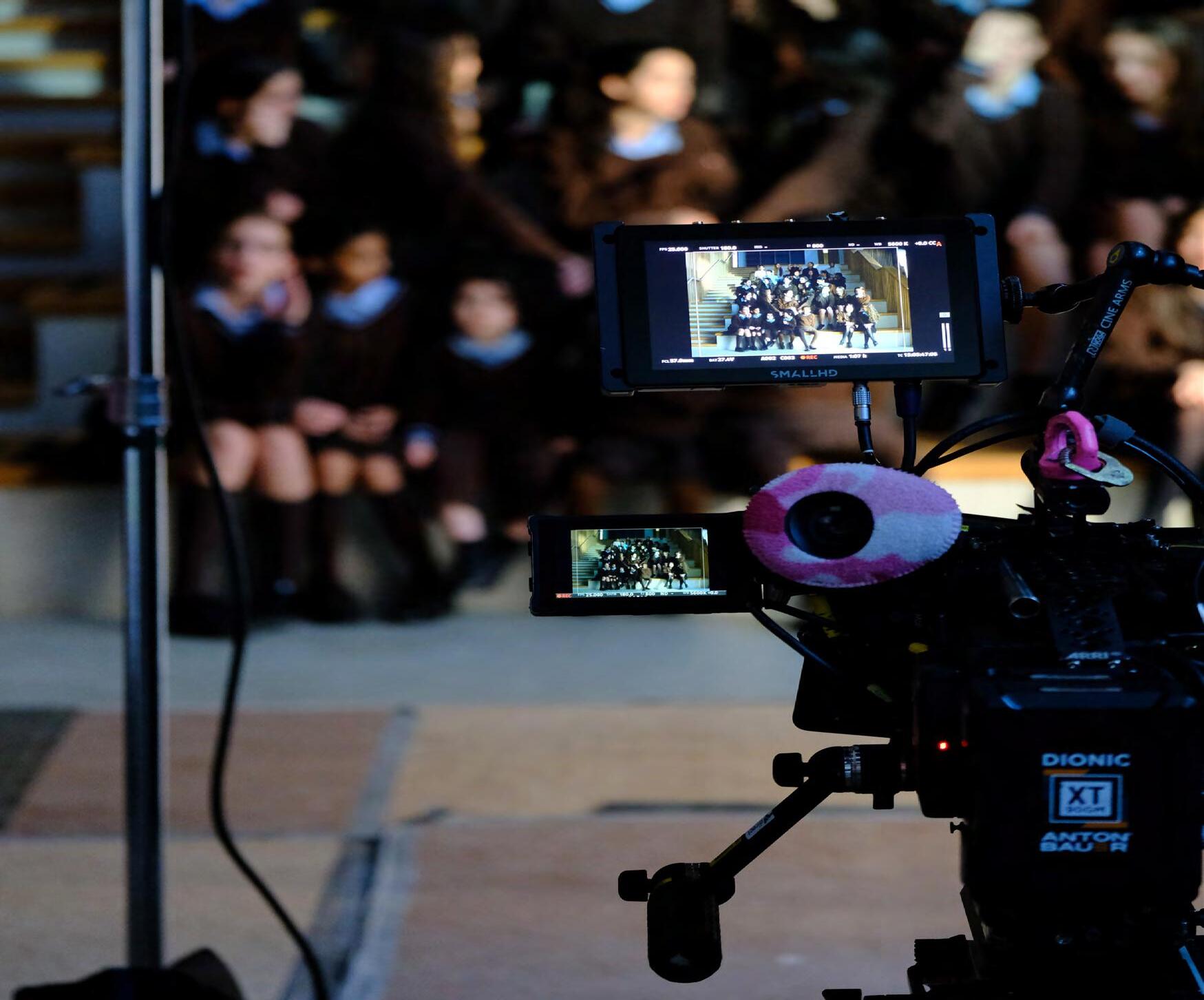
This year, the Film and Media Society has offered students a chance to look at cinema in greater depth. Sessions focused on individual films, using them as starting points to explore wider ideas. Discussions included the philosophical themes in The Truman Show, the harsh working conditions behind the original Wizard of Oz, the challenges of adaptation in Scott Pilgrim vs. The World, and the way sound and visual rhythm shape meaning in Baby Driver. Students prepared and delivered their own presentations, bringing theory into the conversation, selecting scenes for analysis, and guiding discussions that encouraged a more critical approach to film.
Beyond weekly sessions, members of the society also had the chance to be involved in the school’s new film project. Working alongside the Marketing Department, students contributed to the early development stages and met with the film’s director and production team. This gave them a valuable look at the creative decisions and planning behind a professional shoot.
Toward the end of the year, the society began hosting screenings in the Ideas Hub Atrium followed by Q&A sessions. These events have been well attended, and there are plans to continue them in the coming year.
It’s been quite a year for Hindu Jain Society with plenty of celebration and community involvement. In October, the Society held its annual Garba night for students in Years 7 to 13. Around 100 students came along, dressed in traditional clothes and ready to dance. A live dhol player brought great energy to the evening, keeping the crowd on their feet. As well as being a fun event, it also raised nearly £1,000 for charity.
Later in the Autumn Term, the Society organised a Diwali Fair, which was open to students from
Years 6 to 13. It was great to see the Junior School getting involved, adding to the inclusive atmosphere. Activities included decorating diyas, a Bollywood dance workshop, a Diwali quiz, and a chapati rolling competition that got quite competitive. There was also plenty of food, which everyone enjoyed.
This year, Hindu Jain Society brought people together through events that were fun, welcoming, and rooted in culture and community.
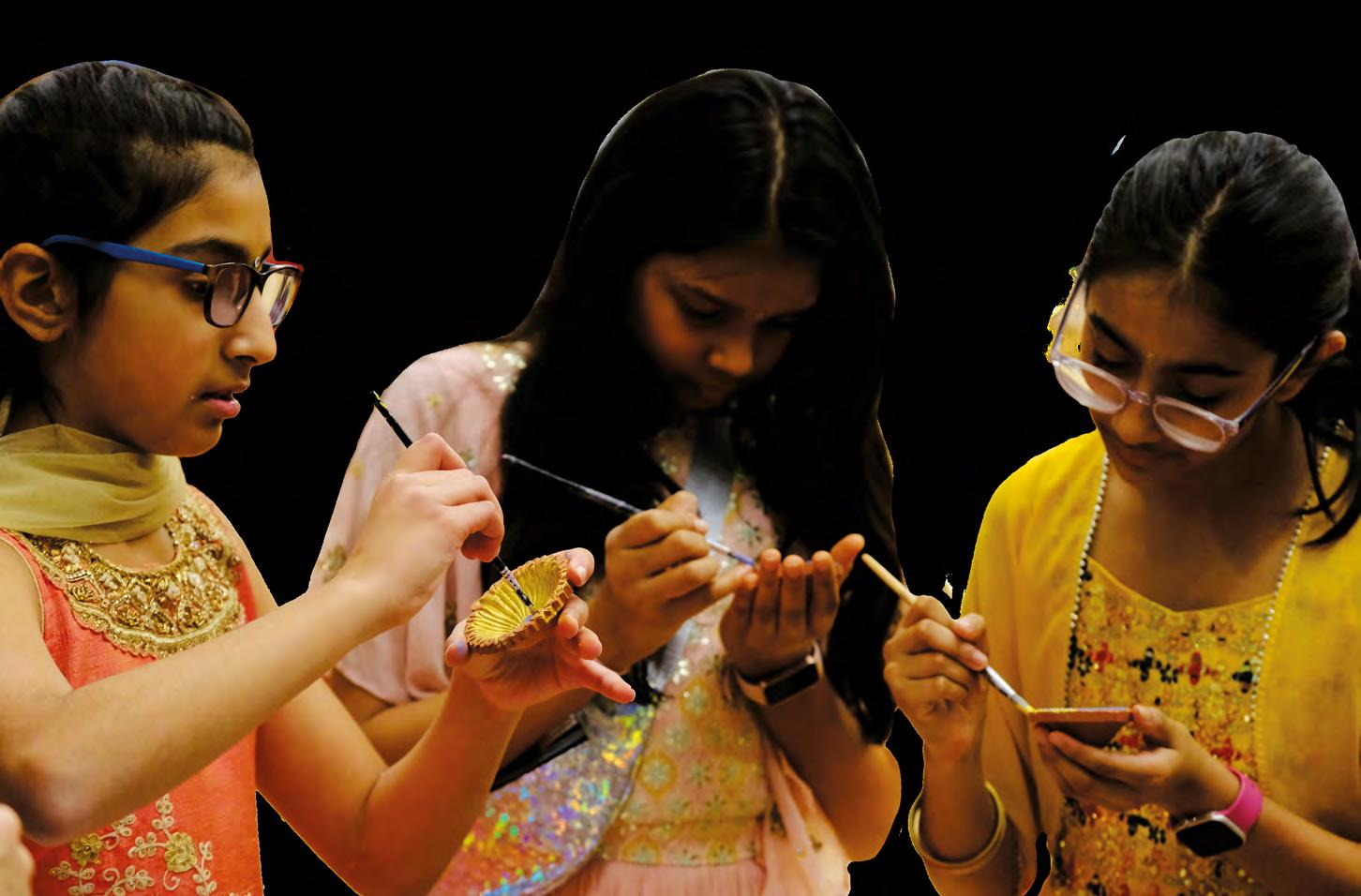
Under the leadership of Tammy, Sania, and Tiana, Philosophy Society has been as active and intellectually stimulating as ever. One of the standout moments was a visit from Richard Swinburne, Professor Emeritus at Oxford University, who presented his arguments for the existence of God. The students engaged with his ideas thoughtfully, offering strong objections and challenging questions. He remarked on the impressive quality of the discussion and the insight shown by the sixth formers.
In the Spring Term, Philosophy Week brought together a series of collaborations and events that captured the spirit of philosophical inquiry across the school. Highlights included a student-led assembly, where members of the society dressed up as their favourite philosophers, bringing key ideas to life with creativity and humour. There was also a performance of Sartre’s Huis Clos, a play that offered a powerful look at existentialist thought and included the iconic line, “Hell is other people.”
Weekly Philosophy Society meetings have continued
to be a space for open and lively debate. Students have led sessions on topics such
as the implications of neuroscience for free will, the morality of prisons, and the possibility of objective moral truths. These discussions often spark strong opinions and deep thinking, making the society a real hub for those interested in exploring complex questions.
The Young Philosophers group has also flourished, with a consistent group of students from Years 7 to 9 attending weekly Wednesday lunchtime sessions. Many come with their own questions or even theories to share, contributing to an atmosphere of curiosity and peer learning. The sixth formers leading the sessions have built a strong connection with the younger students. Topics explored this year have included extended consciousness and whether a smartphone can be considered part of the self, the philosophical roots of fairy tales, and ideas about fashion and identity.
In February, the school hosted its 12th annual Philosophy Conference, organised by Year 12 members of the Philosophy Society who invited Sixth form students from several other schools. This year, four leading women philosophers visited Canons to speak to students; figures whose work appears on the A level syllabus, now brought into real-life conversation. The interaction between visiting students and speakers was thoughtful and engaged. There were opportunities for respectful disagreement, critical questioning, and genuine intellectual exchange. Some of our students even had the chance to join the philosophers for lunch, while others found themselves in deep discussion with students from other schools on topics ranging from free will and consciousness to the origins of the universe.

Muslim Society was led this year by Alayna, Zahra, Aisha, and Sakeena. They played an active role in the school community by organising assemblies and events that helped raise awareness and understanding of Islamic beliefs and values. The first religious assembly in October focused on Diversity in Islam, looking at the wide range of cultures within the Islamic world. The talk included a quiz that encouraged the audience to think more deeply about what they had learned.
Later in the term, the society took part in the Harvest Festival with other school societies. Their presentation reflected on the Cycle of Life, the challenges people face, the importance of forgiveness and reward, and the role of charity at this time of year.
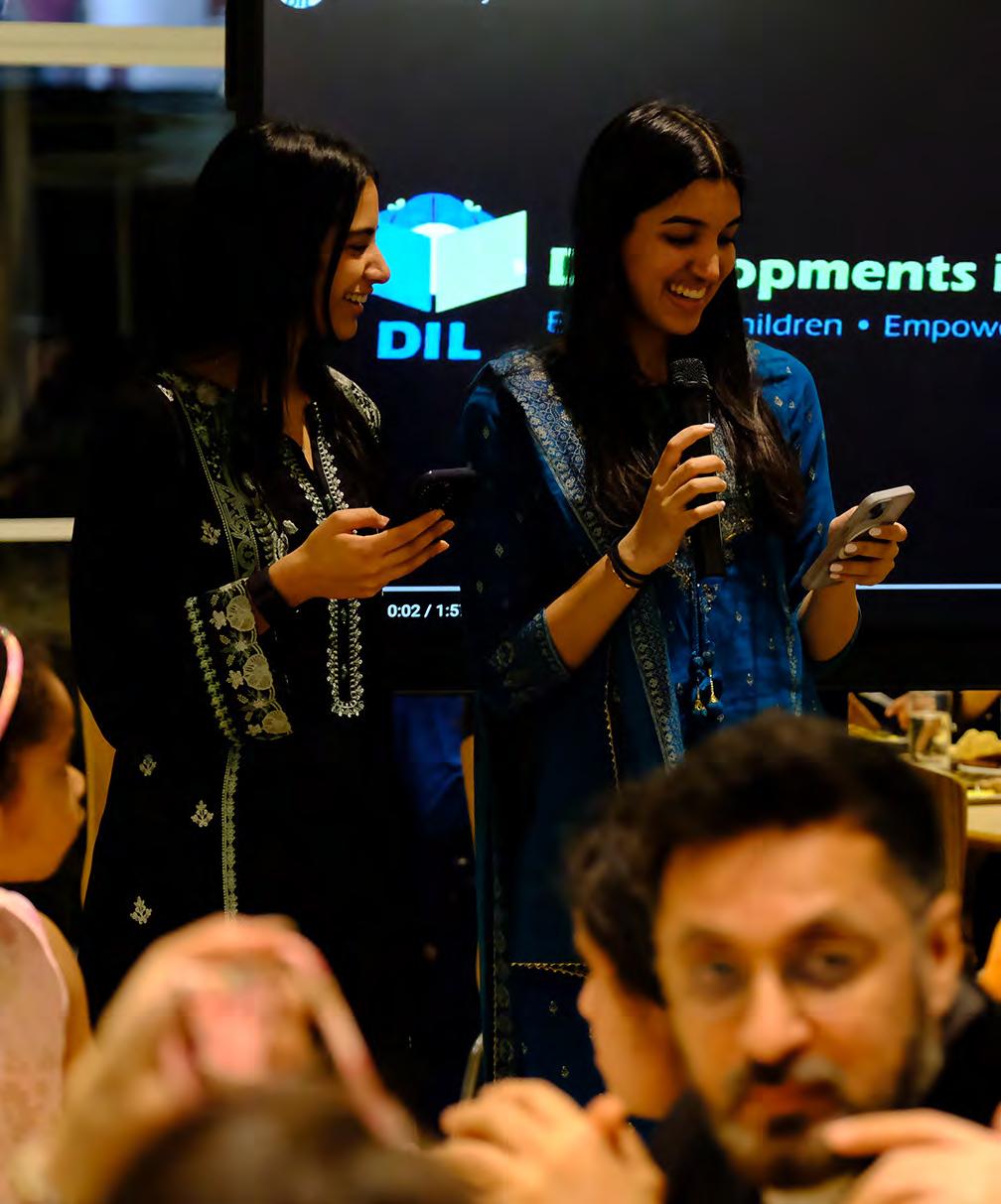
In the second half of the Autumn Term, the society led an assembly on Kindness in Islam, showing how small, everyday actions can leave a meaningful impact.
During the Spring Term, the society presented on the significance of Ramadan. The assembly explained why this month is important to Muslims, with a focus on fasting, charity, and giving back to the community.
One of the most memorable moments of the year was the school’s first Iftar, held during Ramadan. Members of the wider community came together in the evening to pray and break their fast. The event was well attended and marked an important and inclusive step for the school.
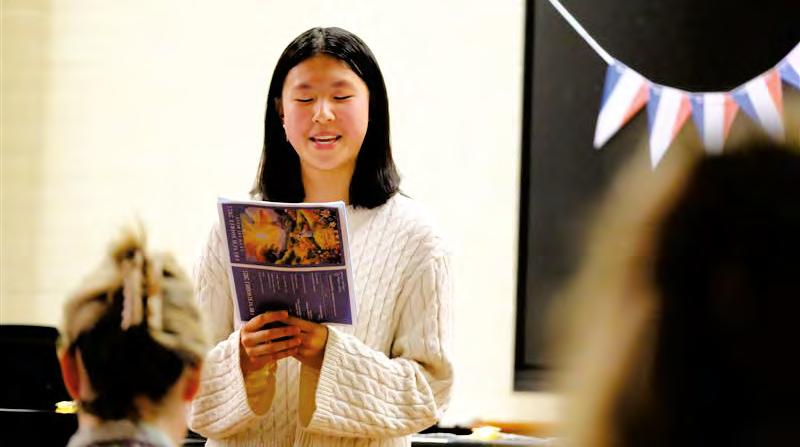
Polyglot Society brought language learning to life in creative and enjoyable ways. They began the year with a stall at the Societies Fair, where students gathered to play interactive language games and test their knowledge of greetings and idioms from around the world. It was a great way to celebrate the variety of languages spoken and studied across the school.
The society’s activities reached a high point during MFL Week, which focused on music and words. Their assembly was both entertaining and uplifting, leaving a lasting impression. The committee introduced the Year 9 finalists in the multilingual song competition with charm and enthusiasm. It was a delight to hear about the teachers’ own musical tastes, from K-pop and French rap to Afrikaans rock, showing how music connects us to languages in surprising ways. And it was no surprise to learn that Dr Gannarelli is a fan of Mozart’s Don Giovanni.
Another memorable event was the Senior Societies talk during MFL Week, where Anusha hosted a fascinating conversation with Desta Haile, the British-Eritrean singer, cultural
producer and language advocate. Desta spoke eloquently about how song and music open doors to language and culture, explaining how rhythm, melody and lyrics help us form emotional connections and remember words long after lessons end. Anusha’s thoughtful questions brought out vivid stories and practical insights, making it a discussion that resonated with everyone, whether they are experienced linguists or just beginning their journey.
When the boiler house fire forced a temporary return to home learning, the Polyglot Society stepped up with an interview featuring David Buchanan, the subtitler behind well-known films and series such as the French police drama Spiral (Engrenages). It was a welcome bit of entertainment during a tricky time.
Thanks to the enthusiasm of Polyglot Society, the school has enjoyed the magic of languages through song, poetry and translation, and gained a greater appreciation for the voices that bring those languages to life every day.
The Afro-Caribbean Society actively contributes to the school’s community by creating a welcoming space where students can engage with culture and history. Through its events and discussions, the society has encouraged deeper awareness around African and Caribbean heritage.
Black History Month was a standout for the Afro-Caribbean Society, with a series of events running throughout. A student-led assembly on Reclaiming Narratives explored cultural erasure and identity. The month also included Roots on the Runway, a first-time showcase of traditional dress and music, and a joint session with the Literature and Drama departments on Black British writers.
Student-led debates across the year tackled complex topics, including whether “poor representation is better than no representation” of Black people in media. These discussions reflected careful thought and a strong grasp of contemporary issues.
The society also worked in collaboration with other departments, including Philosophy, Politics and Performing Arts, reflecting a spirit of interdisciplinary exploration. Students shaped the society’s direction, choosing themes and leading sessions themselves.
On 6 June 2025, the society led the unveiling of a London blue plaque at the school honouring Dr Beryl Gilroy, London’s first Black headteacher. Attended by her family and other guests, the event highlighted the society’s commitment to recognising important but often overlooked figures in British history.
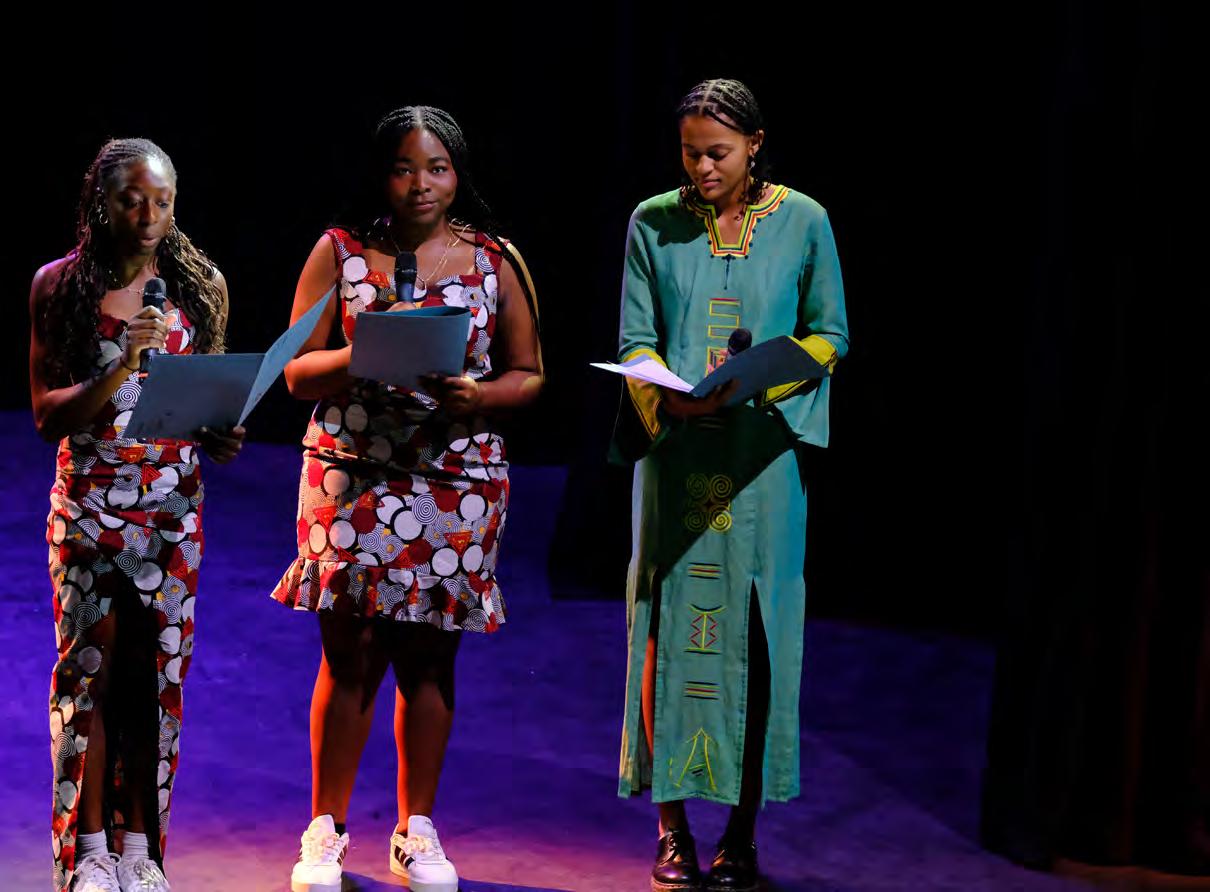
Under the expert leadership of Ilora and Aashna, History Society engaged in a huge variety of talks and presentations last year. The range of speakers was truly impressive, and all of the talks were followed by in-depth questions and
historic and present representations of political turmoil led everyone to reflect on sources as diverse as Hollywood films, alongside more conventional written sources. The links to curriculum, while also encouraging students to reflect on broader histories, led to insightful developments in their skills.

In the Autumn Term, History Week led to conversations on different perceptions of childhood throughout history. An interesting assembly focused on youth rebellion whilst breaktime lectures encouraged participation across the school.
Throughout the year, the History Society also developed its own publication, named Legacies. Contributions by students of all ages on the theme of power enabled marginalised voices to be heard and new perspectives on commonly held narratives to be brought forward.
This year was a very productive year for J-Soc. Weekly Lunch and Learn Sessions have allowed girls to reflect on their faith, but also provide a time and place for students in all year groups to connect. We have had a superb number of visitors discuss a range of topics, such the impact of AI and Jewish heritage.
A particular highlight was, of course, the annual Hanukkah play. The Y12s did a superb job at leading this and the Y7s were brilliant at acting out the Hanukkah story. It was a hugely enjoyable afternoon and was a superb way to celebrate with the School community.
In January, JSOC led an incredibly reflective and memorable Holocaust Memorial Day Assembly. It was a poignant and moving way to mark HMD. Following on from this, we were fortunate to hear from Henri Obstfeld, a Holocaust Survivor, as part of Senior Societies. It was a truly humbling and emotional experience that was made all the more poignant by the charismatic way in which Henri delivered his talk. The Summer Term saw the new Committee take over and they led a brilliant welcome event, involving lots of food and fun games!
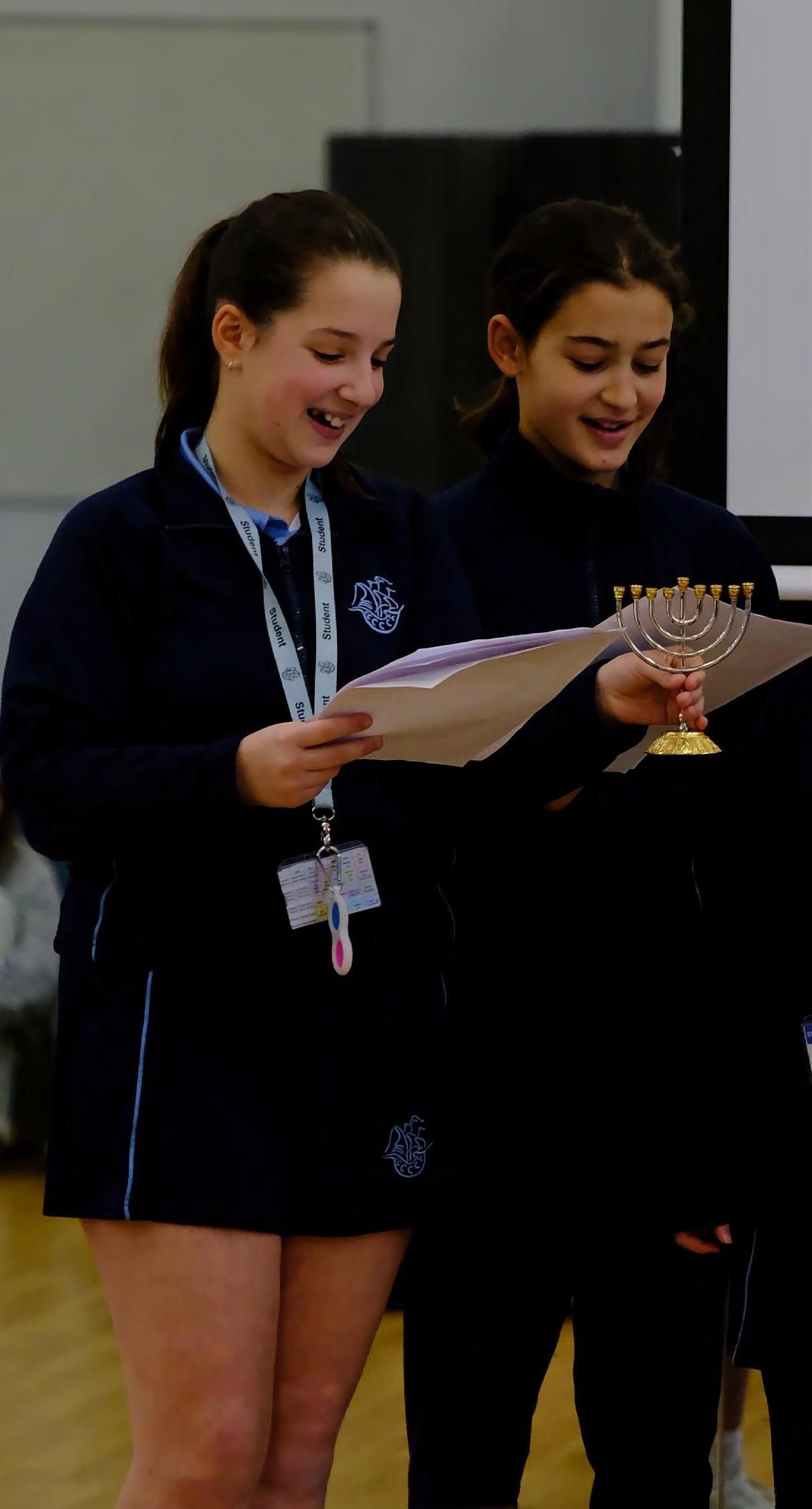

This year has been a busy and rewarding one for Pure Sciences Society, filled with events that encouraged discussion and scientific thinking. A key part of the society’s calendar was Science Café, a weekly after-school lecture held every Wednesday. Organised entirely by the society, it featured visiting scientists and researchers who spoke on a wide range of topics at the forefront of modern science. Talks included Professor Alan Smith’s lecture on astrophysics, Professor Agapi Emmanouilidou’s session on atomic and molecular physics, and Professor John Butterworth’s exploration of developments at the energy frontier.
In March, the society ran Science Week, which included a number of practical activities aimed at different age groups. Society members visited the Junior School to lead experiments that
encouraged hands-on engagement with scientific ideas. At the Senior School, the week ended with a Science Fair that gave students the chance to take part in dissections, make slime, and compete in a titration challenge.
They also published a new edition of Spectrum, its student-led magazine. This issue focused on the theme of “Chaos” and included a wide range of articles written by students, covering both philosophical ideas and technical topics. Some of the standout articles examined the complexity of the human brain and the role of chaos in quantum systems around black holes.
Through regular talks, outreach, and publication, the Pure Sciences Society has continued to create opportunities for students to explore science in greater depth and to think beyond the curriculum.
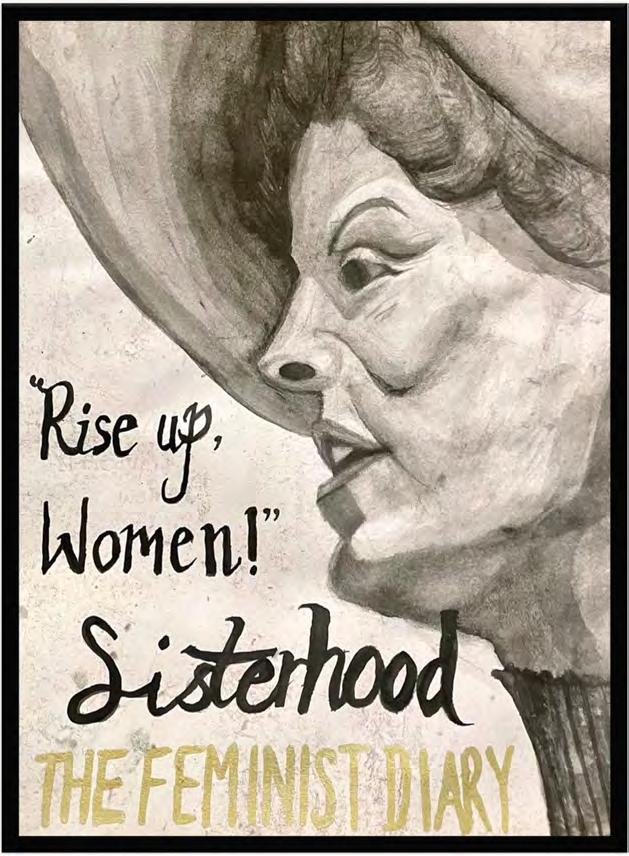
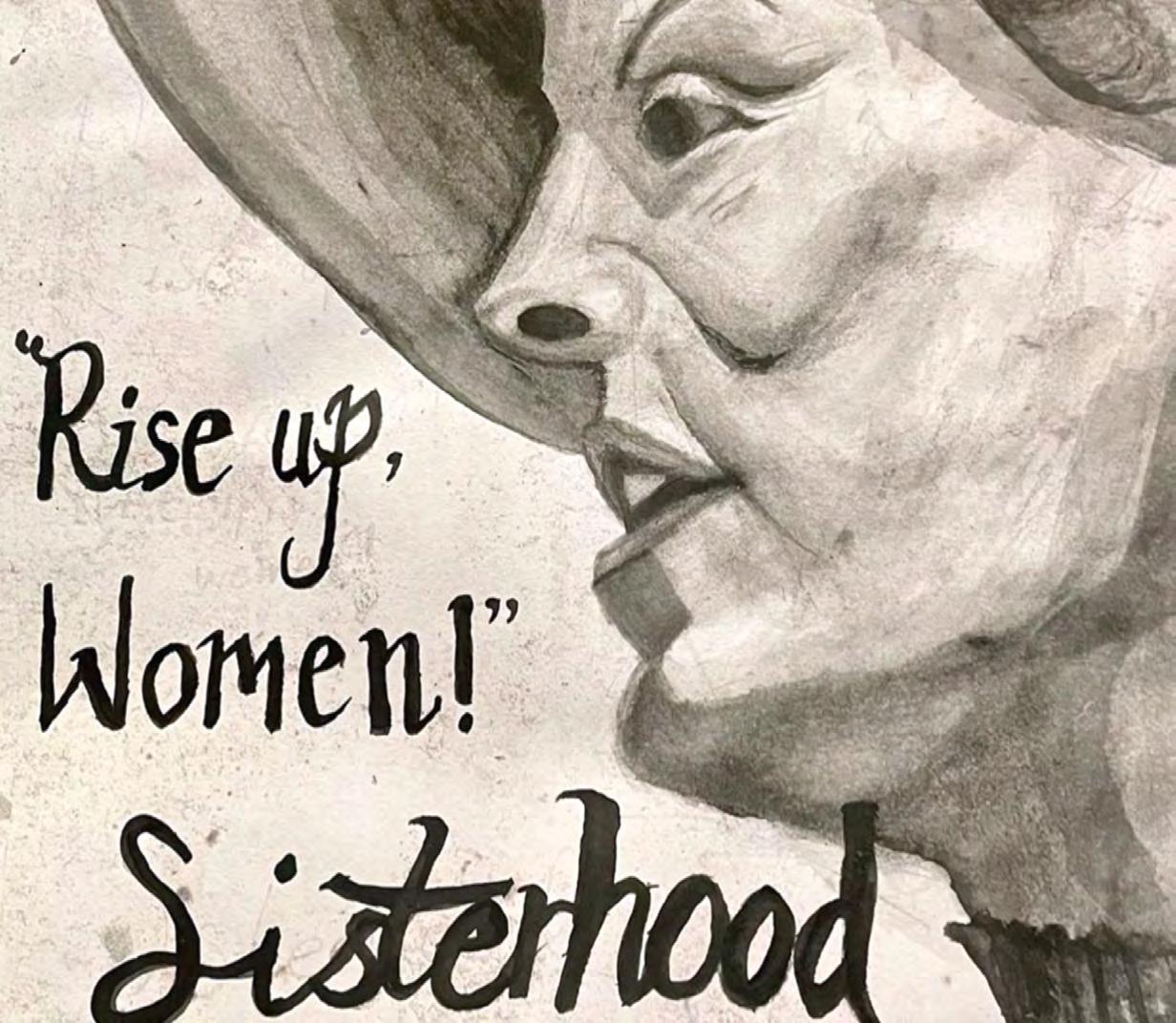
This year’s Feminist Society has seen record numbers of students from Year 10 upwards attend weekly sessions where committee members have run intellectually stimulating and enriching sessions on a wide range of topics; from dissecting “trad wife” TikTok trends, to analysing Simone de Beauvoir, from discussing the history of witch hunts, to debating how neoliberalism impacts reproductive rights, it’s safe to say that FemSoc simultaneously acts as a safe space, a think-tank,
and a classroom for the curious. The highlights of the year were a wonderful Feminist Fantasy Football team assembly, where the FemSoc committee debated who belongs on their team, and the publication of the first FemSoc magazine, The Feminist Diaries, on the theme of sisterhood. Two of our committee members also launched Little Women, a Middle School Feminist Society, which we cannot wait to see gather momentum next year.
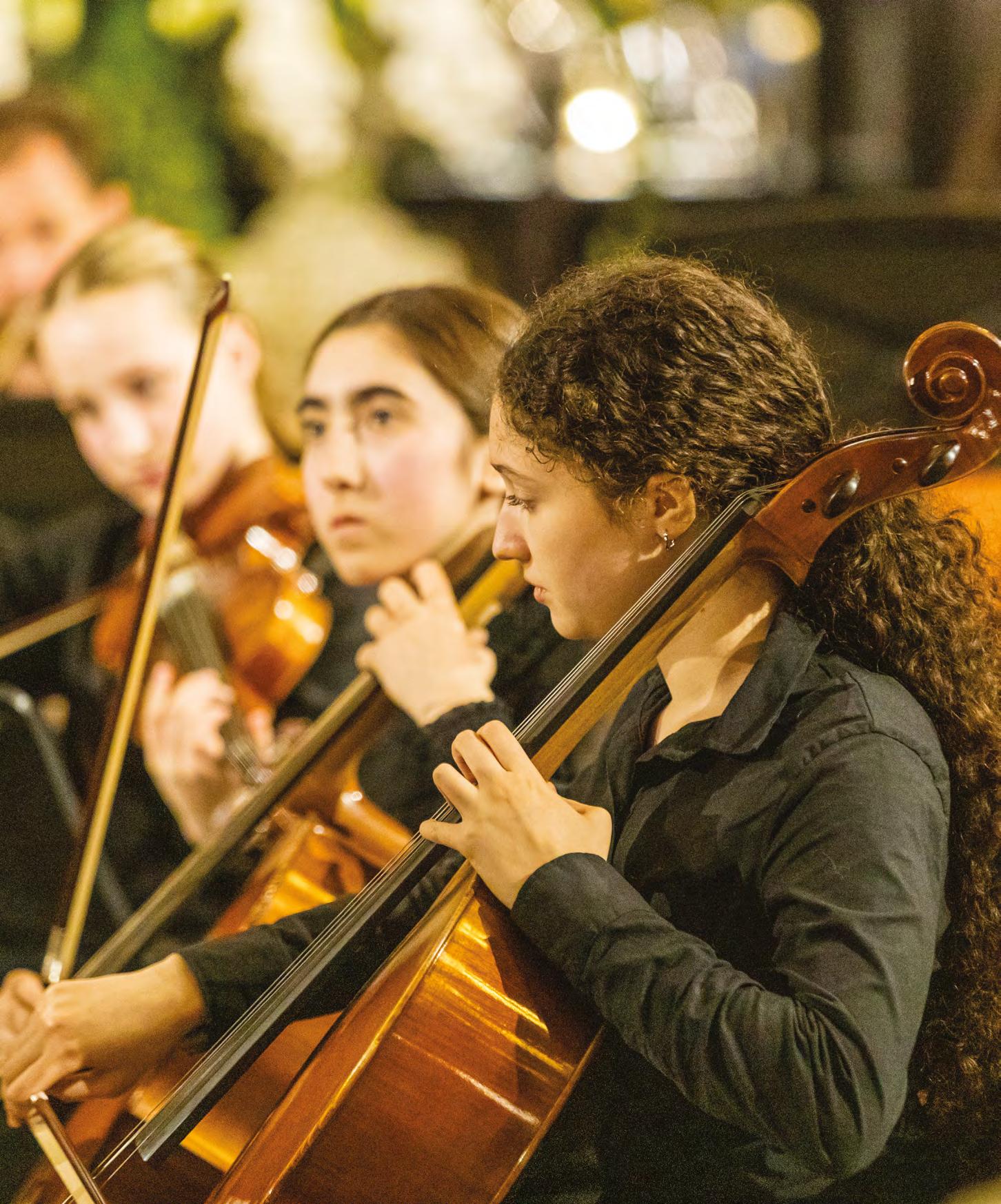

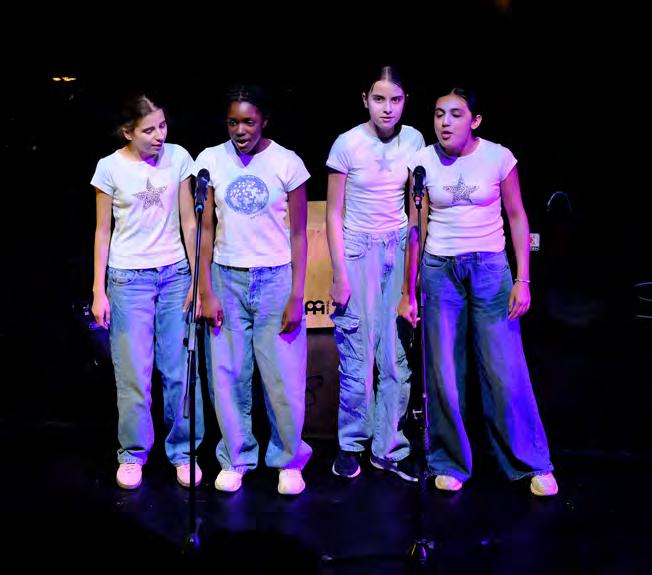
We have experienced an extraordinary year of rich music-making, exemplifying perfectly the ideas of joyful scholarship and creativity. Music spans any notional divide between academic achievement and artistic diversion, the synthesis of both aspects being key to outstanding, high-level musicianship.
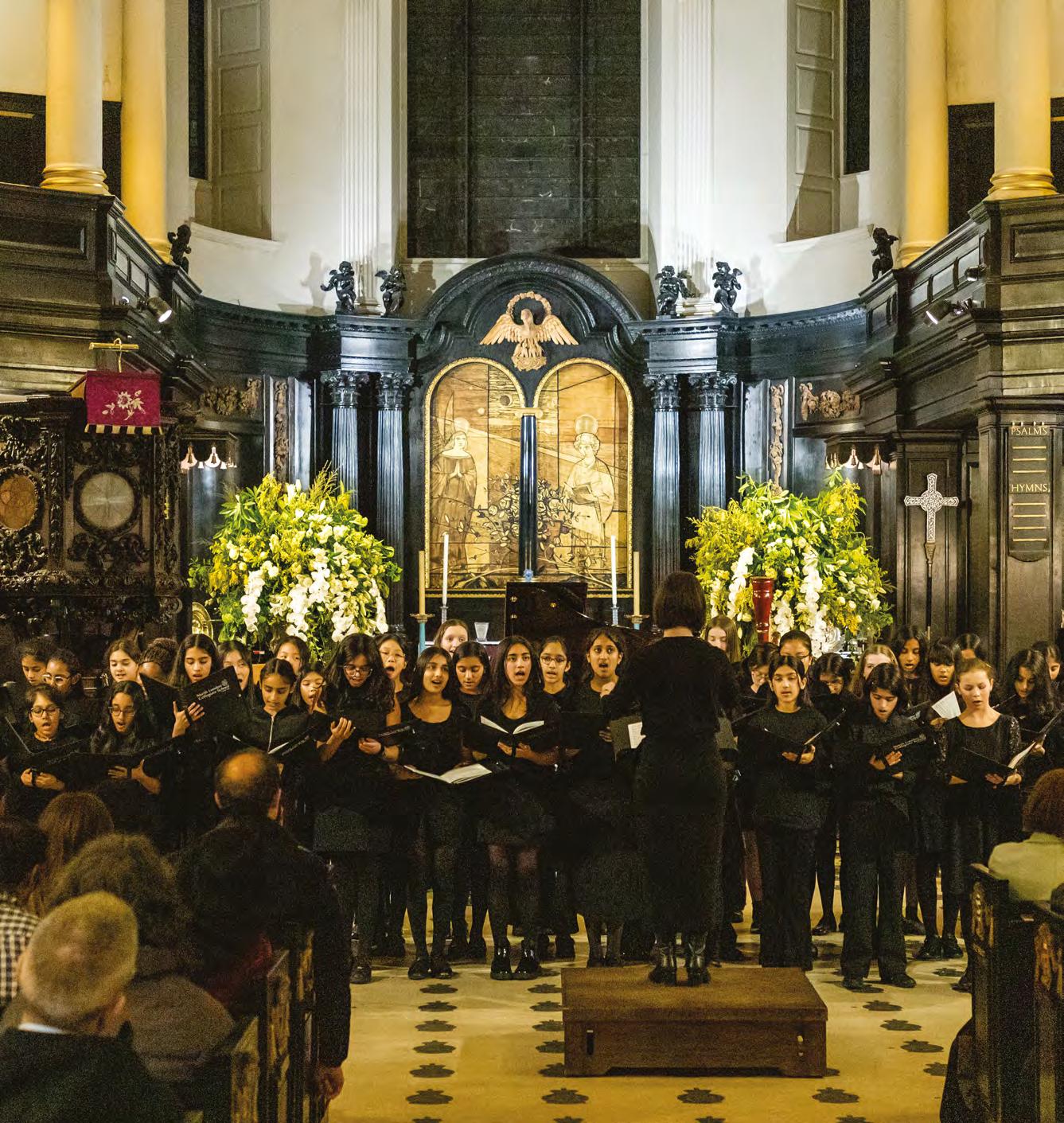
In the Senior School, our Old House Recital Series has enabled our advanced musicians to present solos to audiences, demonstrating an insatiable determination to advance technical strength and enrich their approach to the interpretation of music, with the aim of producing ever more beautiful performances.
We are lucky to have the lovely Drummond Room set aside for these recitals, originally being the seat of the first Duke of Chandos, during which, for a time, George Frideric Handel was installed as the Canons Composer.
In all, the Senior School presents over 40 concert and musical performance events per year. The Autumn, Spring and Summer Terms each had their own end of term concerts enabling all of the ensembles to perform, each concert involving nearly 200 students. A major highlight of each year is our Gala Concert in London. This past year it took place at St Clement Danes Church on the Strand, featuring Vivaldi’s Gloria and Mozart’s Flute and Harp Concerto. We increased participation in the Summer Festival
this year, with our Pop-Up music performances featuring at break and lunchtimes in the Old House and in the atrium of the new Ideas Hub.
Chamber Music is a major strength of our programme with two of our groups taking the trophies in the South East Schools Chamber Music Competition, taking place in St George’s Church, Hanover Square. The programme enables music scholars and advanced musicians the opportunity to further their outstanding musicianship with weekly coached sessions. Additionally this year, we were very pleased to welcome Margaret Fingerhut, acclaimed concert pianist and ONL, to perform a recital and work with some of our advanced students in a Masterclass.
Director of Music, Scott McCall said:
This is a mere snapshot of the work of the Music School at NLCS and I invite you to come and see us in our concerts, to see firsthand the wealth and richness of our output, all of which is designed to allow our brilliant students to embrace their musical aspirations.
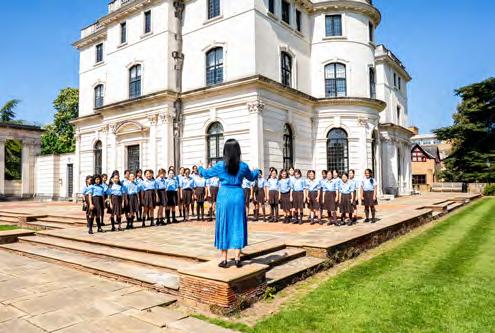
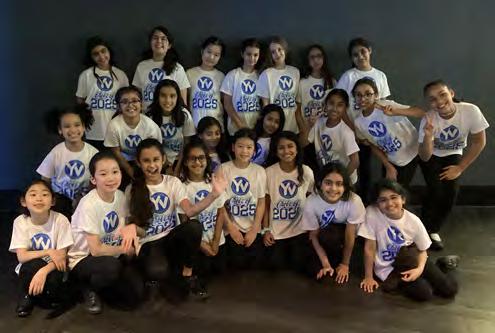
In the Junior School, musical life continued to flourish with an extraordinary breadth of opportunities that invited every pupil to find joy and confidence in performance.
Our Canons Choir had another outstanding year with a third consecutive win at the Barnardo’s National Choral Competition, an exceptional achievement reflecting the dedication of the pupils and staff alike. They also had the unforgettable experience of performing at the Royal Albert Hall as part of Barnardo’s Young Supporters Concert, a prestigious national platform where their spirited performance was warmly received by an audience of thousands.
Another highlight of the year was students from Years 5 and 6 participating in the Young Voices concert at the O2 Arena. Singing alongside thousands of children from across the country, they were part of the largest children’s choir in the world, enjoying a professionally staged concert experience with live musicians and guest performers.
Each term brought with it concerts that showcased our pupils’ hard work. From the Autumn and Spring Concerts through to the Summer Concert, every event celebrated the musical journey of pupils across the school, including those taking their first steps as instrumentalists. Our Junior Teatime Concerts
gave younger girls the opportunity to perform in an encouraging and supportive setting, helping to nurture confidence.
Music also played a key role in the Junior School’s contribution to our 175th anniversary celebrations. Girls from Reception to Year 6 were involved in a unique project, Our Story, which was a film performance combining music, drama, and storytelling. They performed music that brought to life the school’s history, working closely with staff across departments as well as with parents who actively contributed to the project.
The Summer Term saw music spill beyond the concert hall, with informal performances taking place around the school and a celebratory atmosphere running throughout. The highlight for many was the Lower School Summer Concert, which brought the magic of Disney to life. Featuring an incredible 12 ensembles, the concert included performances from four choirs to orchestra and percussion ensembles, and a wide range of different instrumentalists, solos and duets.
Director of Junior School Music, Mrs Chao Cox said:
This has been a year full of unforgettable experiences and musical growth. Our pupils continue to inspire and we look forward to another year of making music together.

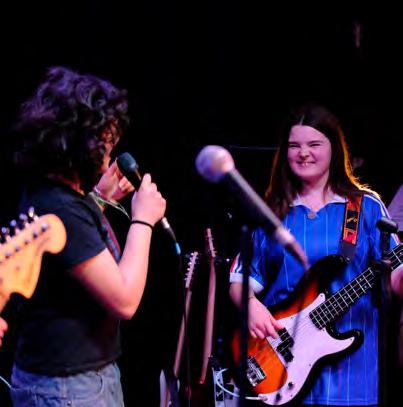
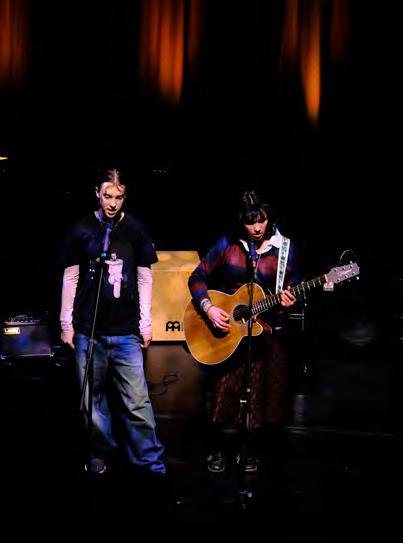
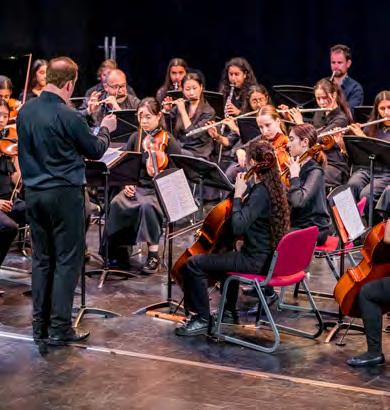
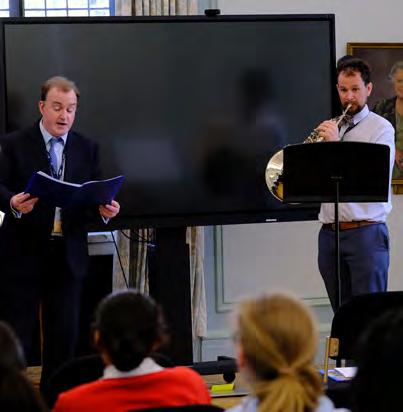
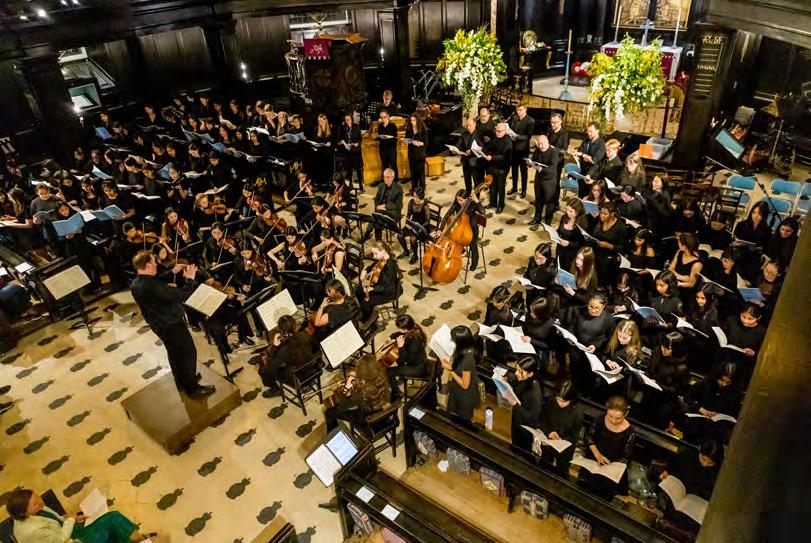
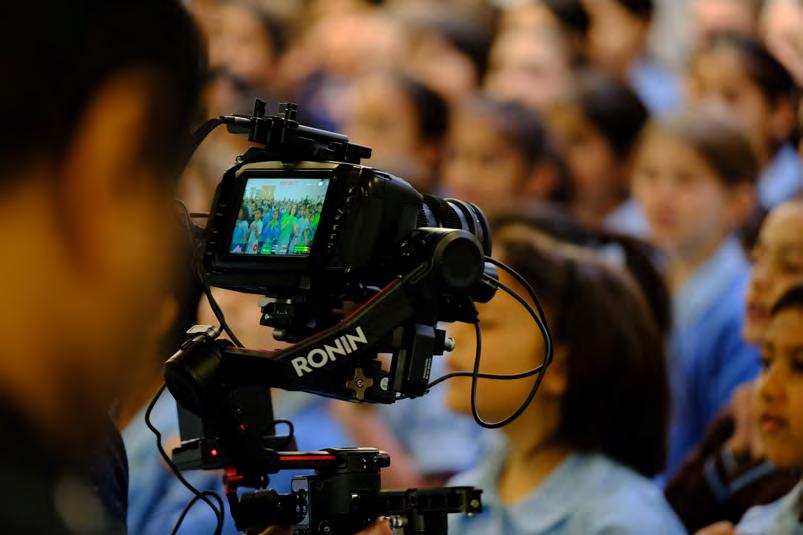
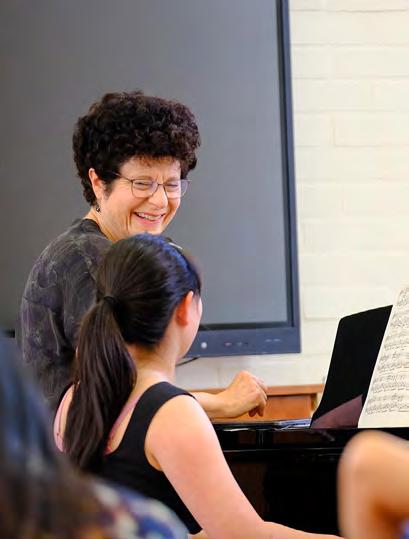
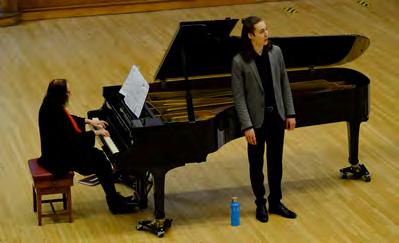
1. Radio Silence Performance
2. Spring Concert 2025
3. Staff Concert
4. NLCS Sessions 2024
5. Gala Concert 2025
6. Junior School 175 Filming
7. Margret Fingerhut
8. MFL Symposium
9. Jazz Evening
10. Morwenna Del Mar X Will Galton
11. Ensembles Concert Dec 24
12. Canons Choir at Royal Albert Hall
13. NLCS Music Festival Singapore 2025
14. Lunchtime Concert
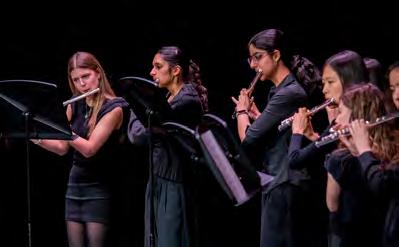
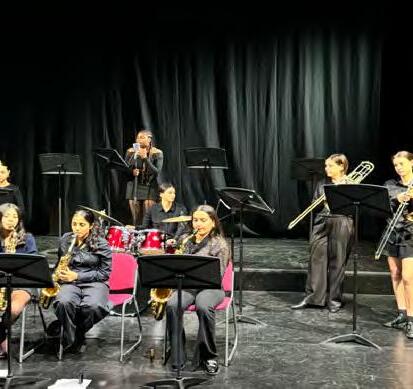
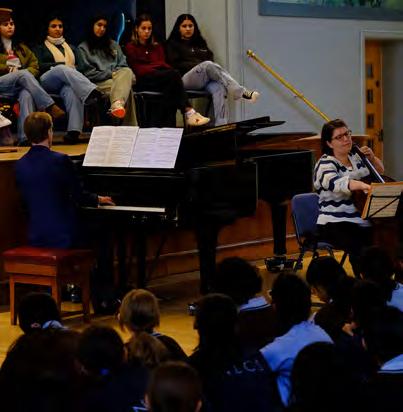
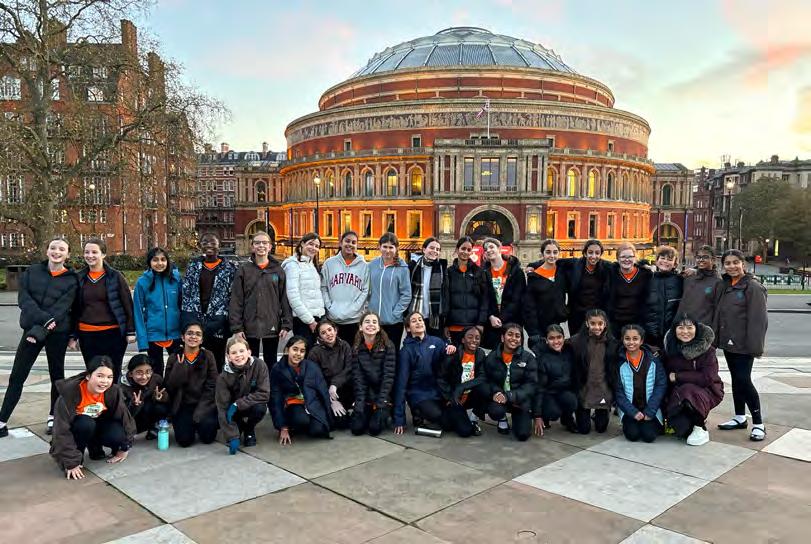
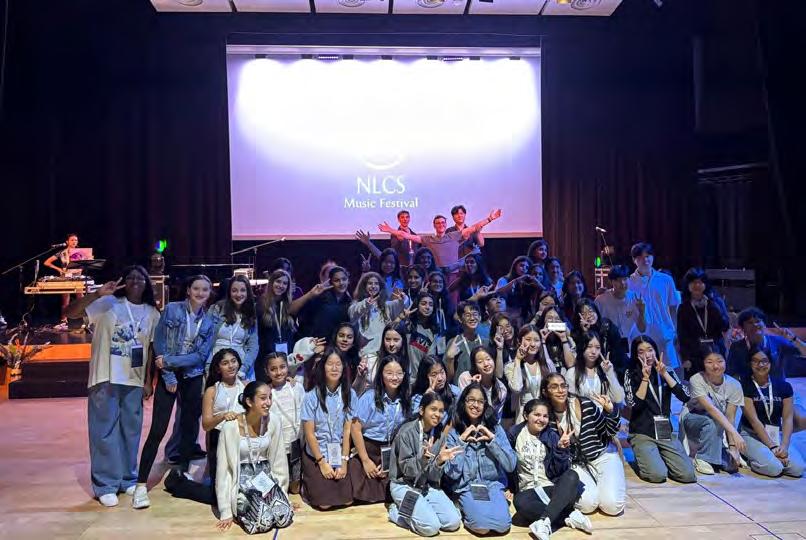
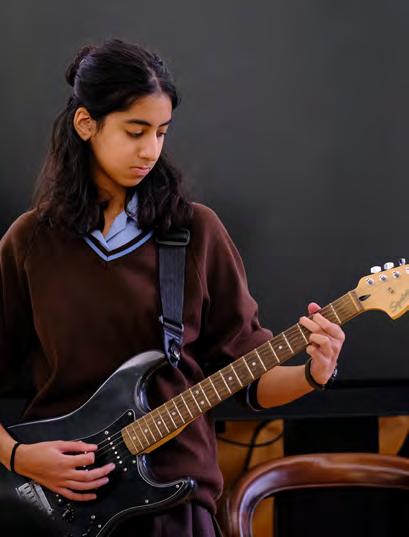
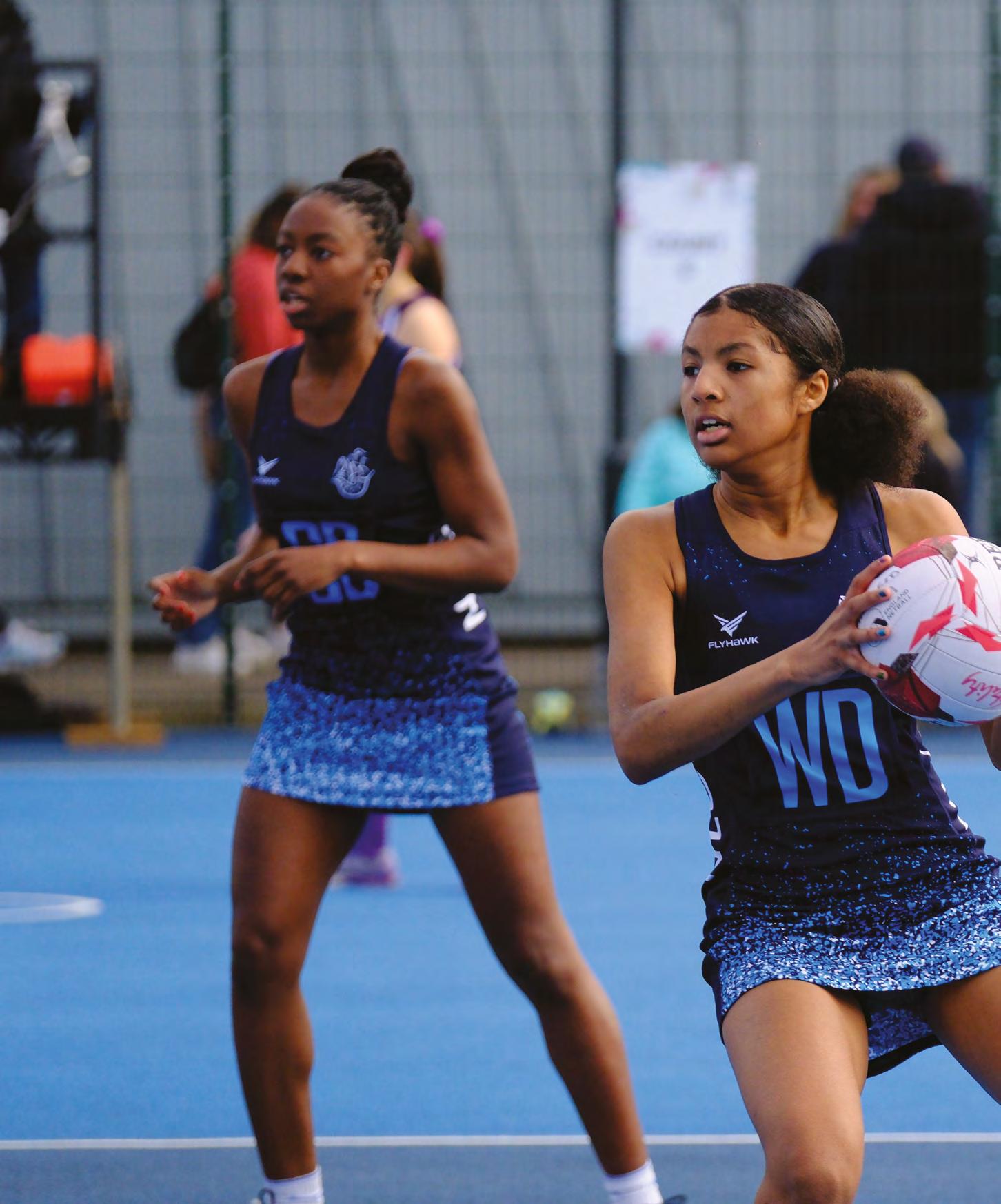
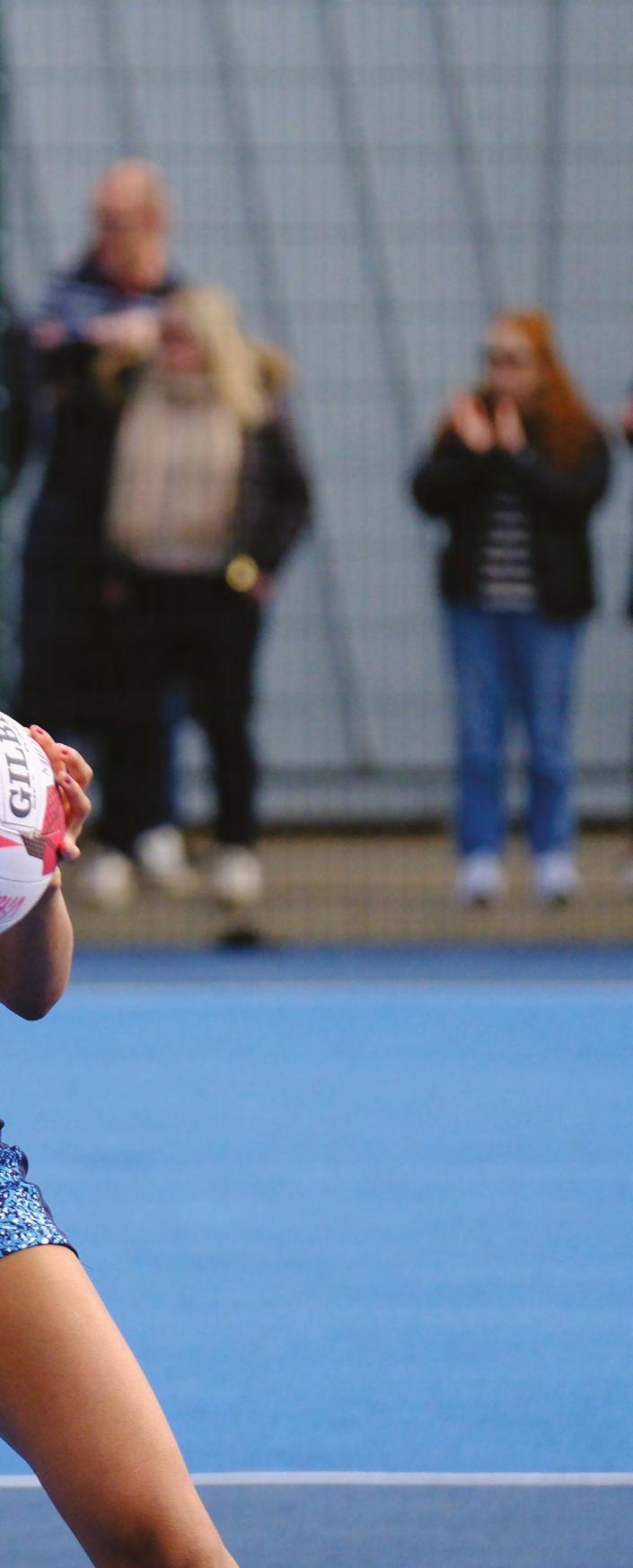
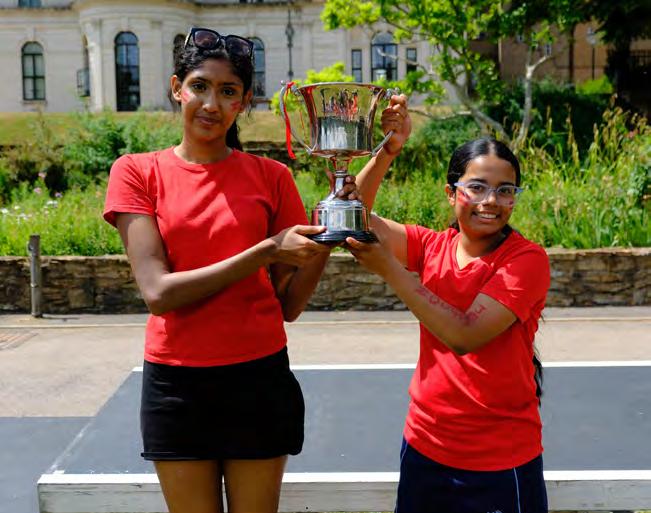
port is a big part of life at NLCS.
Whether it’s early-morning training, lunchtime clubs, or after-school matches, there’s always something happening and always someone keen to get involved. We’re proud to have so many girls who love sport in all its forms, from fierce competition to just having fun and keeping active. There’s something for everyone here, and this year has been full of great moments, new skills, and plenty of team spirit across both Junior and Senior School.
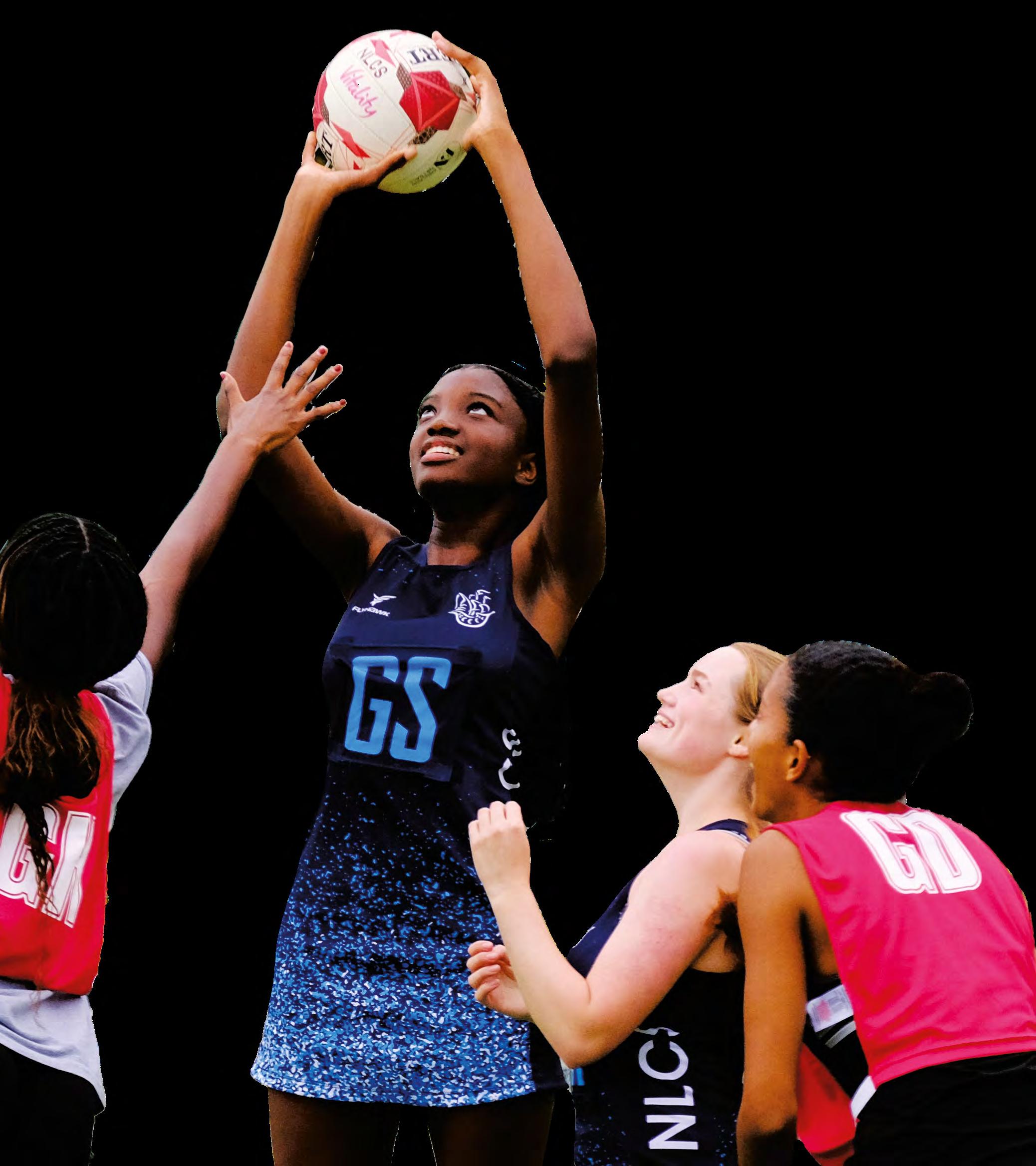
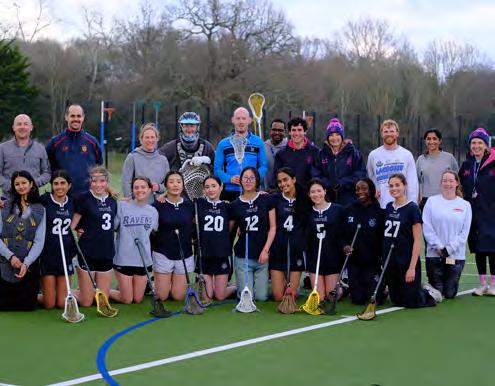
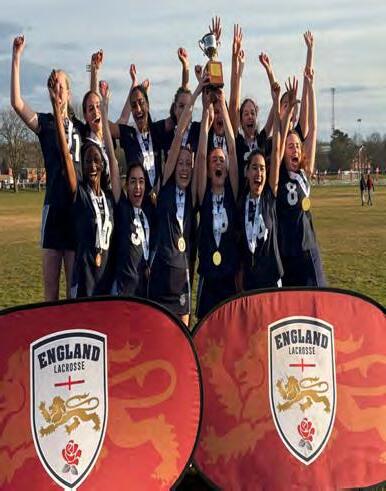
Our girls don’t take netball lightly, and this year proved just how far the sport has come across both Junior and Senior Schools. In the Junior School, the U11s stormed through their IAPS qualifier to reach the national quarter-finals, finishing in the top eight schools in the country. Earlier in the term, they went unbeaten at the NLCS Tournament, topping their group. For many girls from Years 3 to 6, it was their first time competing and they delivered.
In the Senior School, the U19s made history by winning the County Championship for the first time since 1998. The U15 and U16 squads battled their way to the National Plate Quarter-finals, and the U13s reached the County Semifinals. The U12B team made it to the SNS National Bowl Quarter-finals, while the C and D teams wrapped up the season as runners-up in the Emerging Teams Tournament. Jeslyn was selected for the London Mavericks U17 NPL squad, and Mia, Emerson and Ore also earned county spots.
This year, we also welcomed Halimat Adio of London Pulse as our new Professional Netballer and Coach in Residence. With experience at the
highest level of the game, Halimat’s presence played a key role in helping our players grow in confidence. Combined with her standout Nations Cup performance for the England Roses, where she was named Player of the Match, there was no shortage of inspiration on and off the court.
Lacrosse here has always been more than just a sport; it’s practically a season of its own. Whether it’s pre-dawn practices, muddy midweek fixtures or those full-sprint finishes, the energy never drops. This year, the 1st Team got off to a flying start by winning the Greater London Indoor Tournament, and their Division 2 win at the National Schools Championships was a huge moment. The U15As pushed through to the Division 1 semi-finals, while the U14 and U13As held their own nationally, placing in the top 16 and top 8. The U12 squads impressed at the Tri-County debut, each earning third place. With seven players selected for the South East Women’s Regional Team, it’s safe to say lacrosse is in very good hands.
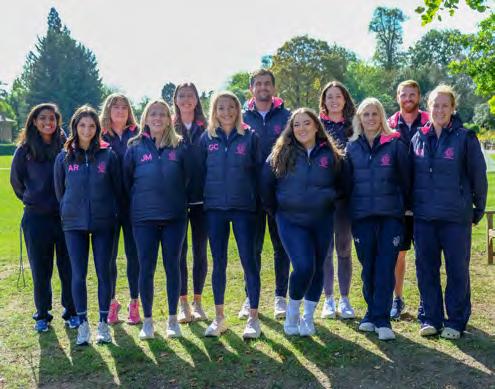
Cross country brought strong results across all year groups. In the Senior School, the Intermediate and Senior teams qualified for the ESAA Regional Final. At the Harrow Championships, the Junior and Minor teams finished first and second, demonstrating the school’s depth. Thirteen runners earned spots at the Middlesex Championships, with Jiatan going on to represent the county at the English Schools Championships. Year 7 and 8 teams placed second and third at the St Martin’s Road Relays. In the Junior School, Years 5 and 6 won the U11 St Martin’s Road Relay which encouraged greater interest in running among younger pupils.
Senior School swimmers made great strides this year, boosted by new early morning training sessions. Their hard work paid off with strong results in local and regional meets. At the Harrow Borough Championships hosted by NLCS, Years 7 to 10 all took home titles, with Year 9’s clean sweep standing out. Solid performances against schools like Habs and John Lyons showed the impact of their preparation. The team is already looking ahead to the Herts League next season.
In the Junior School, success continued with the Year 5 team winning the RMS Aquathlon and several individual podium finishes. Year 6 placed fifth and earned a top three spot. At the ESSA Primary Team Championships, the team
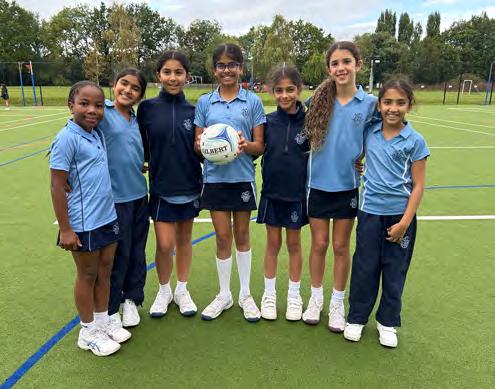
took second in the medley relay and fourth in freestyle. Several swimmers advanced to the London Finals, with two qualifying individually in butterfly at the English Schools Swimming Association Finals in Sheffield.
Football continued to grow in profile, with teams from Years 7 to 11 participating in ten fixtures throughout the year. Among the highlights were notable victories for the U15 and U16 squads against Heartland High, while U12 to U14 teams showed clear signs of progress, developing both technically and tactically as the season unfolded.
Athletics was one of the strongest areas of performance this year. The Harrow Championships brought a host of victories and 11 athletes were selected to represent Middlesex. The U14 and U16 teams both reached the Regional A Final of the Track and Field Cup and Emma and Nilou were selected to compete at the English Schools’ Track and Field Championships in Birmingham.
A new addition to the sports programme came with the launch of the Junior School Tennis Competition, which brought a structured yet accessible format to match play. Girls in Years 3 to 6 learned how to score independently and play with control.
In the Senior School, Years 7 to 10 took part in tough fixtures, representing the school at the Middlesex LTA Youth Schools Tournament and the National Girls Schools Tournament at Wycombe Abbey, holding their own against strong opposition. To end the Summer Term, the U16 team secured a place in the National Finals in Bristol following the first-ever SSM tournament.
71 matches were also played as part of the historic Pamela Flower Invitational Singles and Year Group Doubles Tournament, with all matches leading to a coveted place in the finals.
Gymnastics, cheerleading, and dance kept the energy high this year, adding a vibrant flair to the sports scene. Gymnastics saw the U15 and U13 teams qualify for the ISGA National Finals, with the U15s finishing fourth and Alia placing seventh individually. Cheerleading featured dynamic routines from 35 performers across multiple competitions. In dance, students from Year 7 to Sixth Form contributed to a lively and polished annual Dance Display, with squads in Jazz, Commercial and Lyrical preparing for The Great Big Dance Off. Workshops during PE Week, including Afrobeat, hip-hop and contemporary, offered further opportunities for creative exploration and self-expression.
The Summer Term brought a full calendar of cricket, with festivals for Years 3, 4 and 5 providing the perfect environment to develop
For our older years, NLCS teams entered county and national cup competitions for the first time. A packed fixture list saw 34 matches played, and both U13 and U15 squads advanced in the County Cup. There were standout moments across the board, including multiple half-centuries, a 119-run partnership and two hat-tricks. Indoor finals at Lord’s and Middlesex brought silver medals, while regular use of the school’s cricket nets helped players sharpen technique and approach each match with growing confidence.
Sports Day is always a highlight of the year, but this time it arrived with an exciting new twist.
The introduction of new houses named after women in space brought fresh energy and made the competition feel even more special. Not only were teams aiming to win, but they also had the chance to become the very first champions under this new system. Kalpana, Artemis, Endeavour, Jemison or Minerva? Who would come out on top?
There were many highlights at Senior School Sports Day, including Nilou smashing the 800m record by 15 seconds, Emerson setting a new personal best in the 200m, and Martha crossing first in the 300m. A first for this year was the four-minute mile challenge where participants finished in 3 minutes 56 seconds. In the end, Jemison took home the House Championship, capping off a day full of great effort.
At First School’s Rainbow Sports Day, our girls
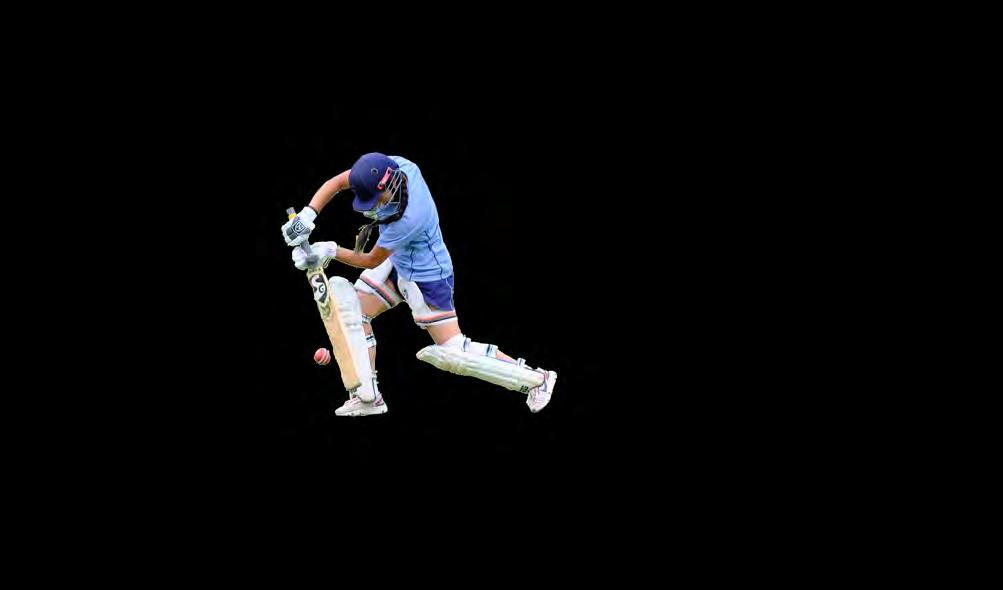

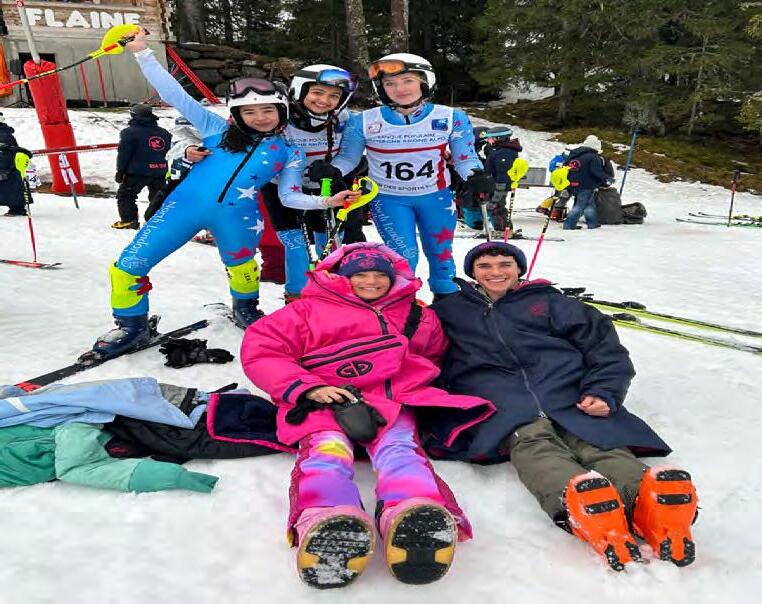
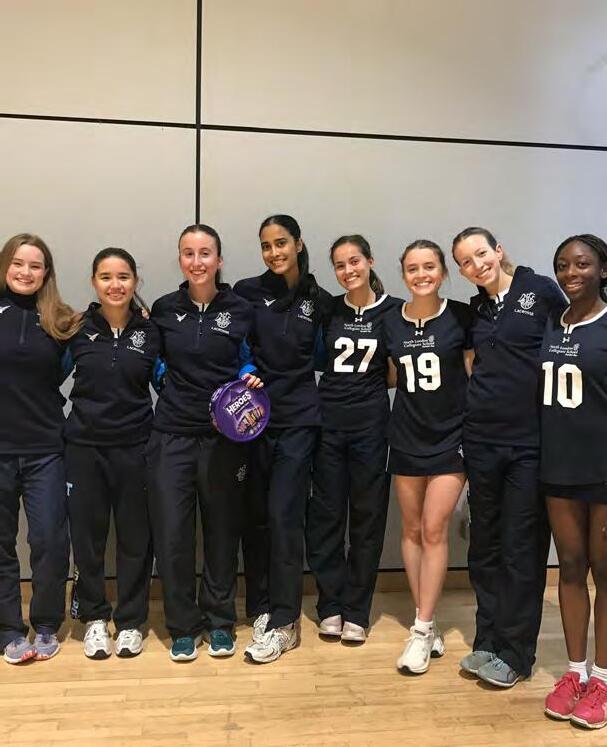

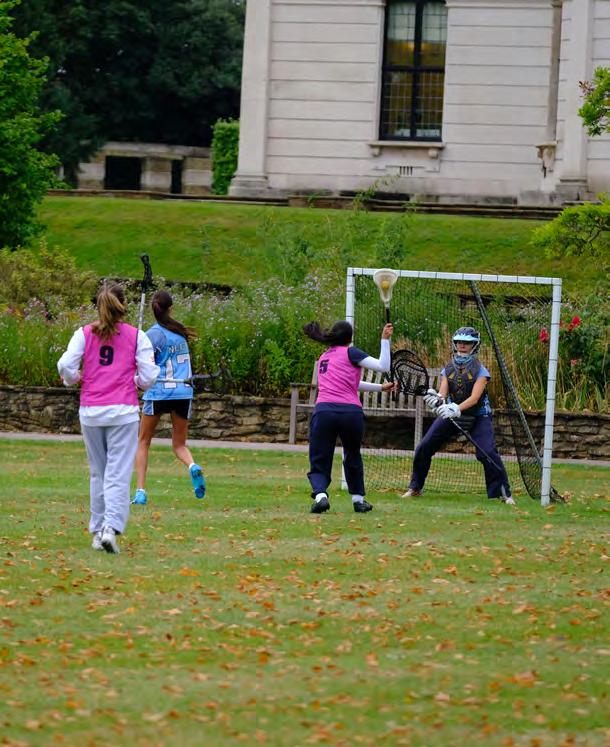
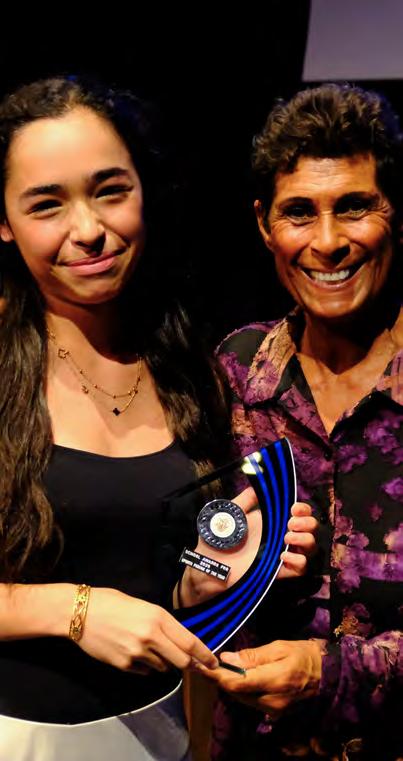
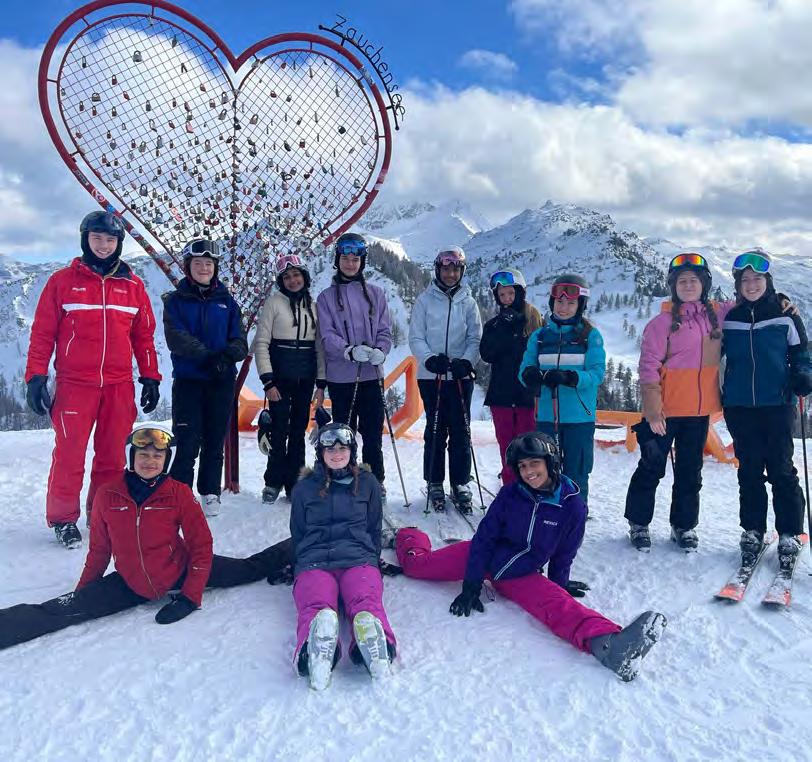
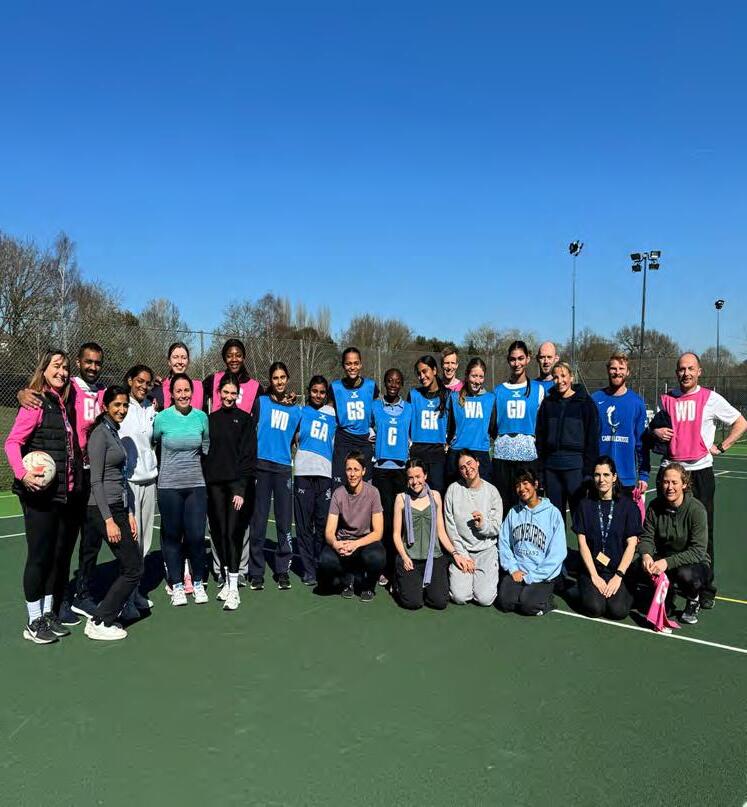
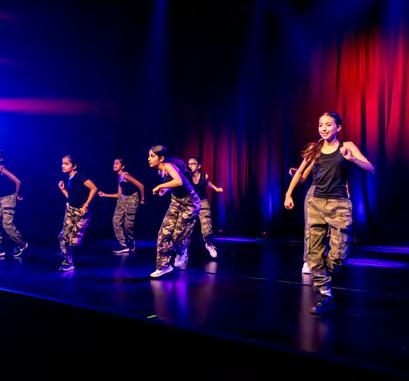
7.
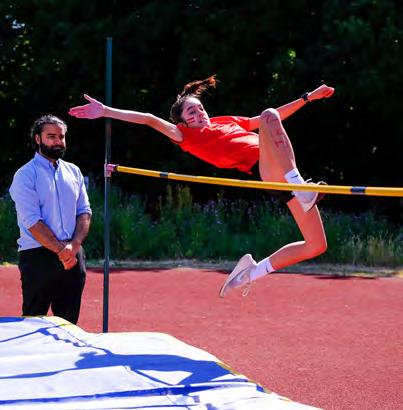
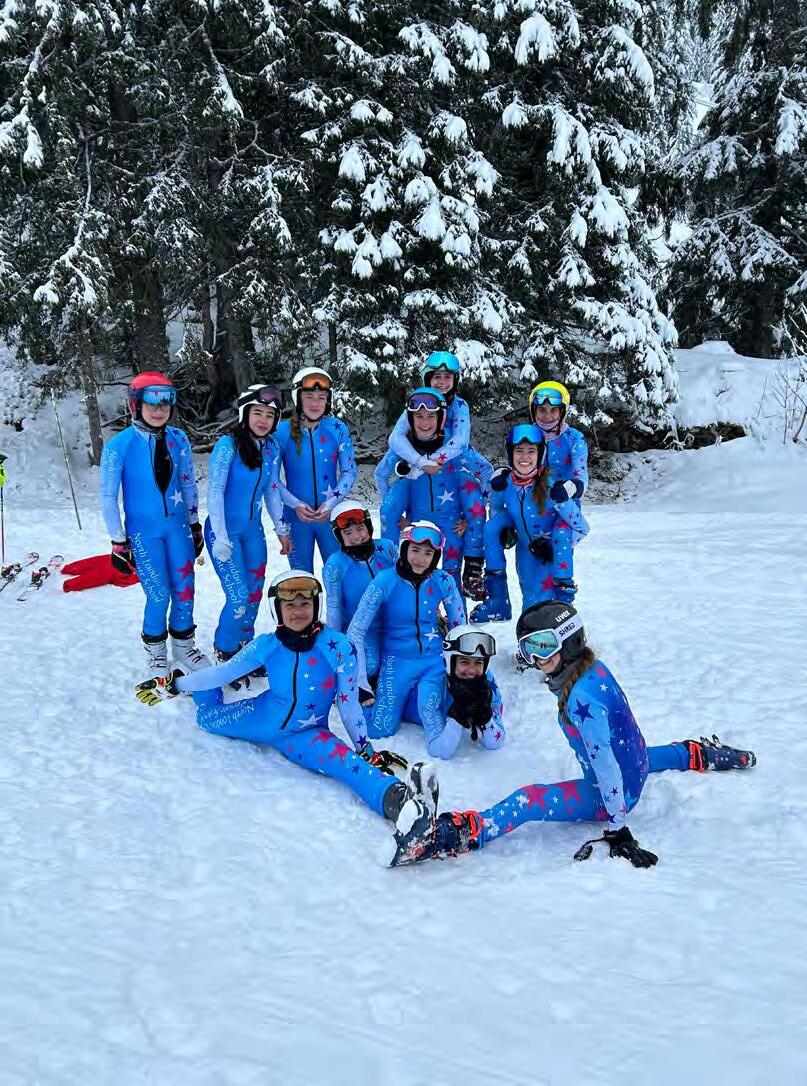
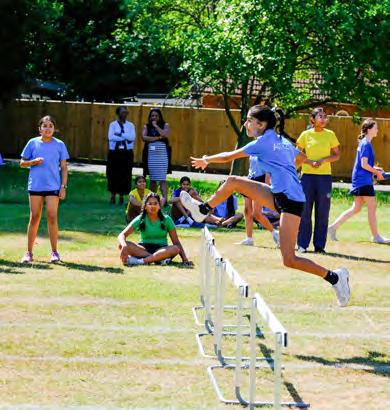
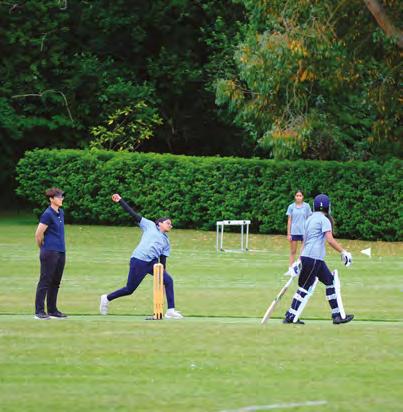
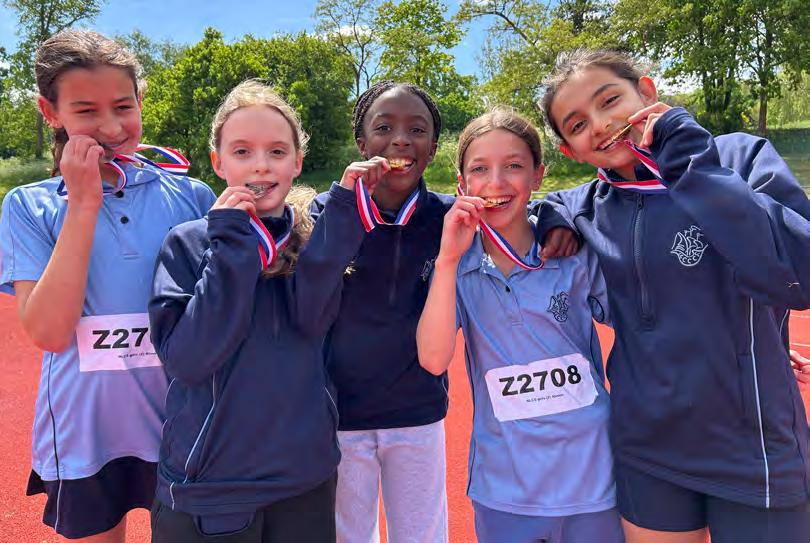
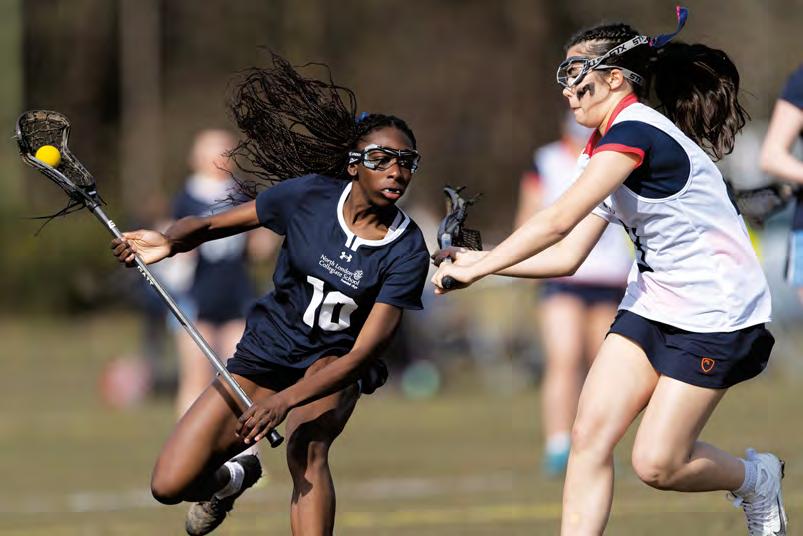
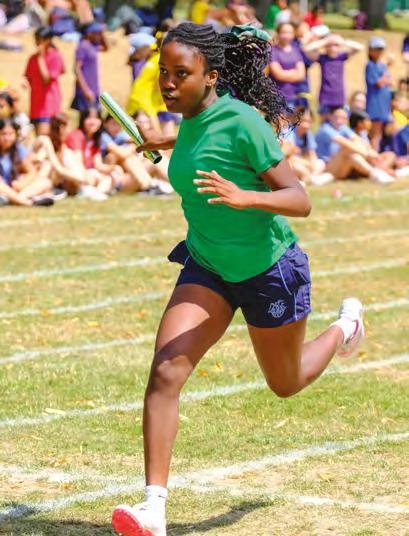
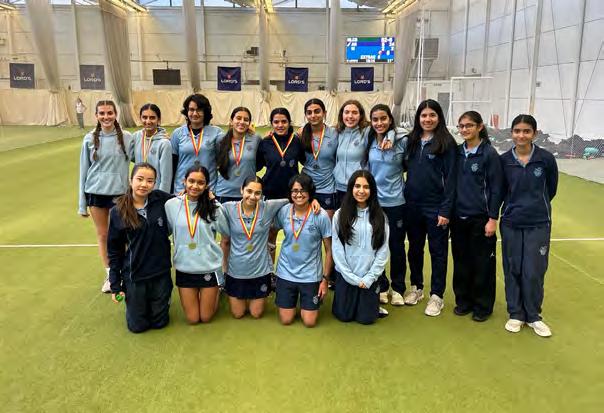
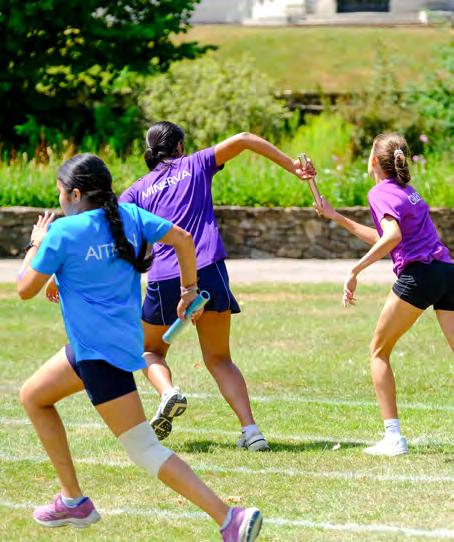
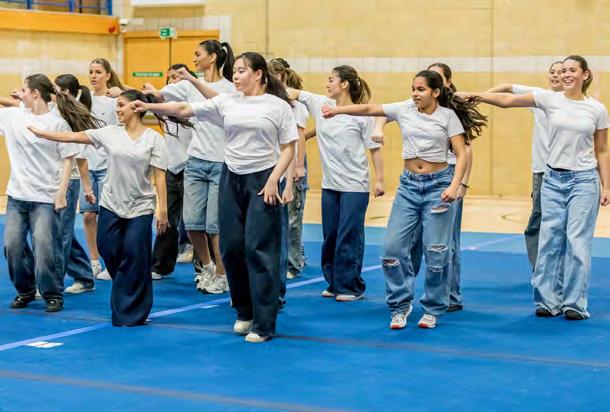
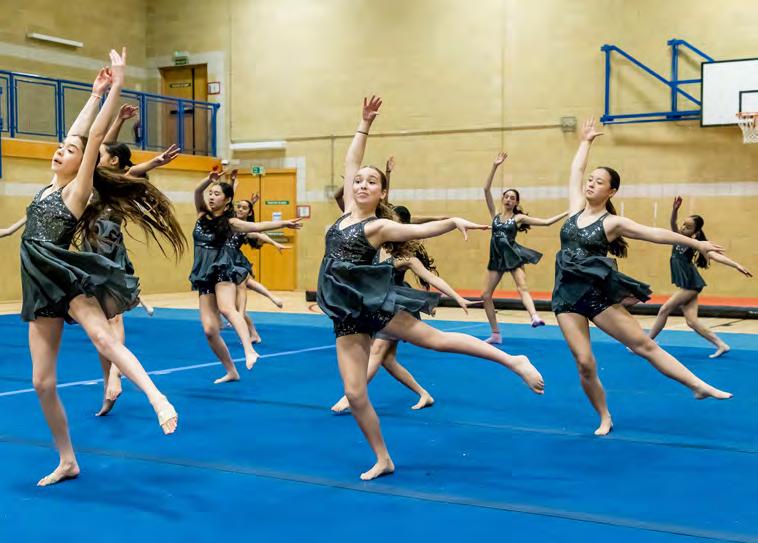
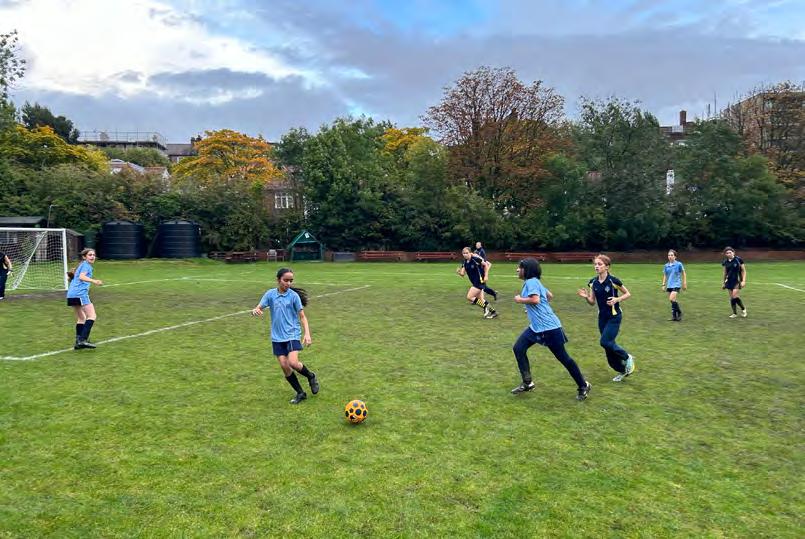
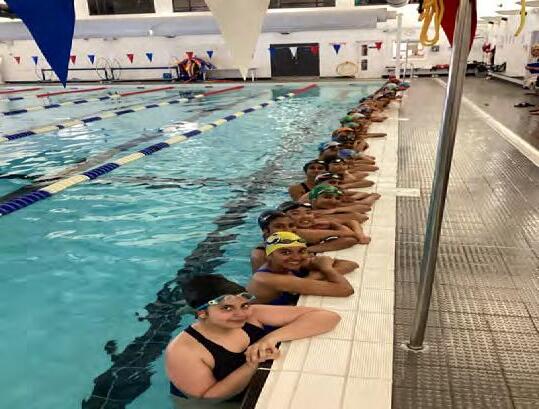
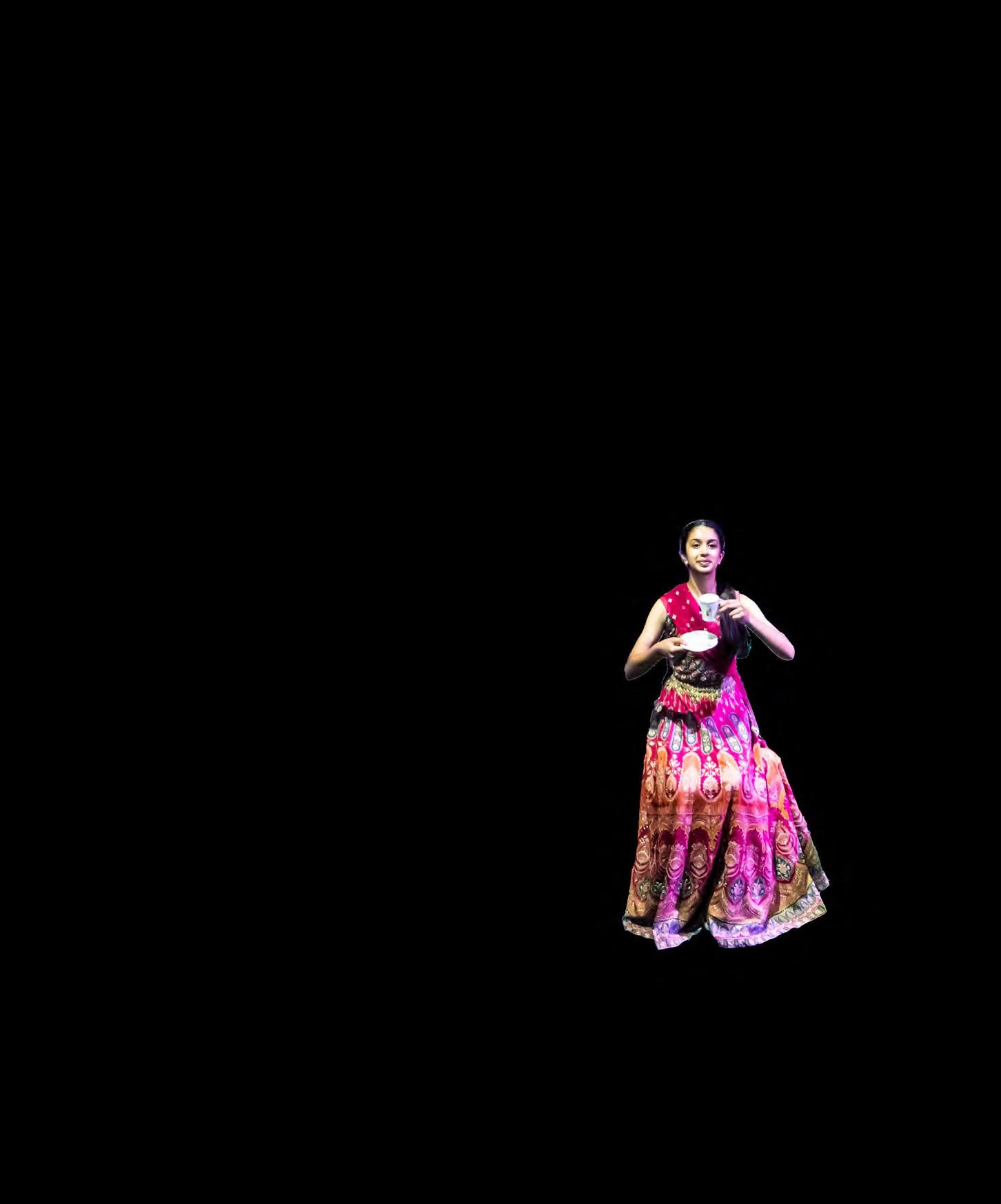

ights, cameras, and plenty of on-stage action. The 2024–25 school year was full of energy for the Drama Department, with performances taking place across all parts of the school.
The Autumn Term is always a busy one, and this year was no different. It began with Glimmers, the first Senior School performance for our Year 7 pupils, joined by Year 8. This was followed by a powerful production of Made in Dagenham, which was a real highlight of the term.
In the Junior School, Year 3 performed Hidden Magic, a play written by Mrs Rushbrook especially for the school. The story focused on finding wonder and excitement in everyday life. It was also Year 3’s first time working together on a full production, and they brought the play to life with real enthusiasm.
In November, the First School took part in The Fairytale Fiasco, another original piece by Mrs Rushbrook. This fun and lively story followed the Learning Friends as they were pulled into a fairytale book, leading to a mix of well-known characters and unexpected twists.
The Spring Term saw the Year 9 production of The Railway Children,
which gave a new take on the well-loved classic and was received warmly by its audiences.
In the Junior School, Year 4 presented their own rendition of Shakespeare’s magical comedy, A Midsummer Night’s Dream. True to the NLCS spirit, they blended the traditional with the contemporary. Framing Shakespeare’s original text, Mrs. Rushbrook wrote a story about NLCS girls in 2025 rehearsing their own version of A Midsummer Night’s Dream (a play within a play). This was their first performance in the PAC, and they thoroughly enjoyed working with the beautiful set and exciting props created by Mr. Boase.
To finish the year, Senior School students put on a creative and polished production of ‘Around the World in 80 Days’. The cast and crew delivered a joyful performance full of wonderful surprises, including cameos from students in our international schools.
This was the first time in NLCS History that students had been involved in a Drama collaboration.
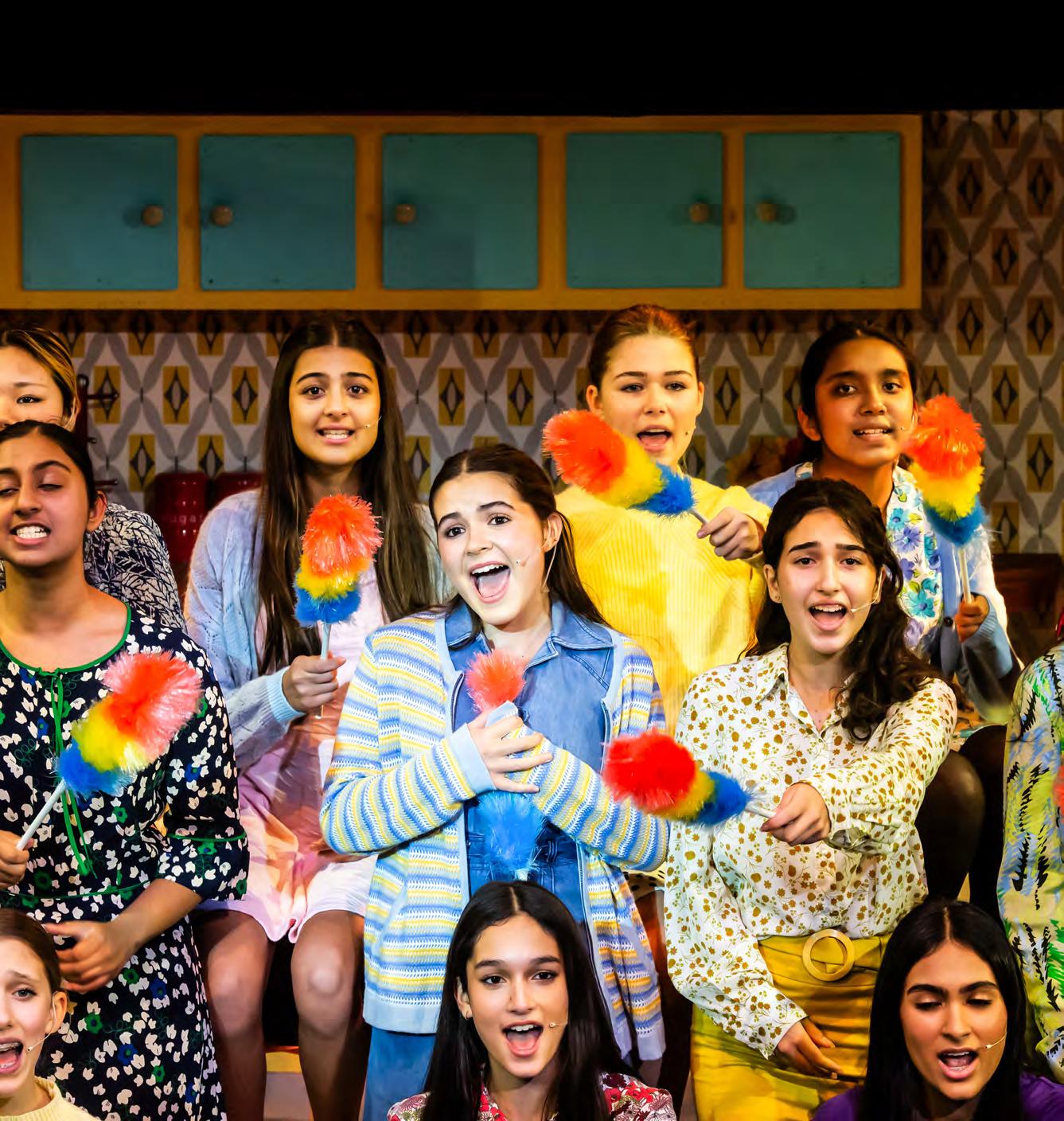
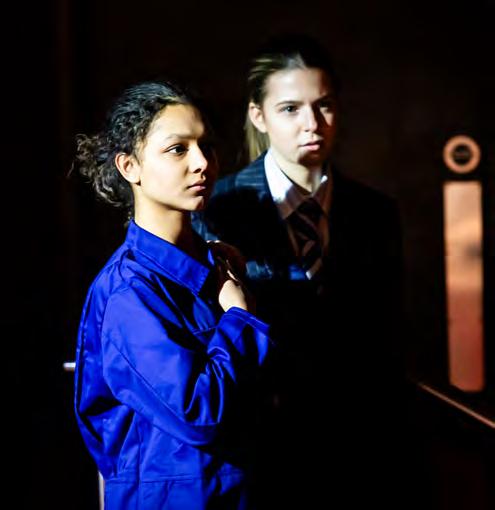
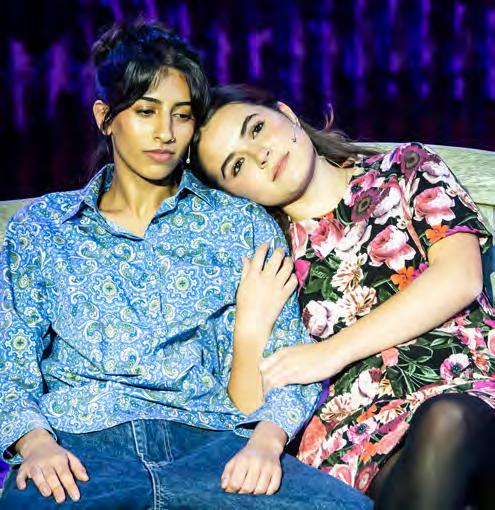
This year the Drama department commemorated the 175th anniversary of the school by honouring a milestone moment for women’s equality: the victory of the Ford factory car manufacturers, who won equal pay for women. It was a production befitting our celebration of the school’s legacy as a pioneer in women’s education.
The 50 strong cast brought vibrancy and emotional depth to the scenes drawn from the real life experiences of the female workers of Ford Dagenham. Bringing to life the grit and tenacity of these women was no small feat, making this ensemble piece a testament to
the talents and dedication of the cast. Highenergy dance numbers were interspersed with heart-warming ballads. The production featured a simple but evocative set consisting of an enormous distorted union Jack flag spanning the width of the PAC stage. The spirit of teamwork ran through the production like a golden thread. Student leadership and collaboration were at the heart of the production, with the cast working together seamlessly to craft every step of impeccable choreography. Told with visual flair and showcasing mature performances from the cast, this look at important historical turning points was shot through with humour as well as pathos.
Don’t think about making women fit the world - think about making the world fit women.
Gloria Steinem
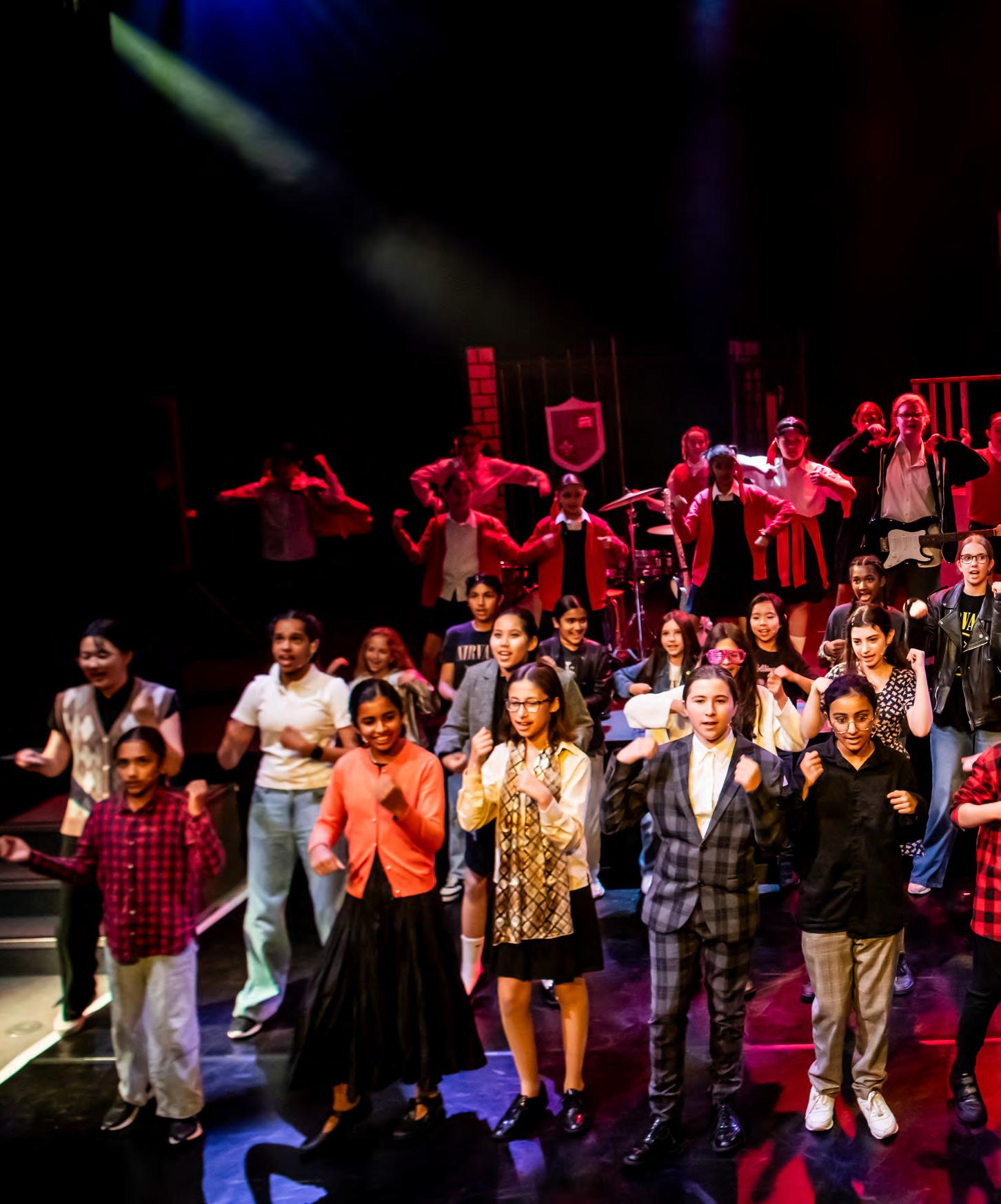
In the final weeks of Summer Term, Year 6 performed School of Rock in the PAC.
It was the first full Junior School musical in more than ten years and brought together music, drama and design in a fast-paced and well-executed production.
Mr Boase and Mr Adams transformed the PAC stage into Horace Green Prep School, The Roadhouse bar, Dewey’s bedroom and the Battle of the Bands venue. The set and lighting were designed to shift quickly between locations, supporting the pace of the show.
All Year 6 pupils took part, each playing multiple characters and appearing in several scenes, musical numbers and dances. The production balanced comic scenes with quieter moments and maintained energy throughout.
A standout moment was the final performance at the Battle of the Bands. With the full cast on stage and the story complete, the production ended on a high. In the following days, staff and younger pupils were still singing ‘Stick it to the Man’ around the school.
Reflecting on what they have learned through Drama in the Junior School one Year 6 girl said:
I have learned how to feel my character’s emotions and portray their feelings” another
commented
“I have become more confident and learned how to act all the time I am on stage, not just when I am speaking.
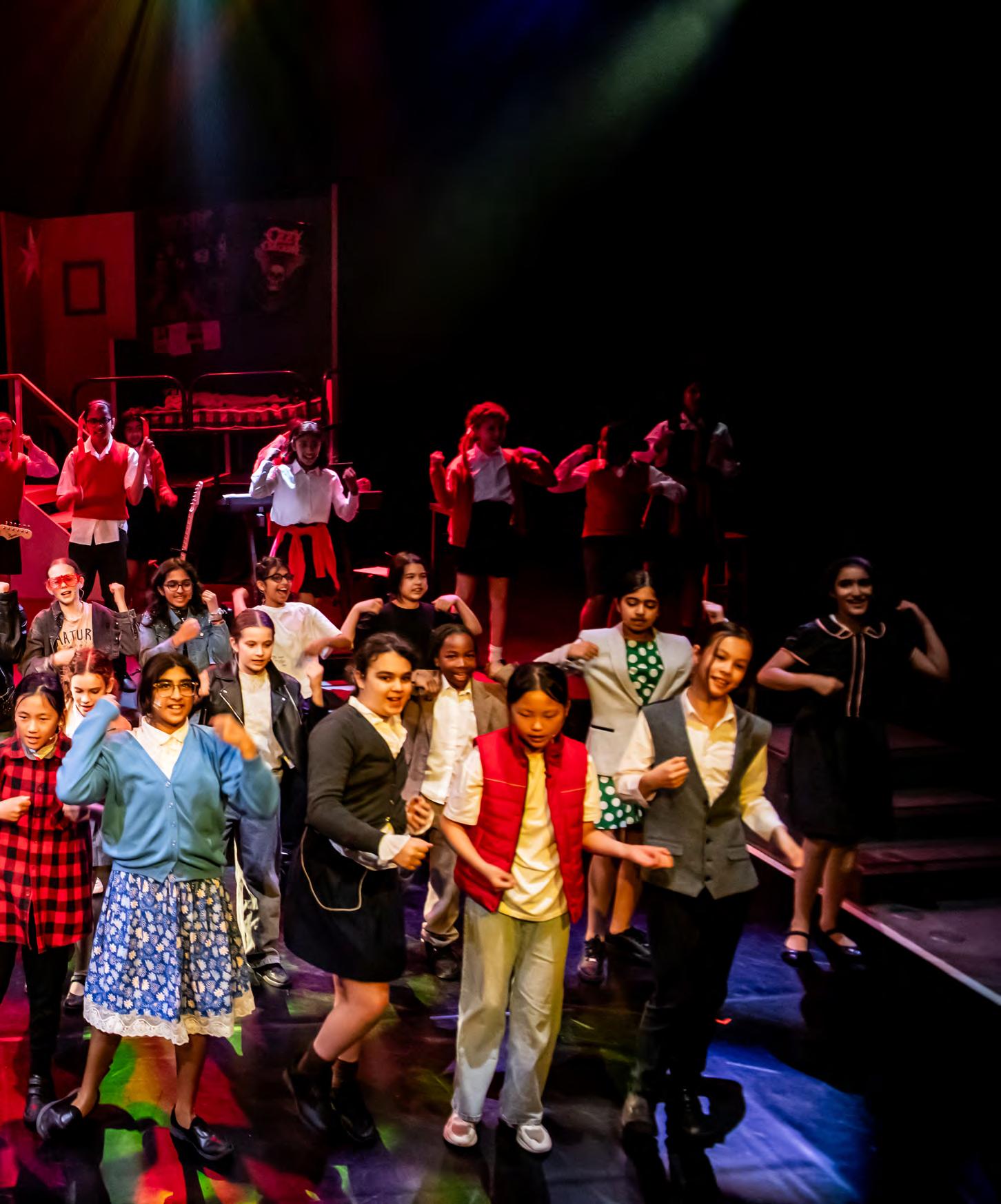
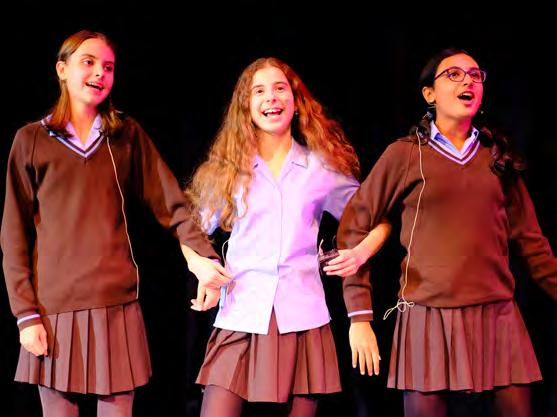
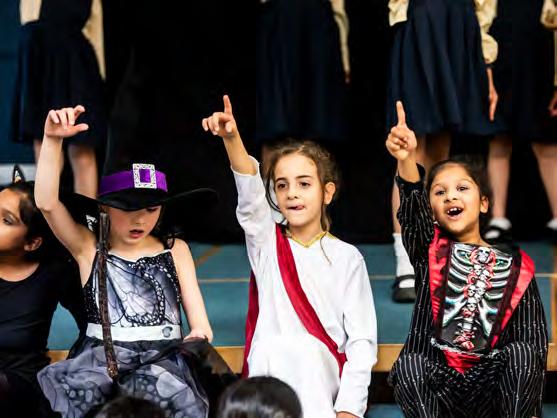
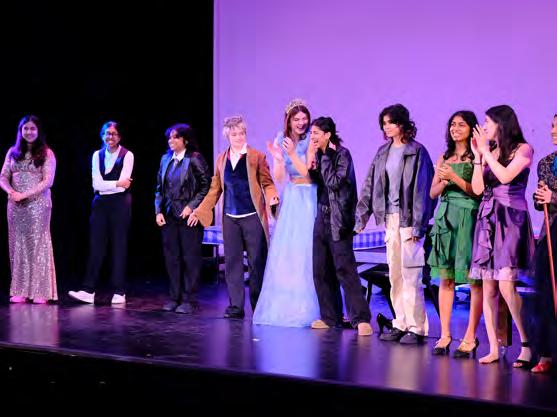

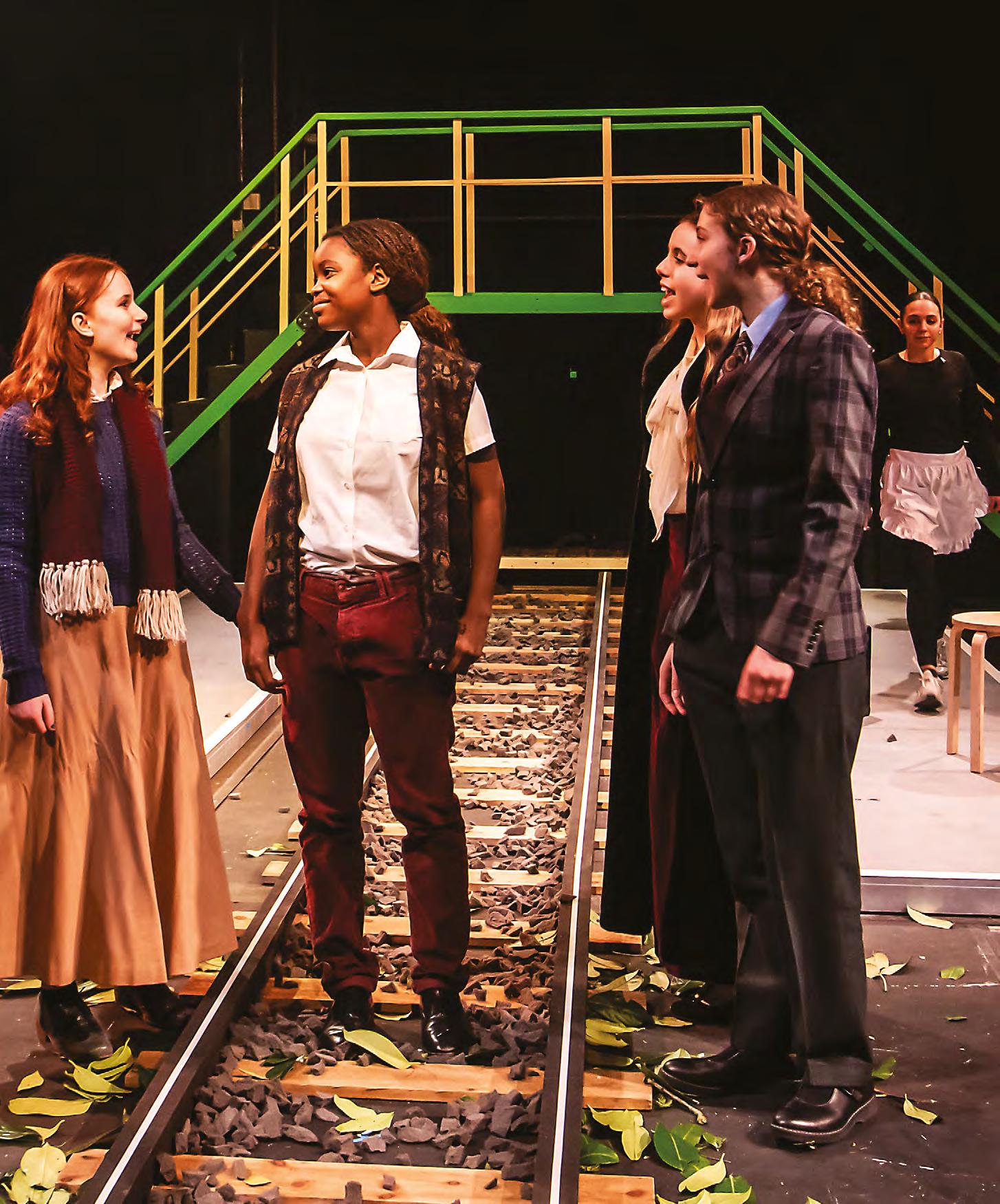
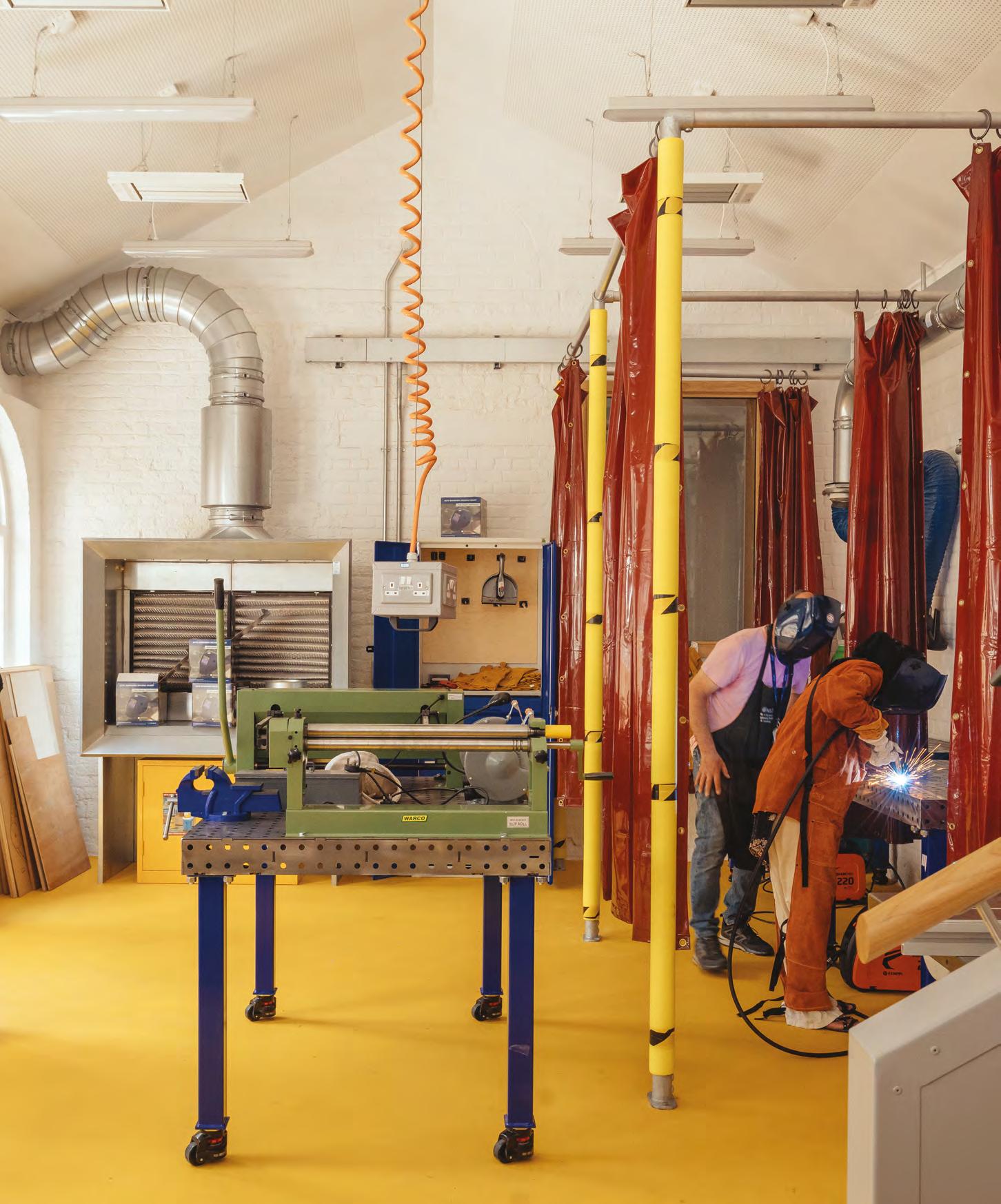
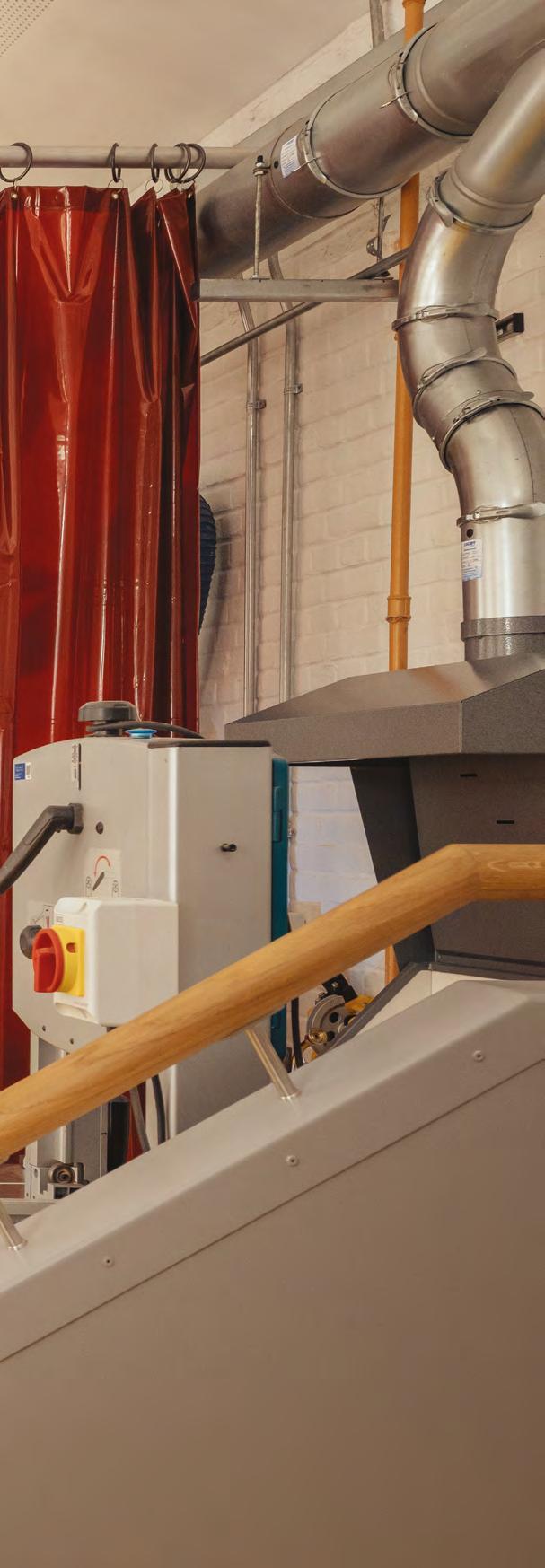
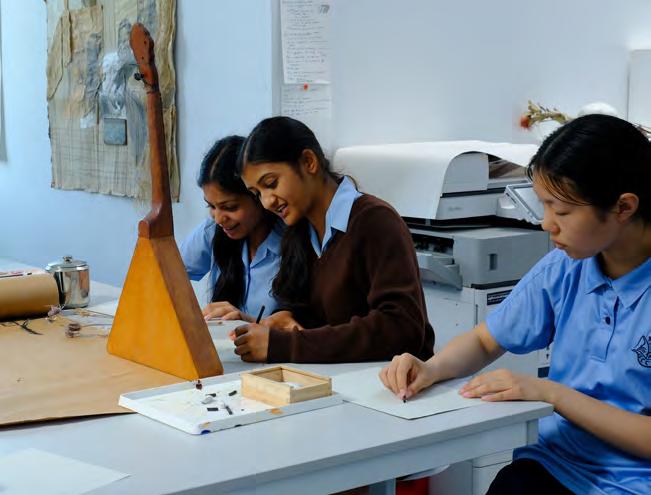
nnovation and exploration have defined this year across the Art and Engineering, Design & Technology department.
With new environments to work in and fresh opportunities beyond traditional lessons, students approached their subjects differently. The move into new studios and workshops brought better equipment and more space, encouraging a shift in mindset.
The Ideas Hub became a place where students could collaborate and push their work in new directions. It wasn’t unusual to see art and design happening outside lesson time, during breaks and lunchtimes. The new space also provided a modern, professional setting for exhibitions, giving students the chance to showcase their hard work with pride.
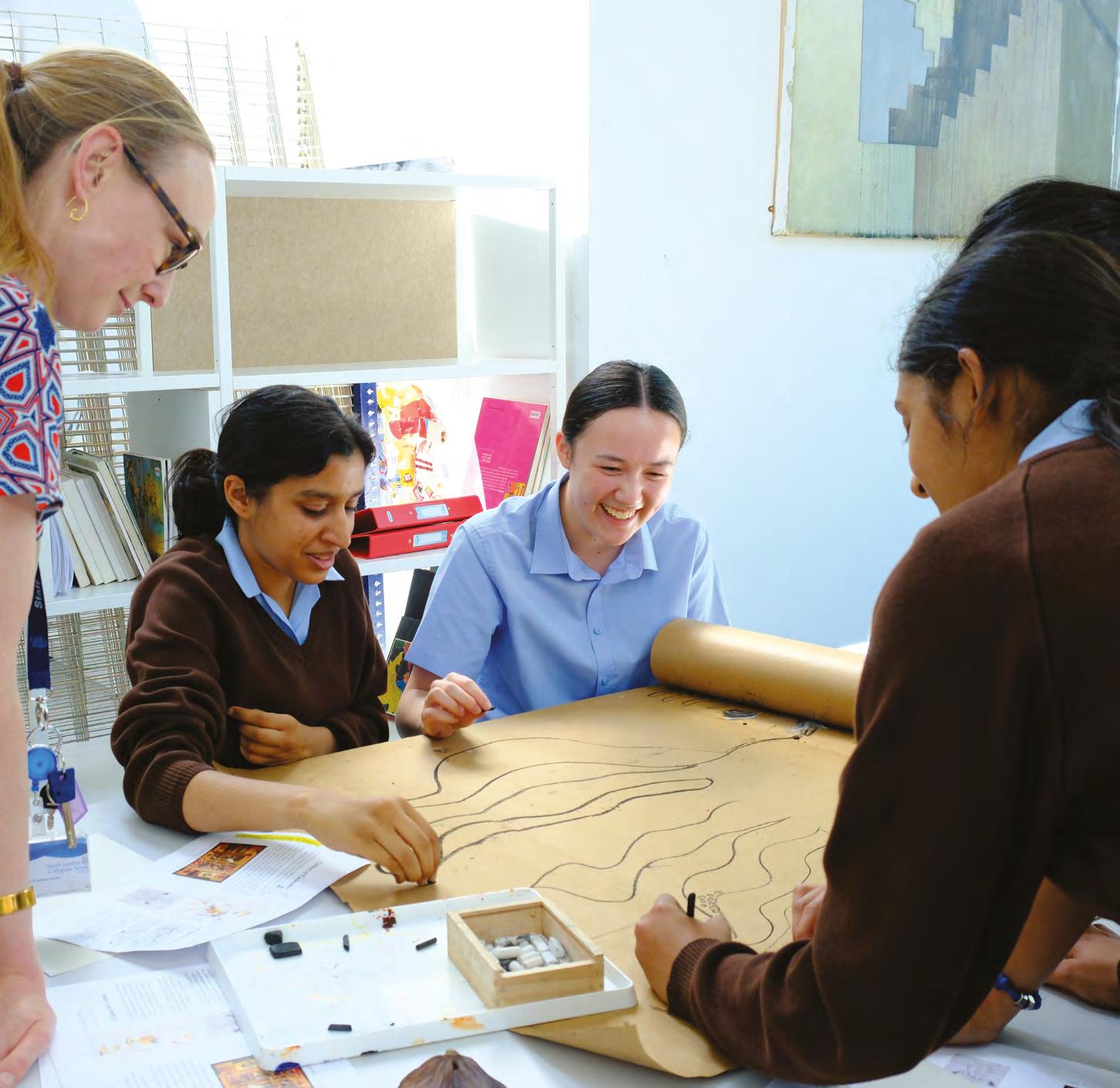
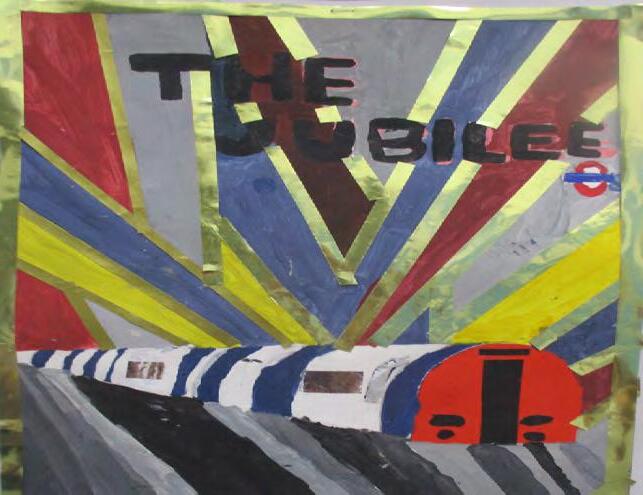
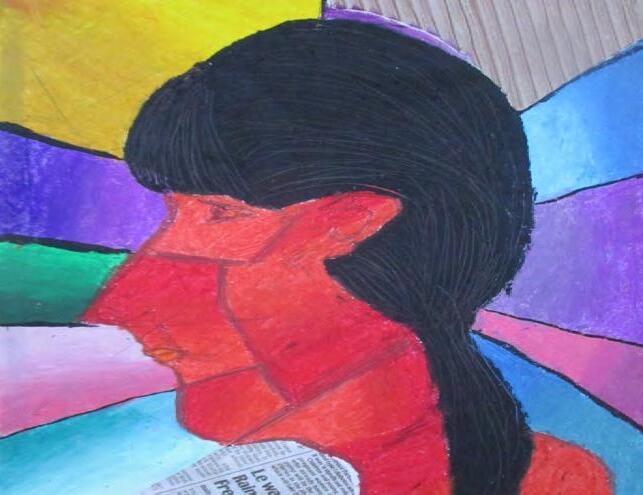
This year, the Art department has been alive with new ideas.
With large, open spaces and the flexibility to test out new processes, the art studios quickly became a place where creative thinking felt encouraged. The space itself invited students to work on a larger scale and to try unfamiliar materials.
Much of the year’s momentum came from outside the classroom. Across a number of gallery visits in London including the TATE Modern, TATE Britain, Saatchi Gallery and the V&A Museum, students had the chance to engage with work in person, seeing up close how artists use space, material and context to shape meaning. These visits added depth to studio work and helped students develop their own ideas to incorporate into future projects. The department also collaborated with the
MFL department for an extraordinary trip to Florence, Italy, one of the world’s great art capitals. Students explored iconic sites such as the Uffizi Gallery, Palazzo Pitti, and Bargello Museum. The trip was further elevated with professional masterclasses: students learned the intricate techniques of egg tempera painting with Dr. Alan Pascuzzi and honed their oil painting skills at the prestigious Florence Studio. This practical experience broadened their knowledge of art history and deepened their appreciation of traditional and contemporary artistic practices.
Another highlight of the year was welcoming guest artist Kate Mahony, who delivered an inspiring workshop on video art and performance for Year 12 and Year 13 students, encouraging them to experiment with dynamic and contemporary art forms.
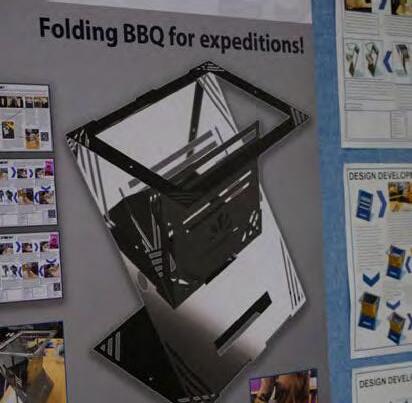
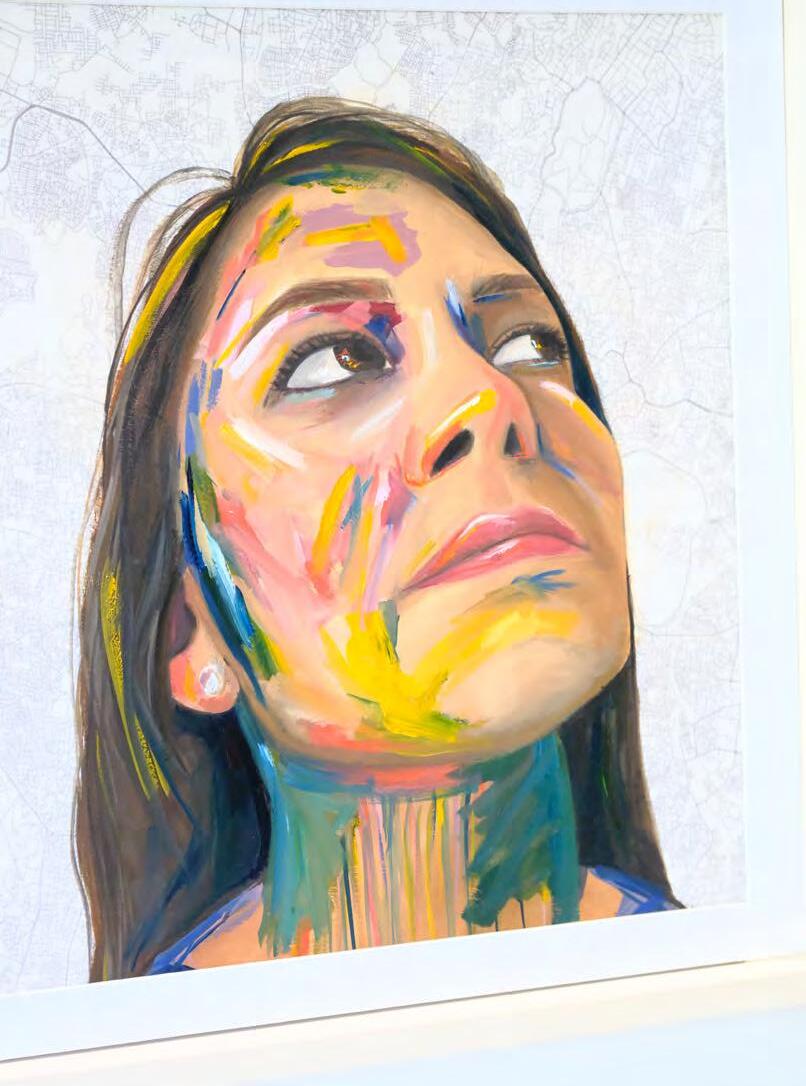
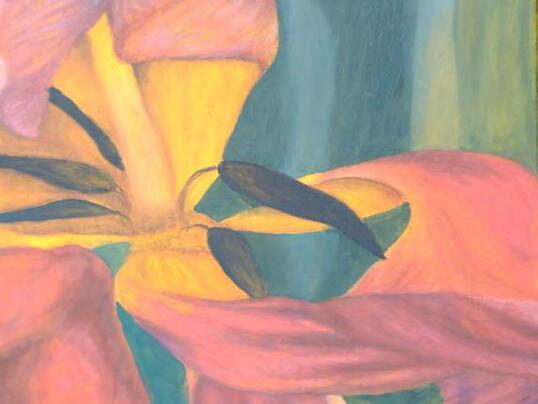
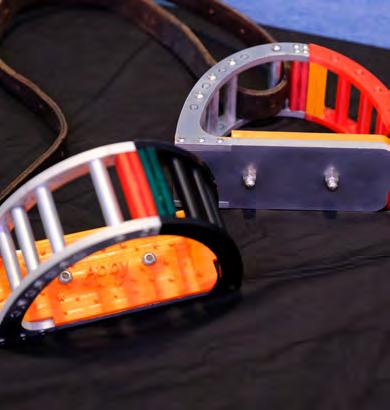
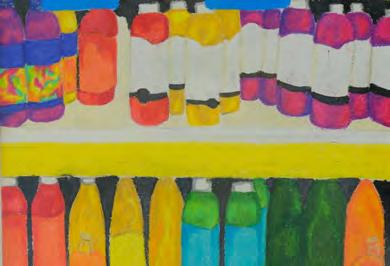

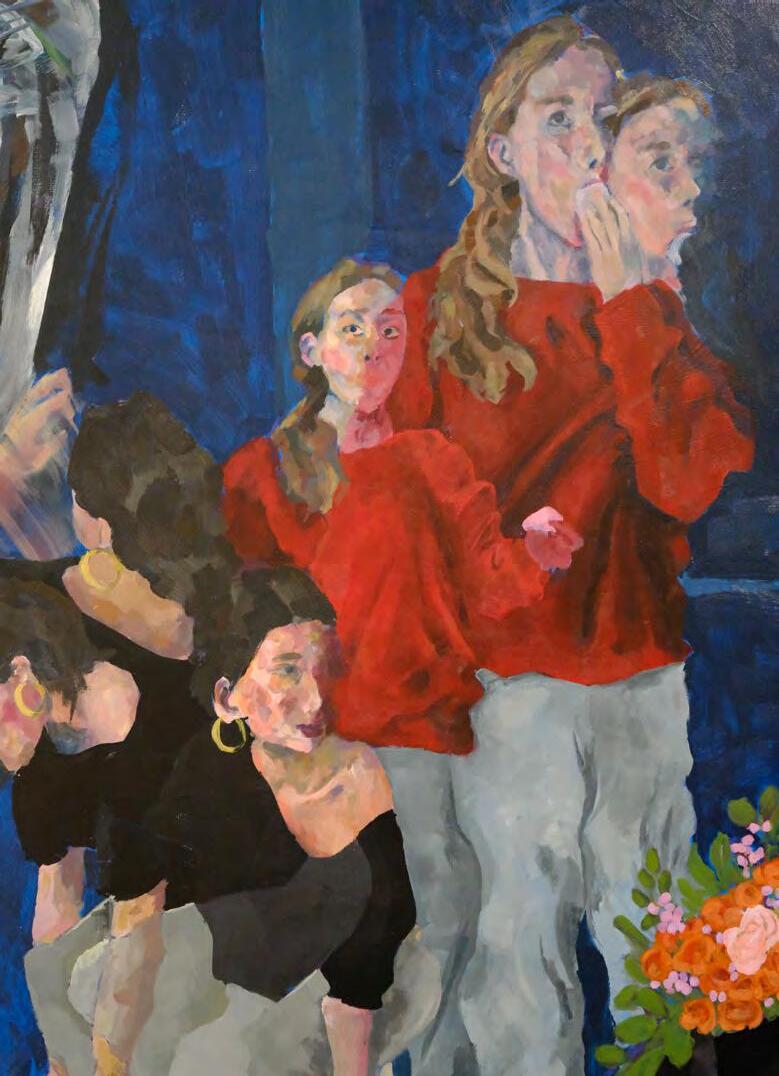
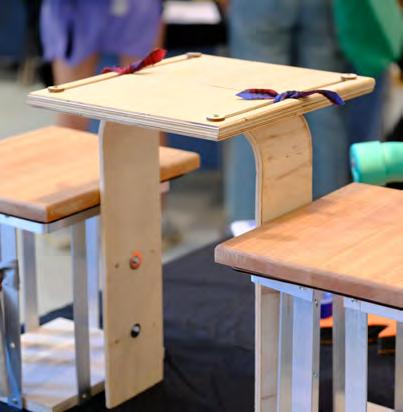
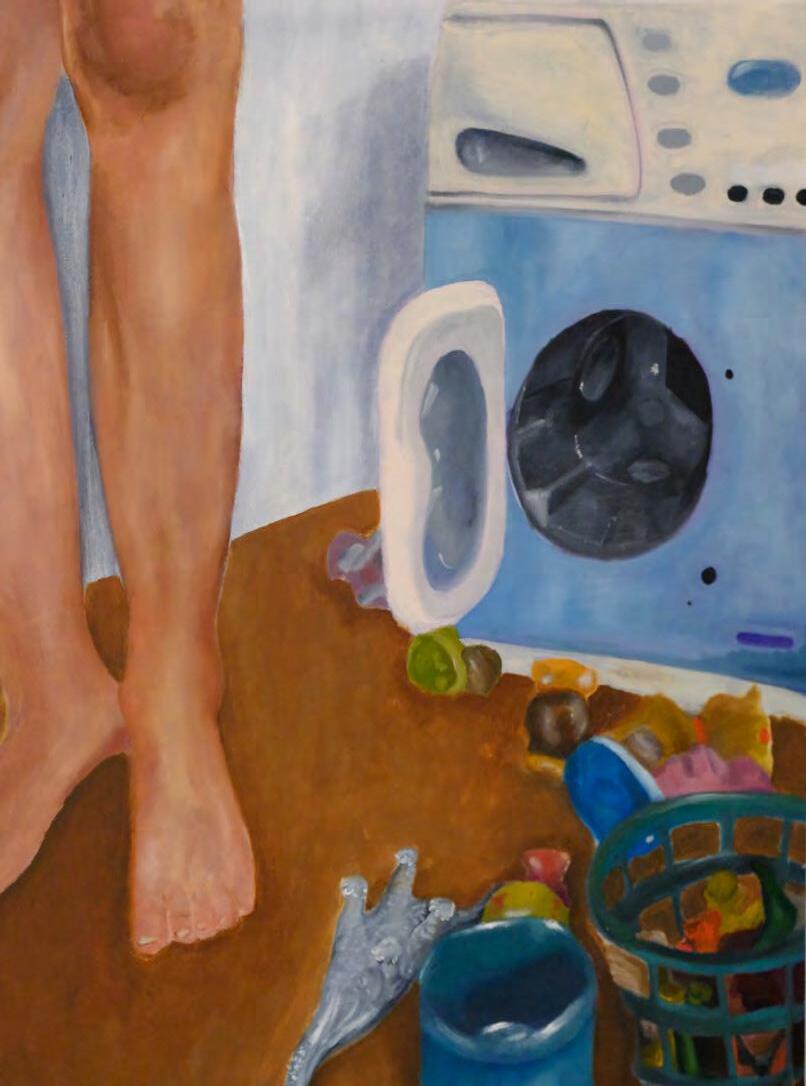
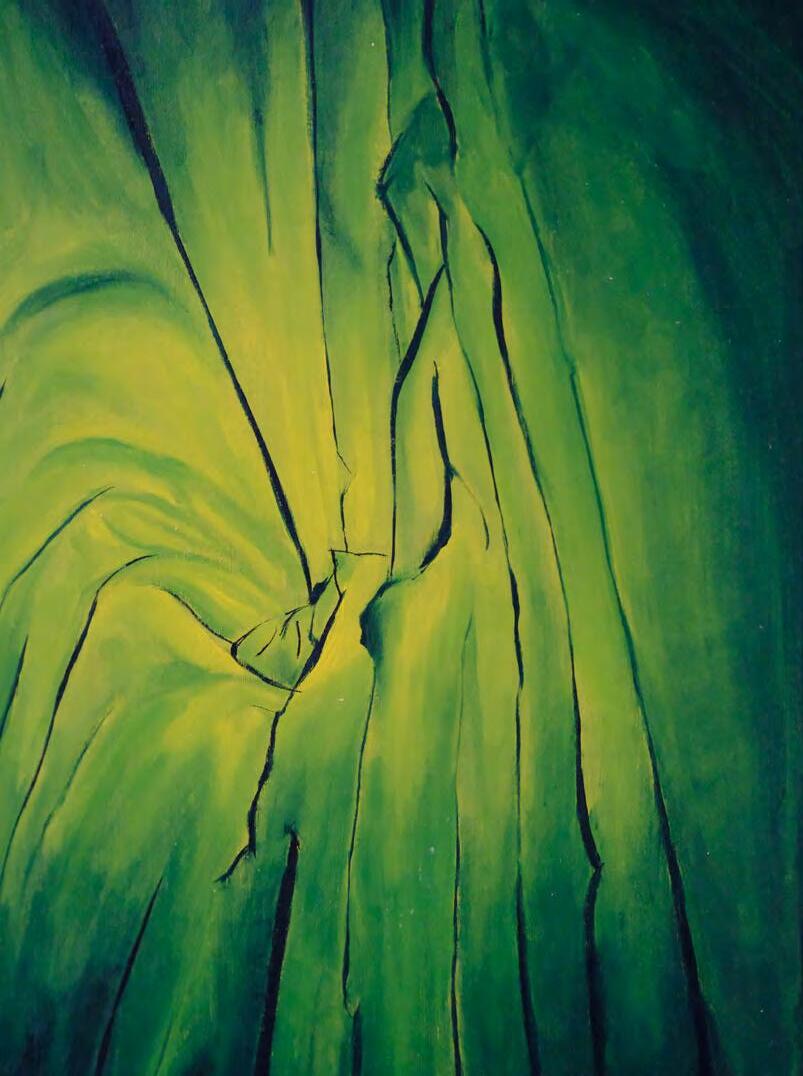
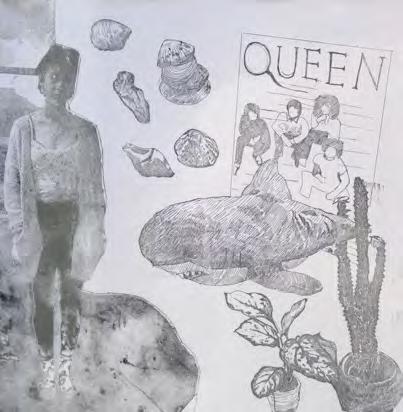
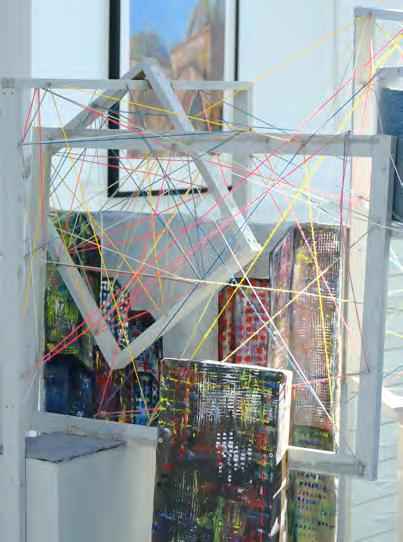
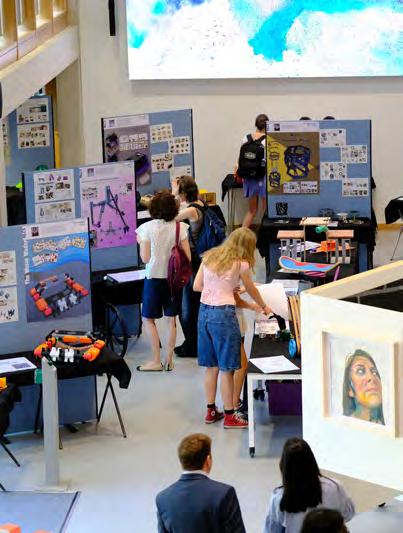
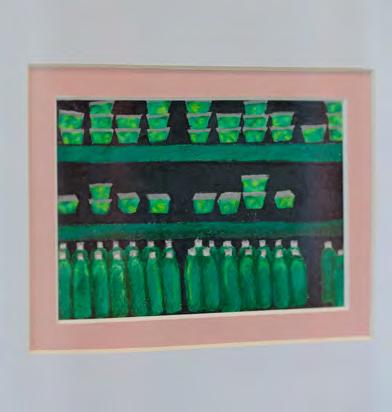
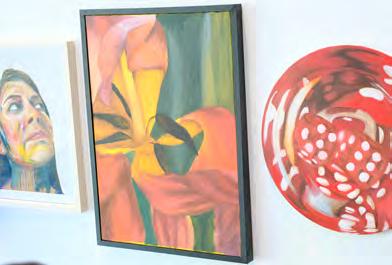
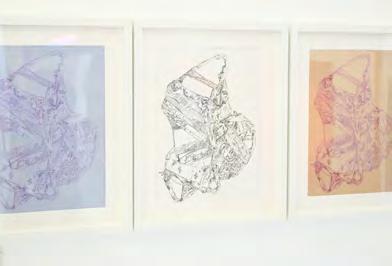

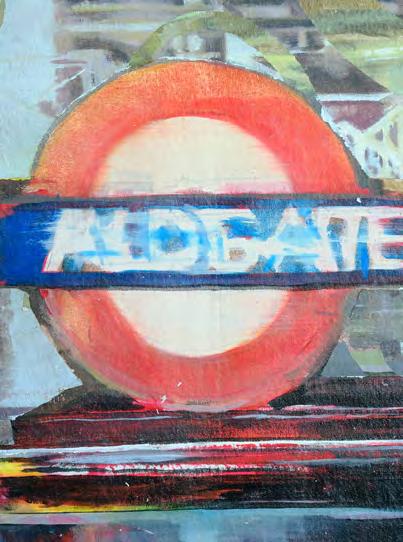
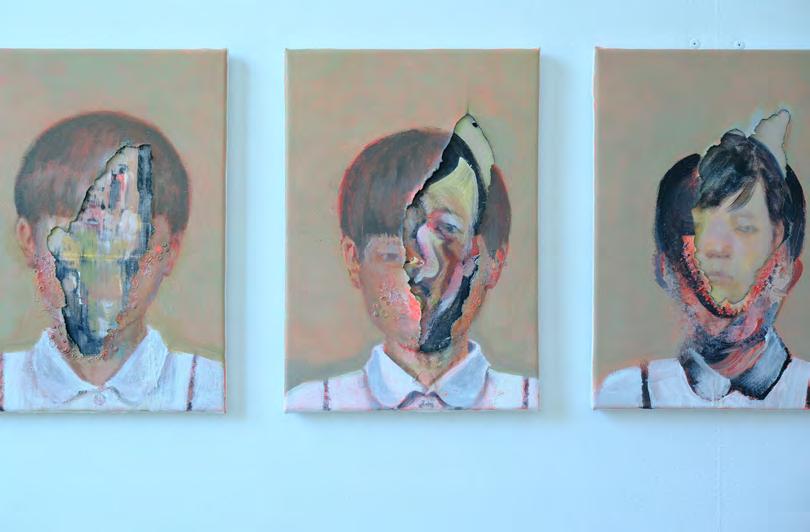
This academic year was a period of development for the Engineering, Design & Technology department.
Even while dealing with the challenges of relocation, students stayed focused and kept working on a range of skills. Like the Art Department, moving into the new Ideas Hub gave the department more workshop space and better equipment, including a new CAD suite, 3D printers, and laser cutting tools, creating an improved environment for practical work.
What began as a small robotics club just two years ago has quickly turned into one of the department’s most exciting success stories. Now in its second year, VEX robotics club saw three teams qualify for the UK National Finals. NLCS_Probots finished second overall, while NLCS_Reboot earned second place in the Robot Skills Challenge. Both teams travelled to Dallas to represent the UK at the VEX World Championships, competing among the top teams internationally.
Students also took part in the F1 in Schools competition, entering both the Development and Professional classes. The work required a careful balance of design, testing, and presentation. Teams prepared engineering portfolios, built model cars, and refined branding material to meet the expectations of the judges. The process gave students insight into how different strands of a project come together in a professional context.
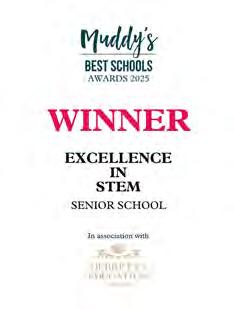
Alongside these projects were the development of the curriculum. The new A level launched this year, and the second GCSE cohort completed their final assessments. Students worked with composite materials such as carbon fibre and GFRP, and gained experience using waterjet cutters, spot welders, and coded electronics. Even during the months based in temporary buildings, practical work remained central to lessons.
The annual exhibition brought all of this together with GCSE students displaying thoughtful design solutions, many responding to specific user needs. From assistive products to sustainability-focused tools, the work reflected a strong connection between concept and function.
The department also extended its work to students and staff outside the NLCS community. Alongside Computer Science, staff co-led a day of STEM learning for the Junior School and two local partner schools, as part of the NLCS Eureka programme. The department also hosted visiting staff from other HMC schools, sharing practice and strengthening professional links.
With new mechatronics modules in place for the year ahead, and full use of the Ideas Hub now underway, the EDT department is well-positioned to build on the progress of this year.
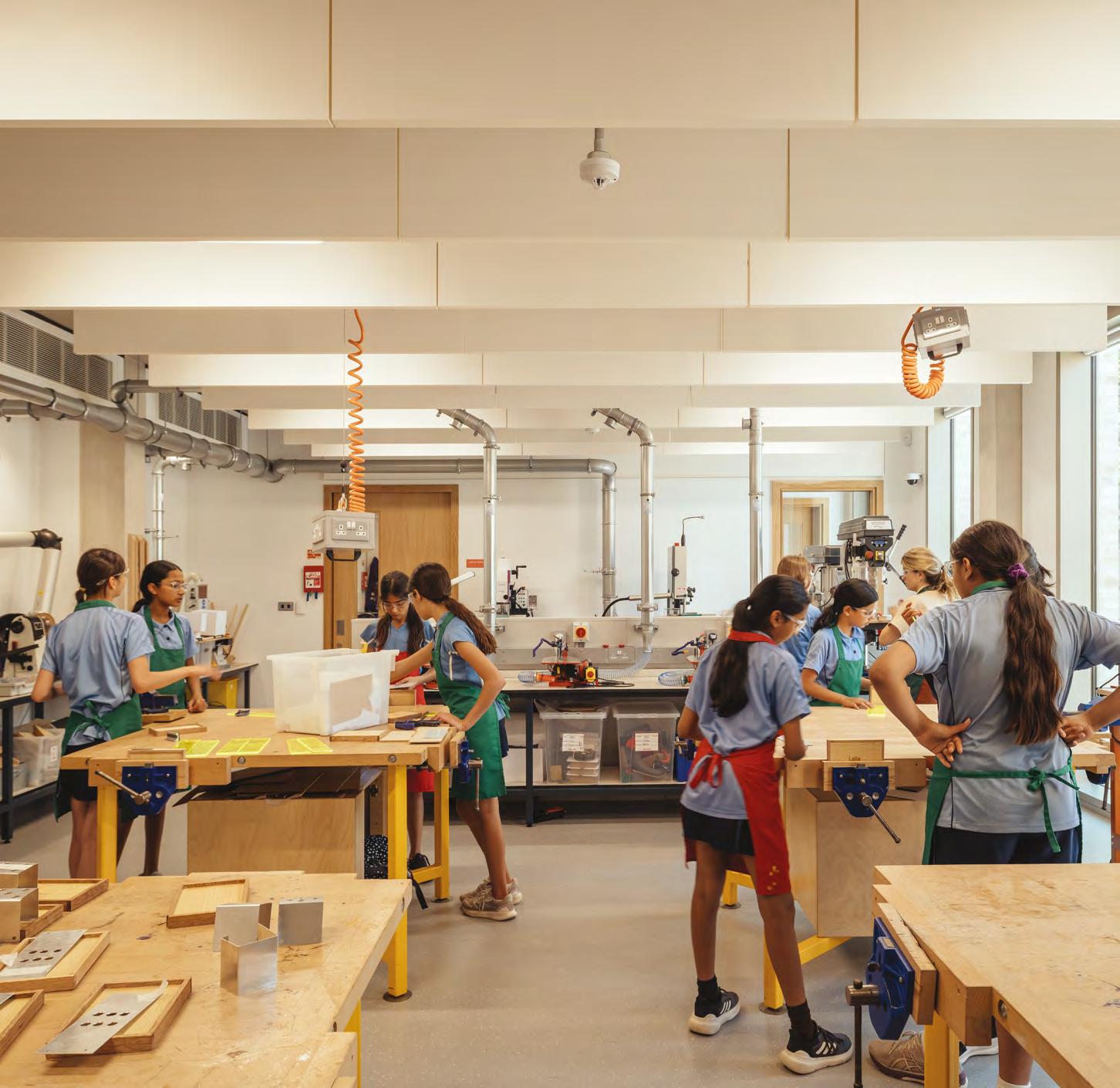
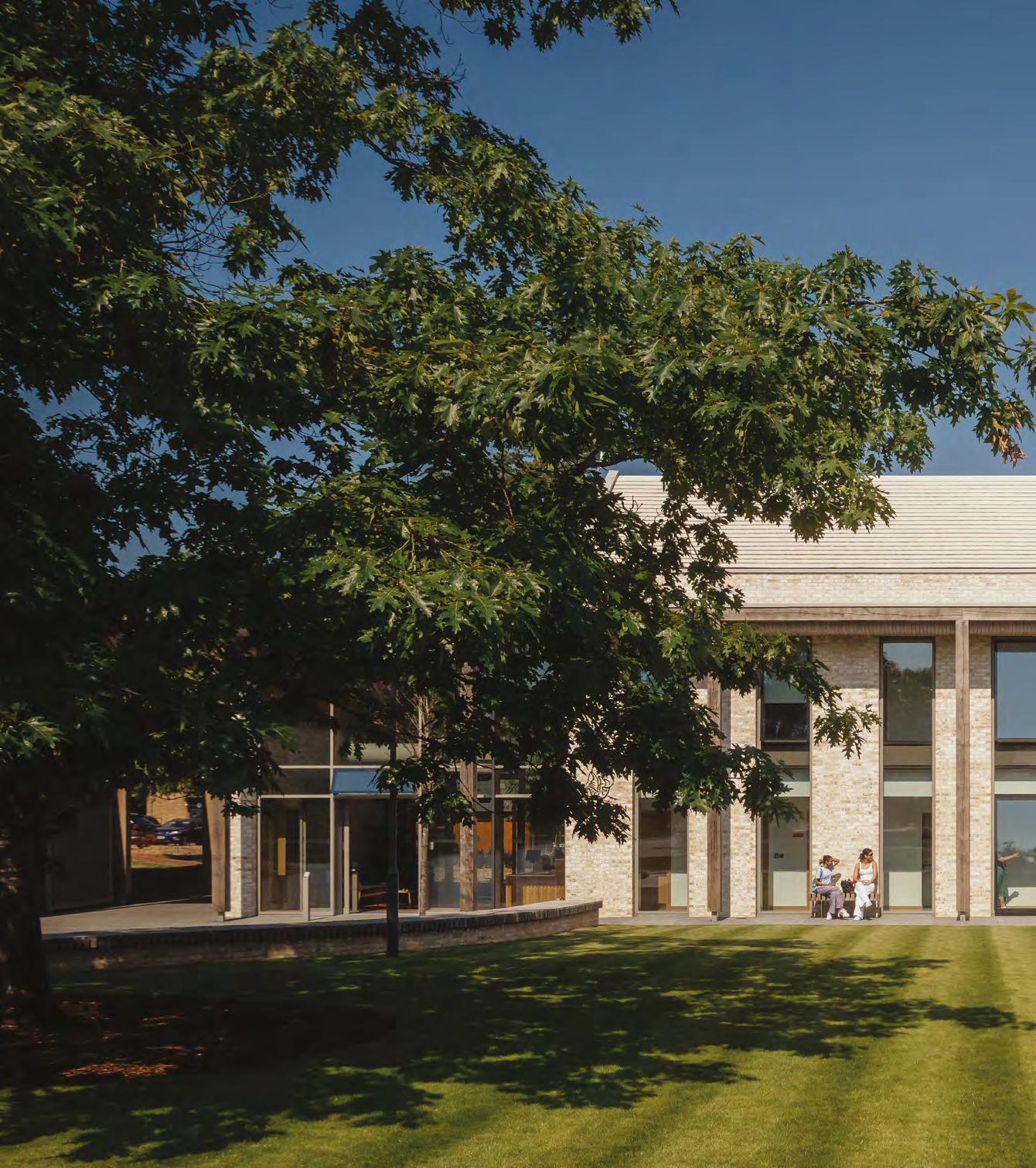
The Ideas Hub is officially open and is already shaping the future of how we teach, learn and lead.
We’ve welcomed students, parents, ONLs, governors and partners into our new space, designed to inspire and embody innovation.
This is a bold investment in the future of education at North London Collegiate School, one that aligns directly with our 2030 vision and long-term strategic aims.
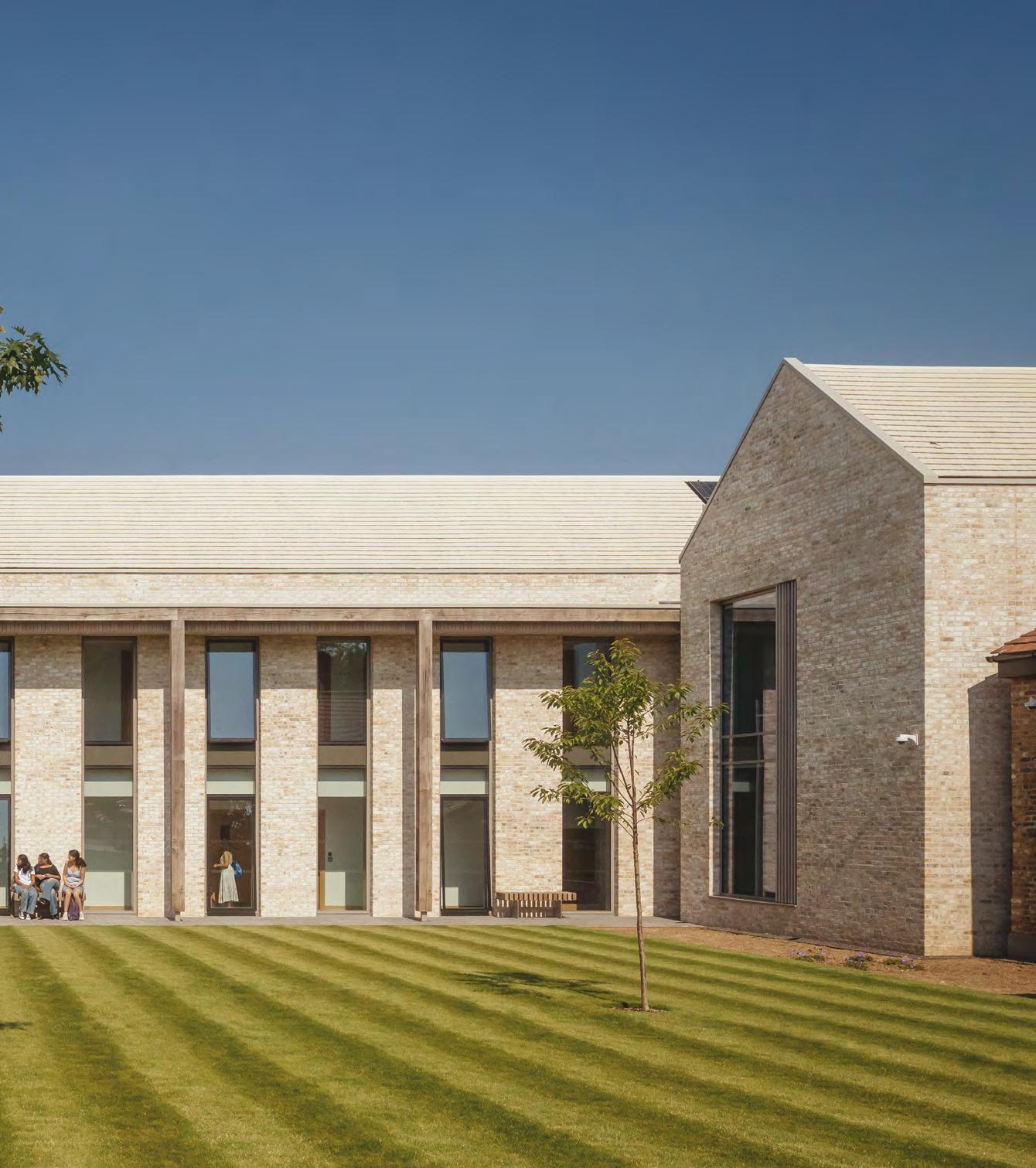
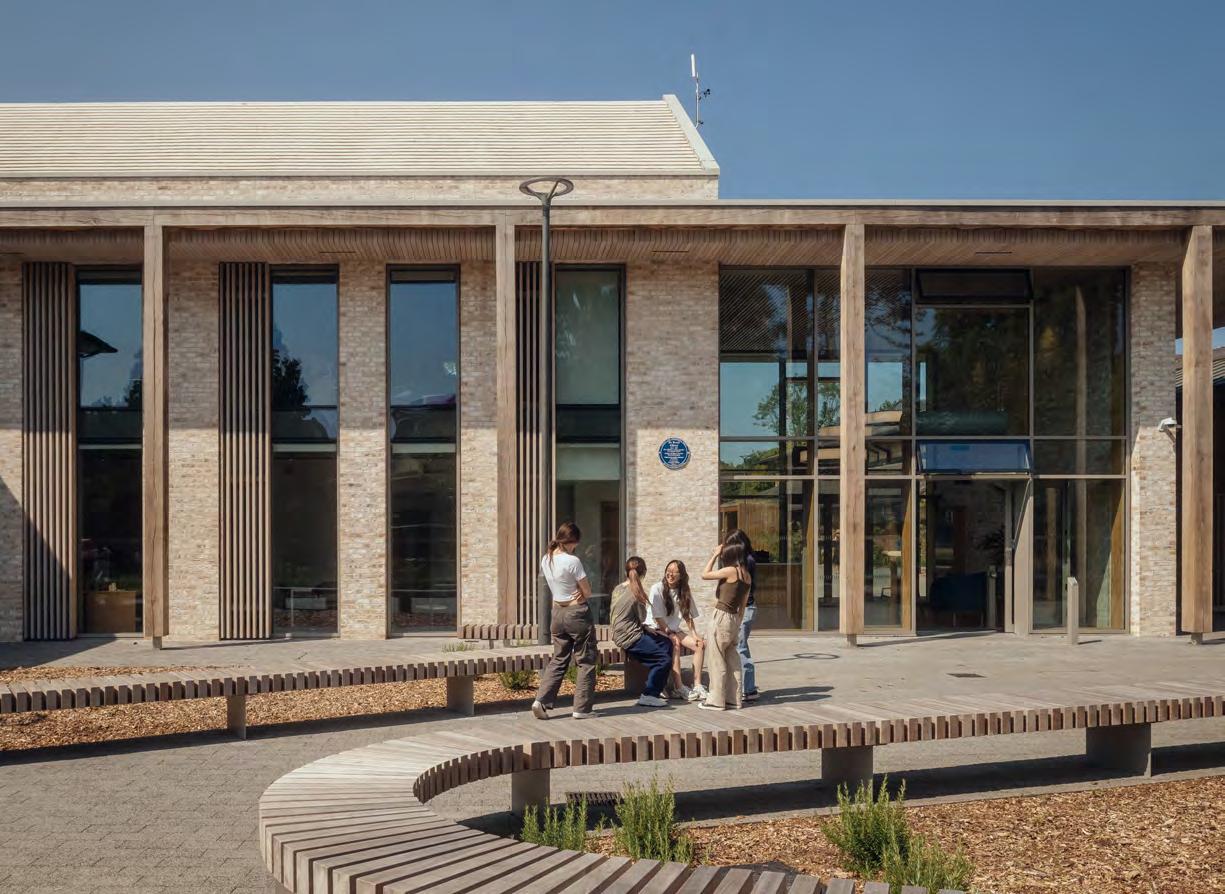
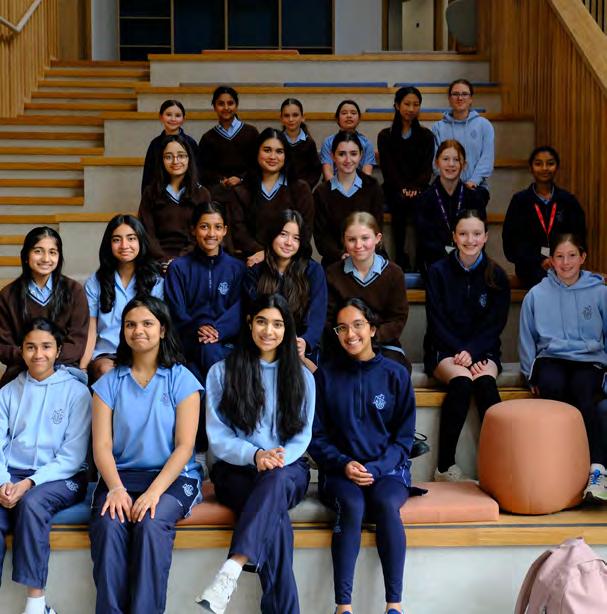
As our Headmistress, Vicky Bingham, puts it:
It was never about bricks and mortar. We set out to create a physical expression of our values – a place where academic excellence, creativity and intrepid innovation meet.
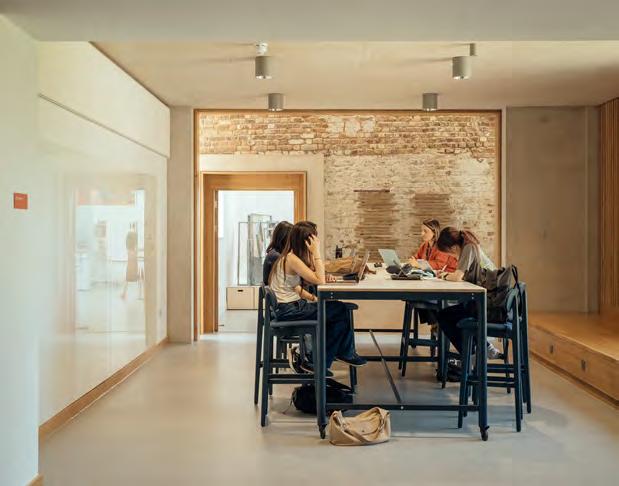
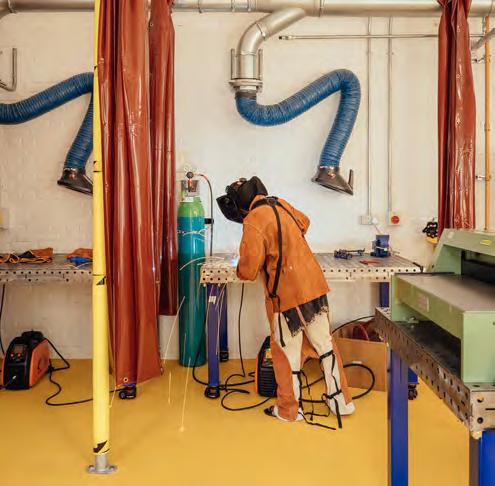
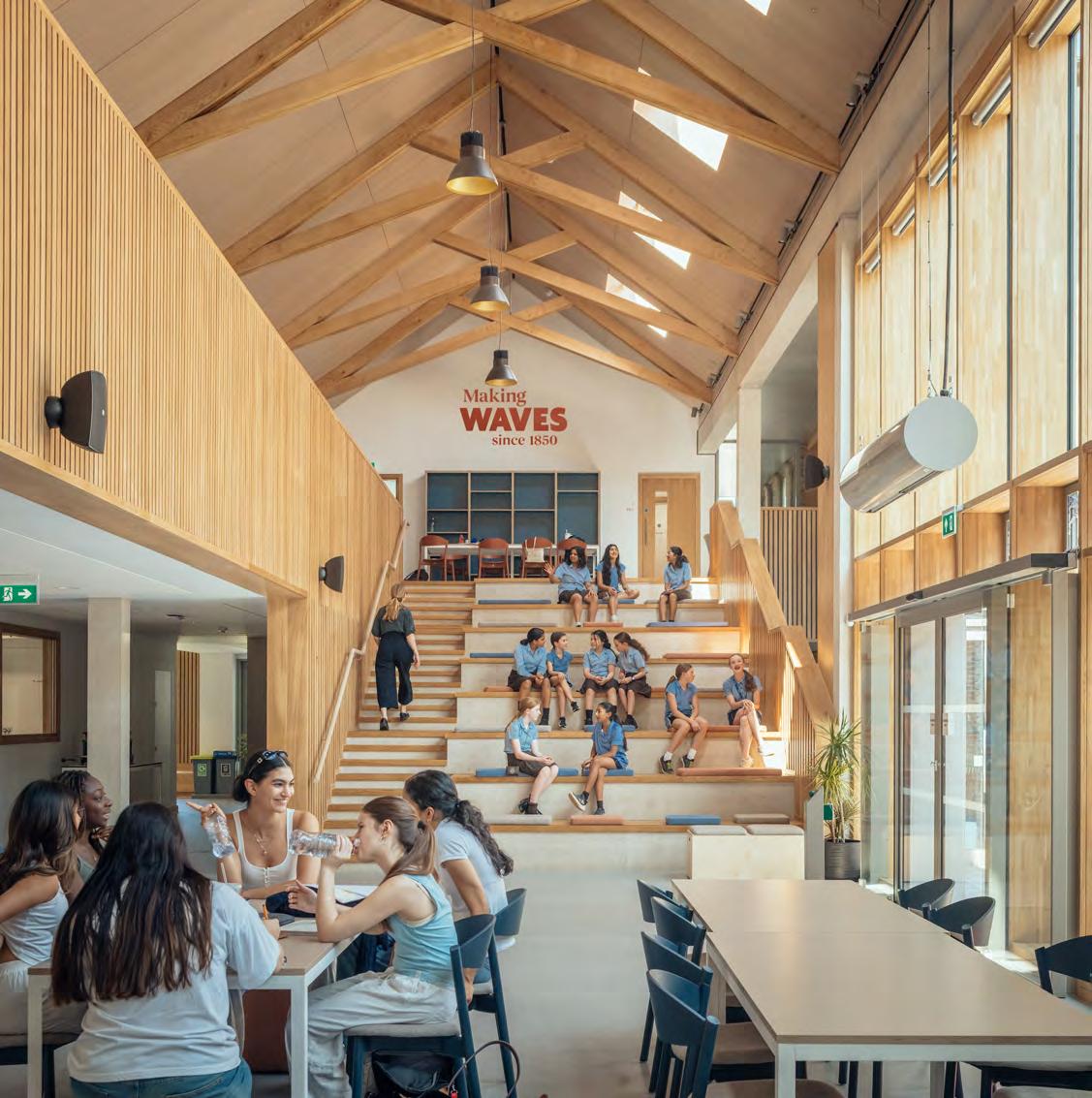
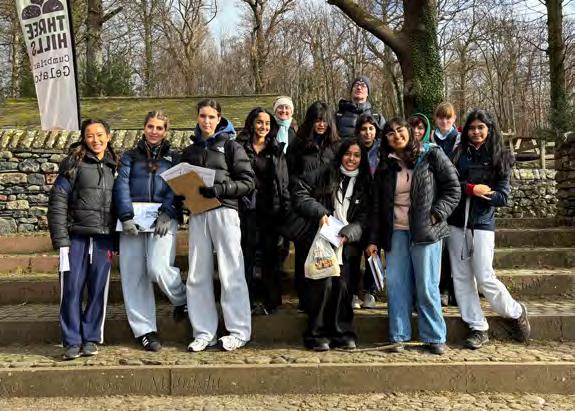
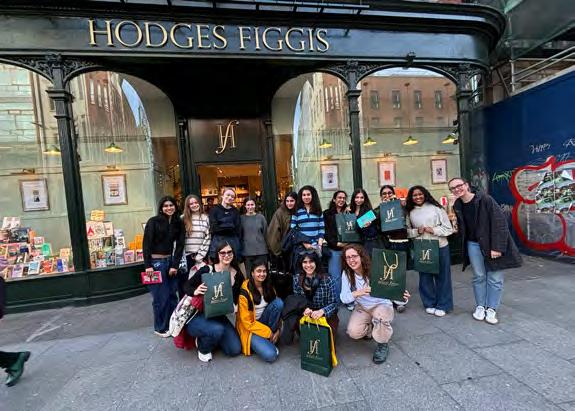
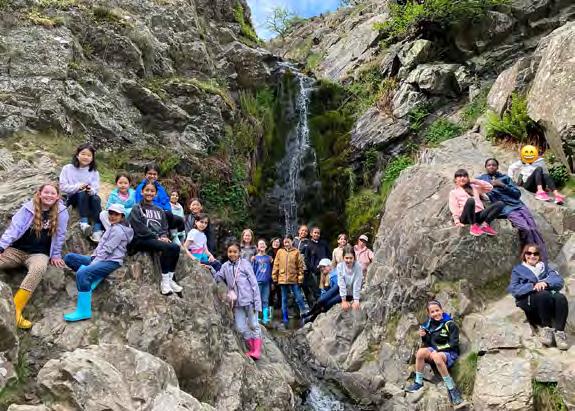
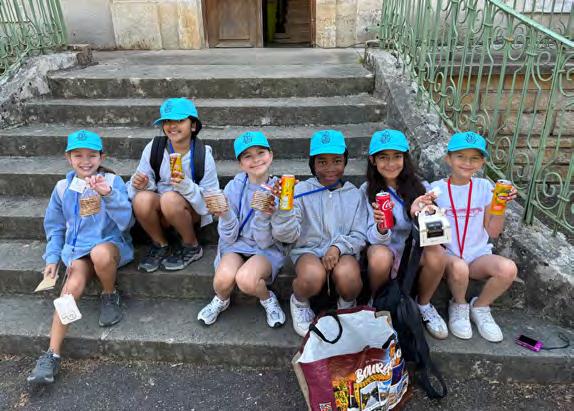
Quote from MrCobb:
“It is always a challenge to get an entire year group and staff to navigate their way across the country to a remote location, settle them into their rooms and activity groups and get into a range of new activities in an unfamiliar location. But the NLCS girls are amazing!”
YEAR 8 RESIDENTIAL TO DERBYSHIRE, EDALE
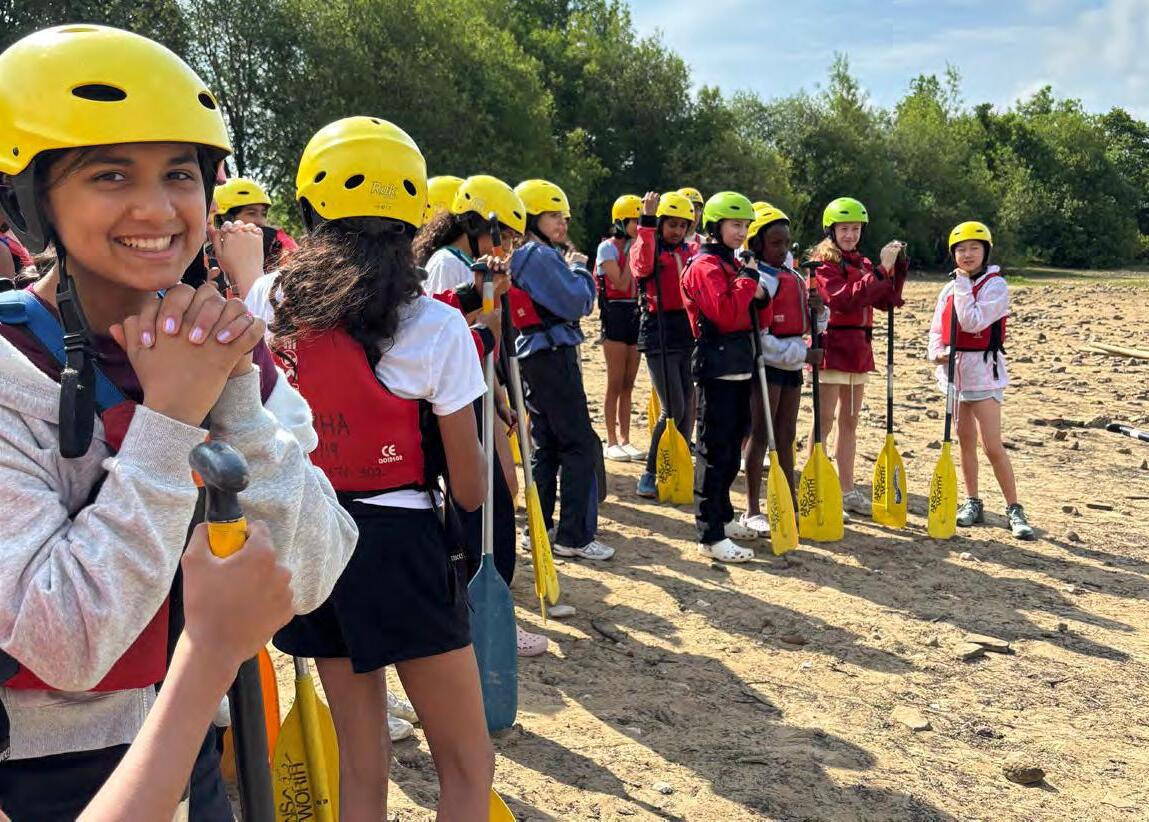
YEAR 8 RESIDENTIAL TO DERBYSHIRE, EDALE
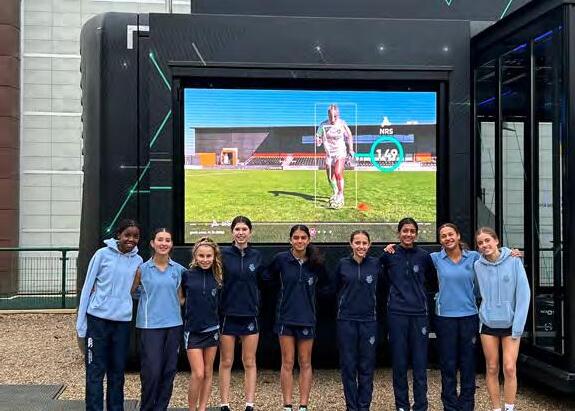
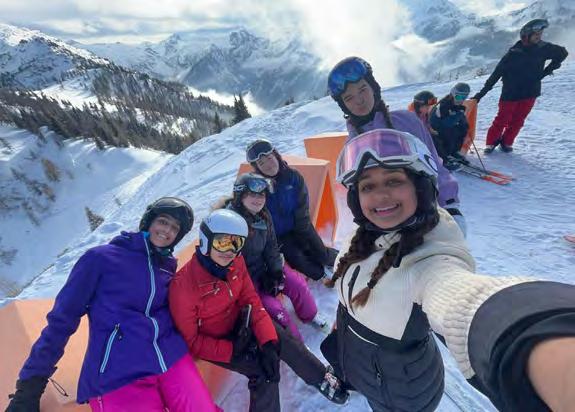
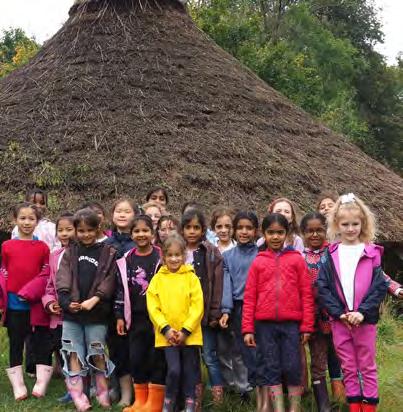
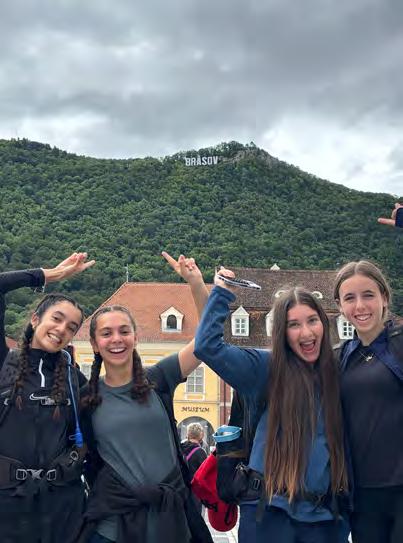
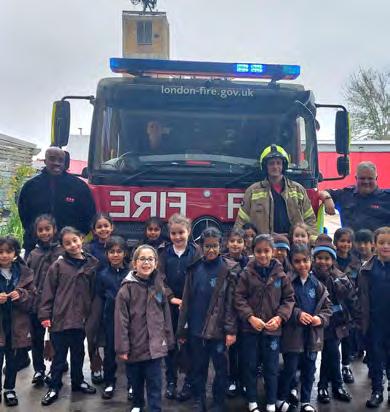
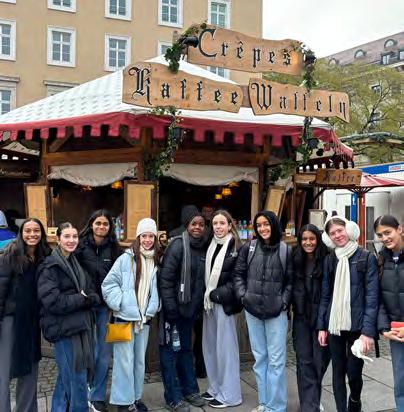
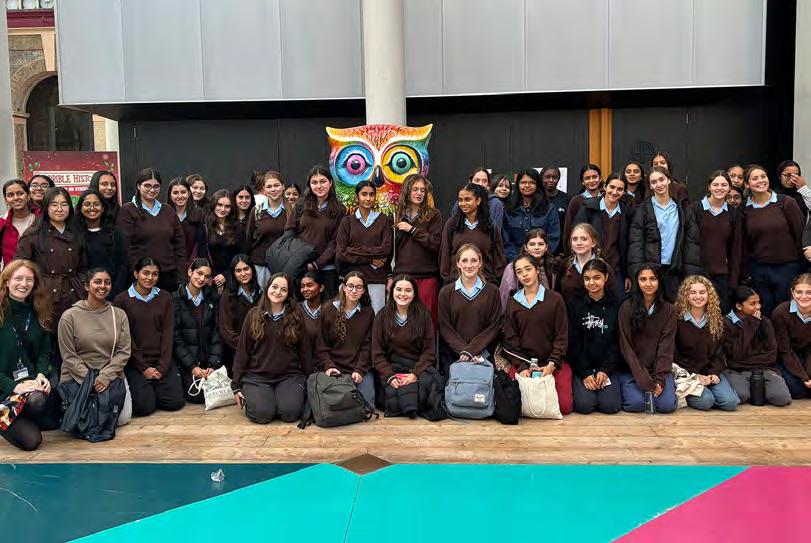
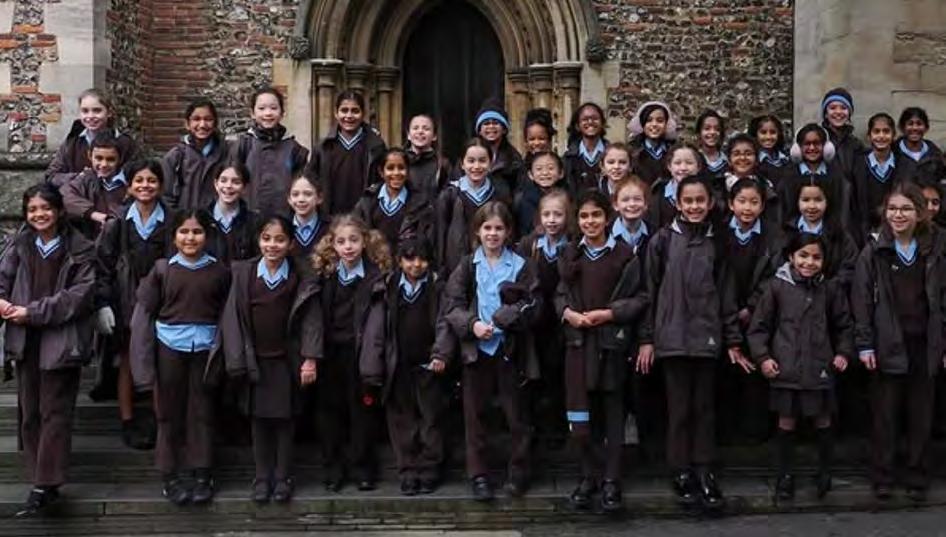
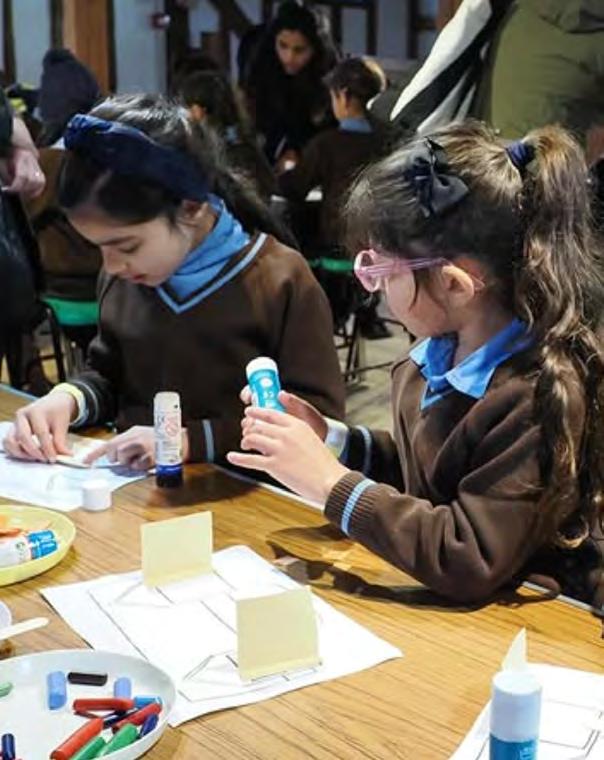
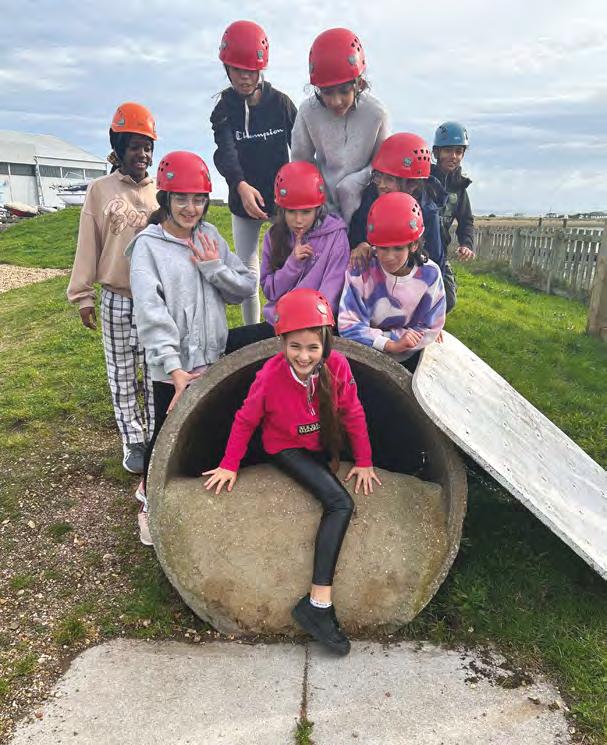

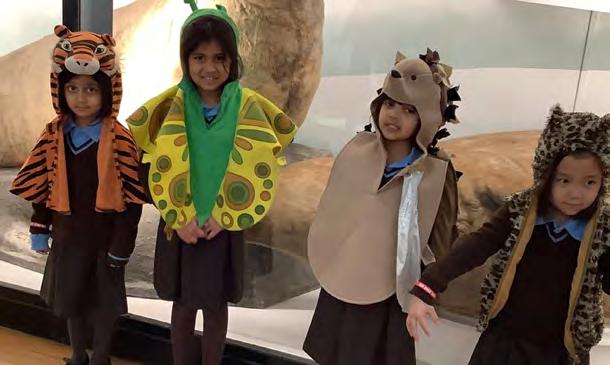

Through
a clear, school-wide approach, our oracy strategy is guiding the way students develop their communication skills across all areas of school life.
Students from both the Senior and Junior School are being inspired to take part in meaningful dialogue, through the integration of speaking and listening skills in and beyond our curricula. Our Raising Voices programme builds these skills: in classrooms, students are encouraged to dive into discussion by voicing their perspectives, questioning ideas, and developing their own understanding through others’ insights and experiences. Beyond lessons, they are stepping up as leaders: driving discussions, hosting events and supporting other students. As a result, many are gaining confidence to find their own voice, articulating themselves fluently and clearly and developing an understanding of how they relate to others.
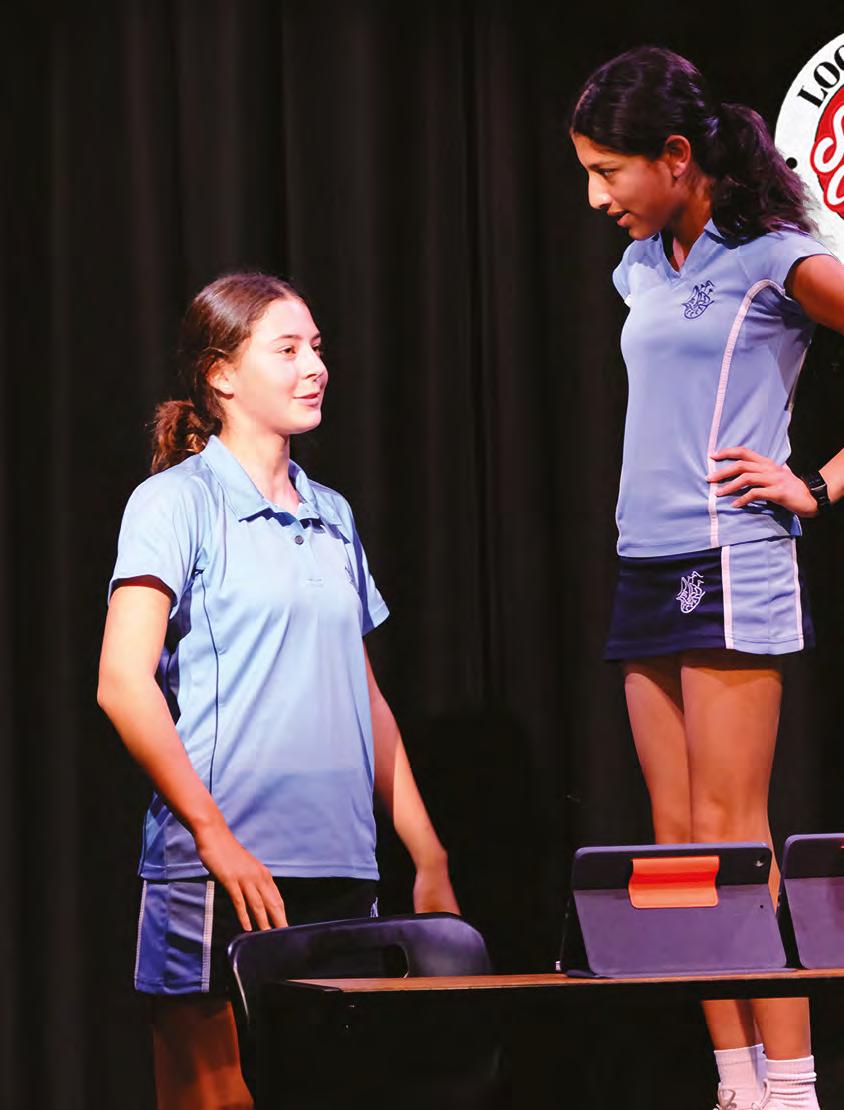

Raising Voices is a new programme introduced this year, designed to grow into a long-term embedded strategy spanning every year group. The aim of it is to help students develop the kind of verbal confidence that enables them to express what they know and also to explore what they don’t.
Despite consistently outperforming boys in literacy, girls remain less likely to take the floor in classroom discussions, speak publicly, or assert themselves in disagreement. Raising Voices responds to that imbalance by shifting how and why students are encouraged to speak.
The programme also places as much emphasis on listening as talking. Girls are supported to ask better questions and develop their own thinking by actively engaging with the ideas of others.
Two early events have brought the strategy to life for our students:
Loose Canon, a stand-up comedy and sketchwriting workshop led by professional comedian and actor Anna O’Grady. During the afternoon, students explored the art of comedy, from tackling nerves and mastering comedic timing to writing original routines and sketches that
reflected their own voices and perspectives. With Anna’s expert guidance, they gained valuable insight into how humour can be used to express and connect with one another.
The session concluded in a live performance in the Black Drama Studio, transformed into a comedy club for the occasion. Performing in front of their peers and members of staff, students delivered their routines with confidence.
Brainwaves, a new oracy showcase, invited students to speak for 4 minutes on any subject they felt passionate about. From political theory to personal identity, architecture to artificial intelligence, the range of talks reflected the full spectrum of NLCS thinking. This year’s topics included:
• Why Pop Music Sounds Better When Women Make It
• Can We Genetically Engineer Unicorns to Exist?
• Why I love lying
• Justice for Sale – The Price of Freedom
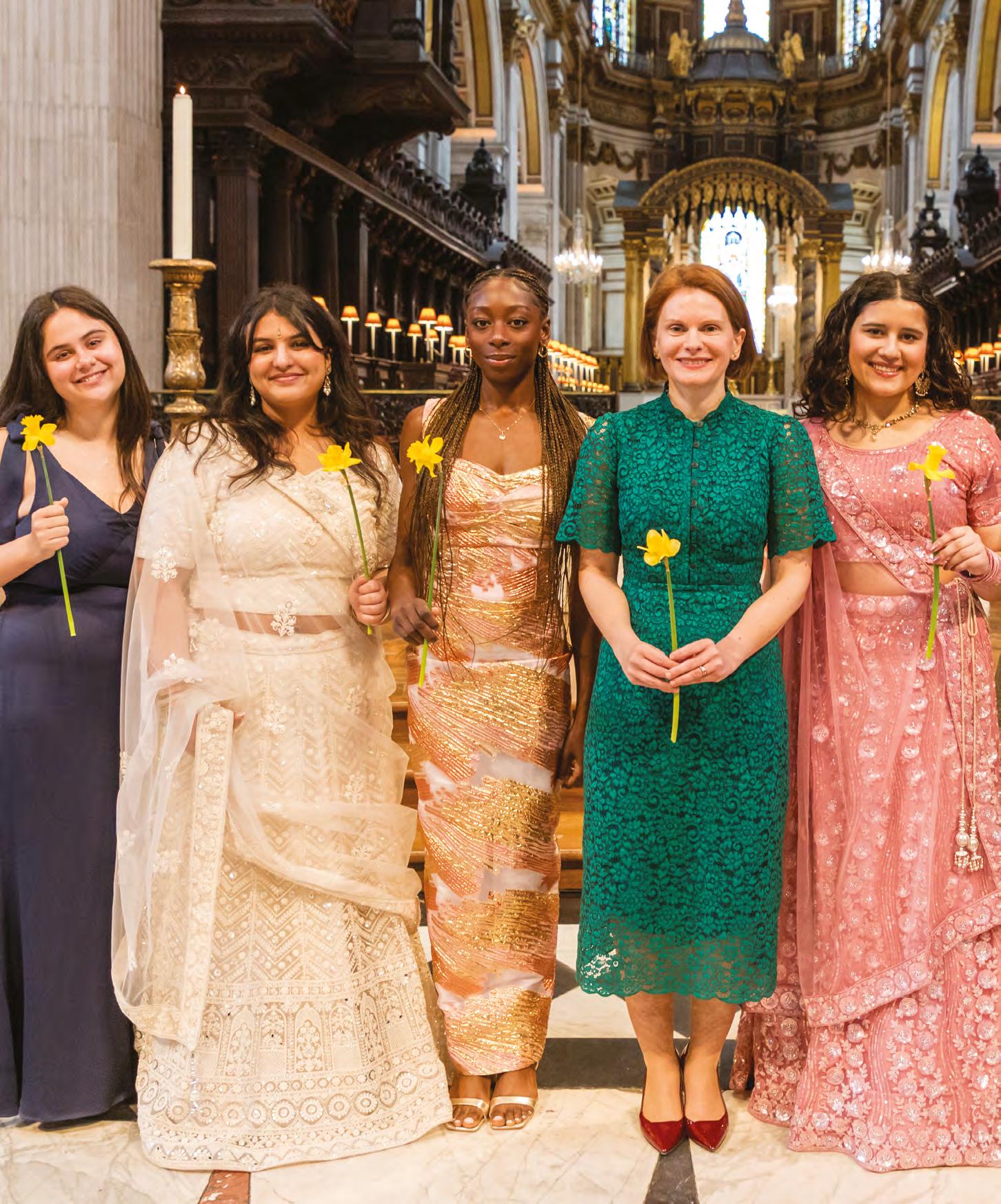
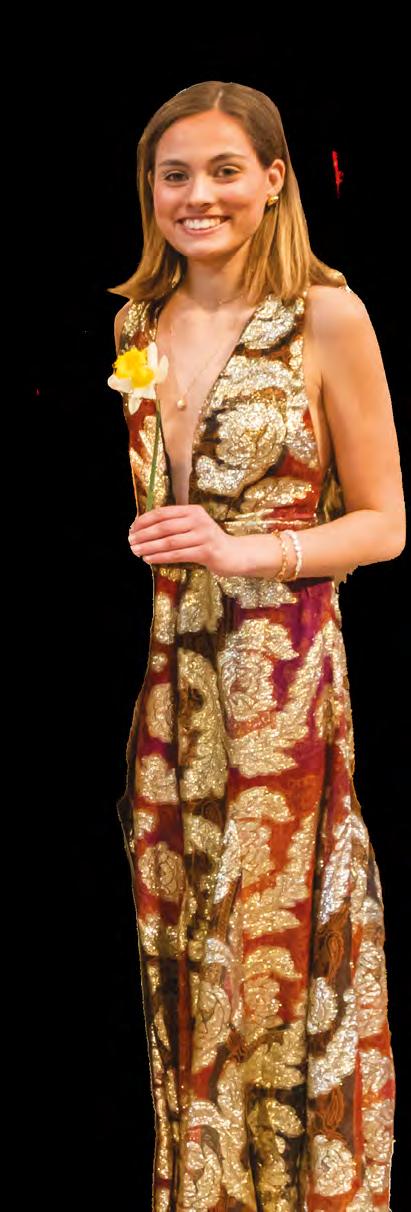
t Paul’s Cathedral is not often filled with yellow daffodils, but on Friday 21 March, the bright flowers blossomed in the hands of many.
In celebration of our 175th anniversary, this year’s Founder’s Day was held in the historic setting of St Paul’s. It was a fitting venue for a school with a long and purposeful history. The service began with the traditional daffodil procession, led by sixth form students, setting a reflective tone for the morning.
The cathedral was filled with members of the school community, both in person and online. Families, staff, students and alumnae came together to take part in the occasion and reflect on everything the school has achieved over the years.
Music carried that mood throughout the service. The Senior and Junior choirs, accompanied by the orchestra, performed throughout the service. Miss James gave a solo performance of Where’er You Walk, which was a particularly moving moment.
Canon Dr Paula Gooder gave an address, speaking about the courage and vision of Frances Mary Buss. Founding a school for girls at a time when few would have considered it was a bold step, and one that helped shape the values the school still holds today.
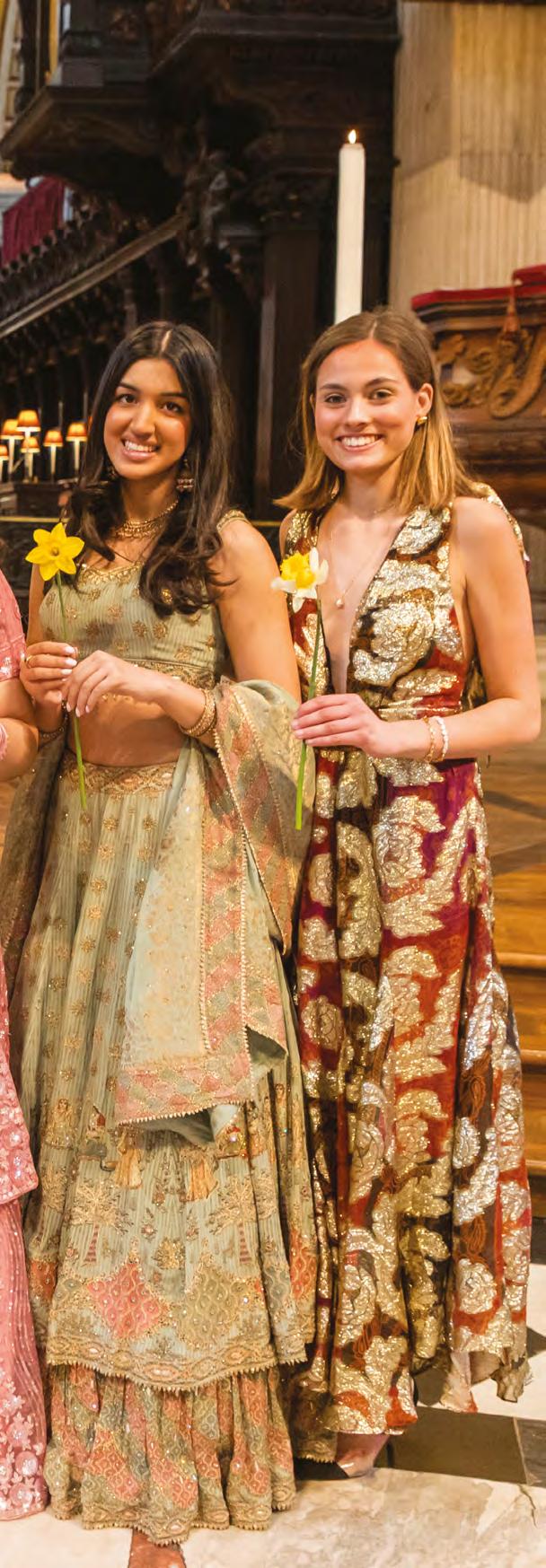
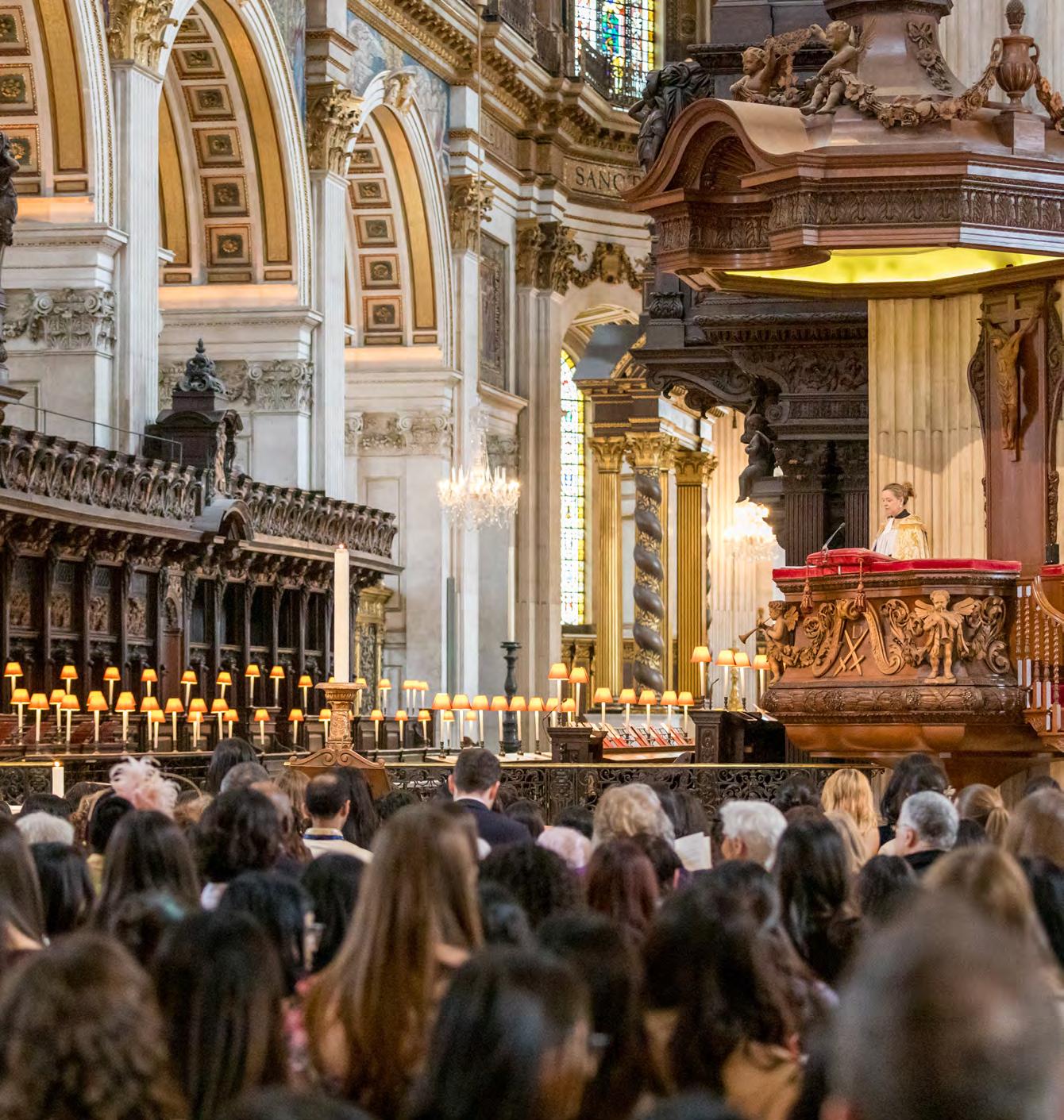
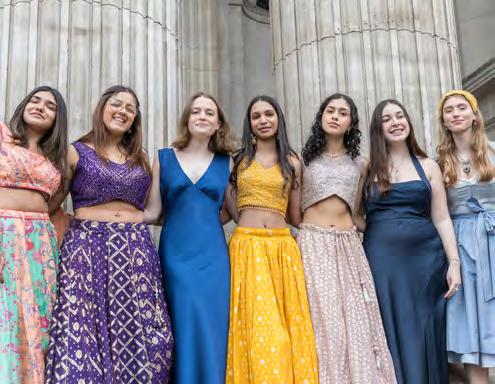
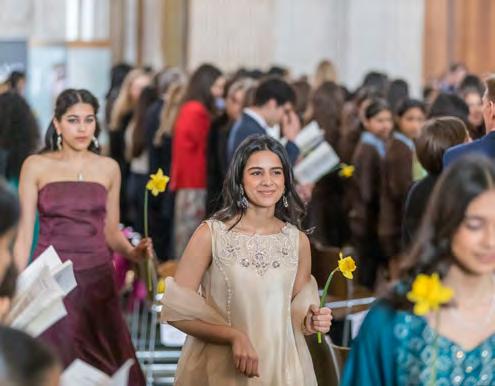
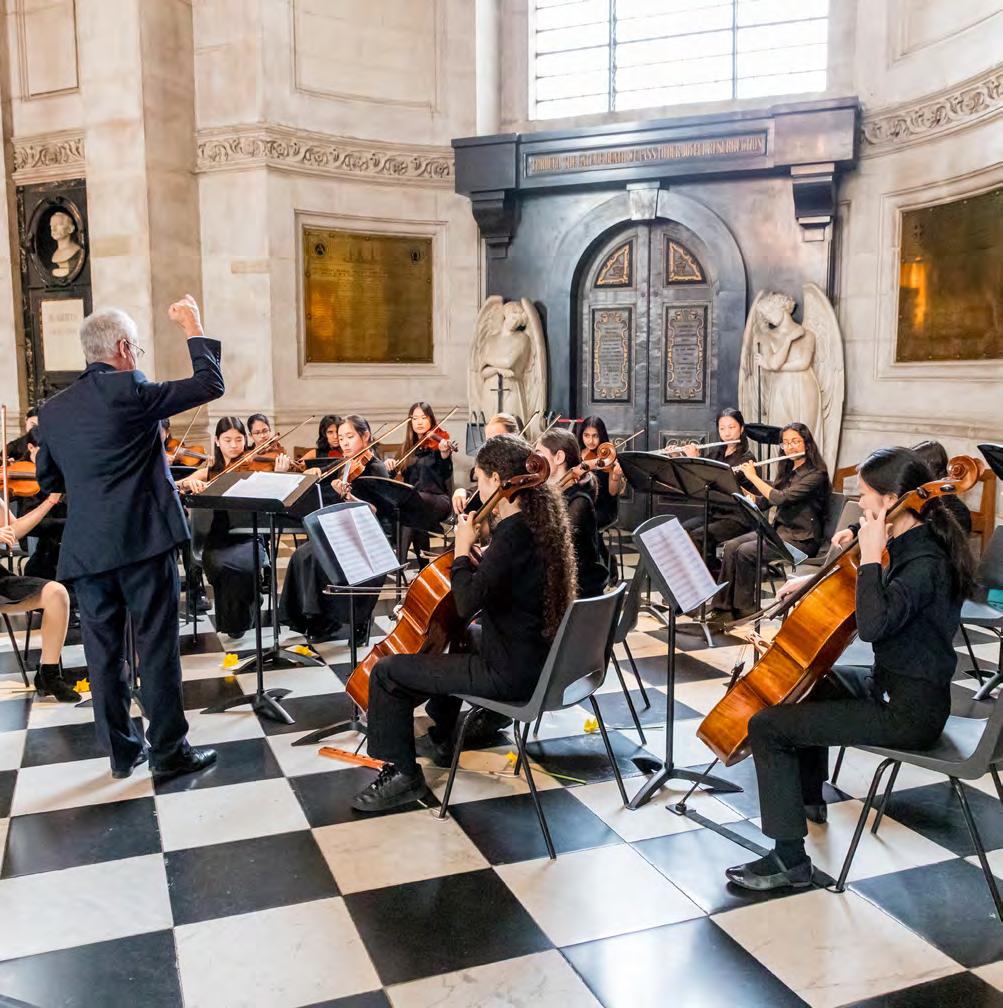
“ Class of 2025, you are a force to be reckoned with”
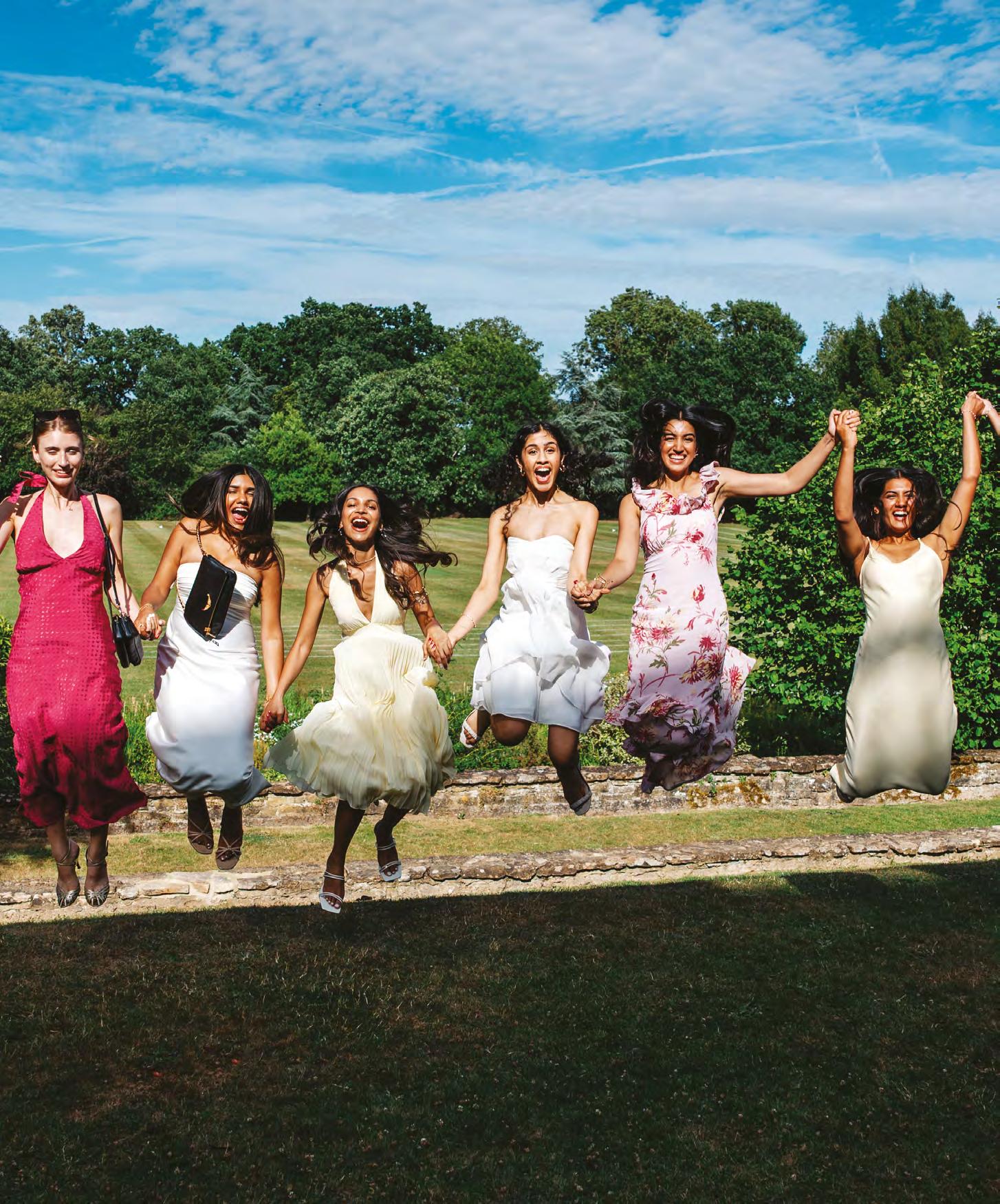
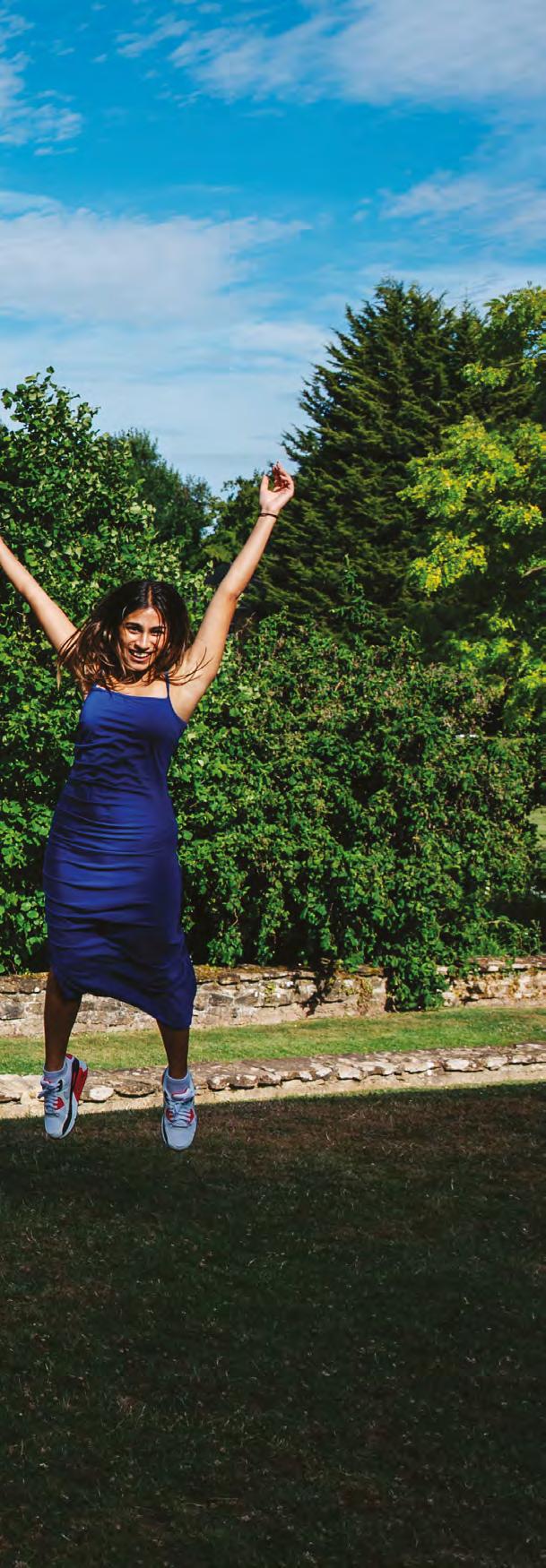
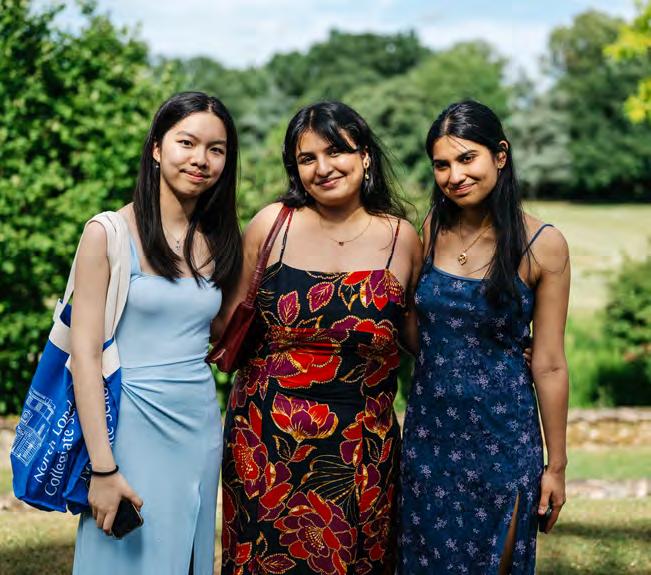
aledictory for the Class of 2025 was filled with reflection and
This is a class remembered for its irresistible charm and its ability to turn challenge into opportunity. They have written with depth, spoken with conviction, and led with a composure that belies their age.
Each student leaves with a story uniquely their own and within them lies the capacity to influence and to make waves that reach far beyond school walls.
As they continue into their next chapter, we have no doubt that they will be great at whatever they go on to do.

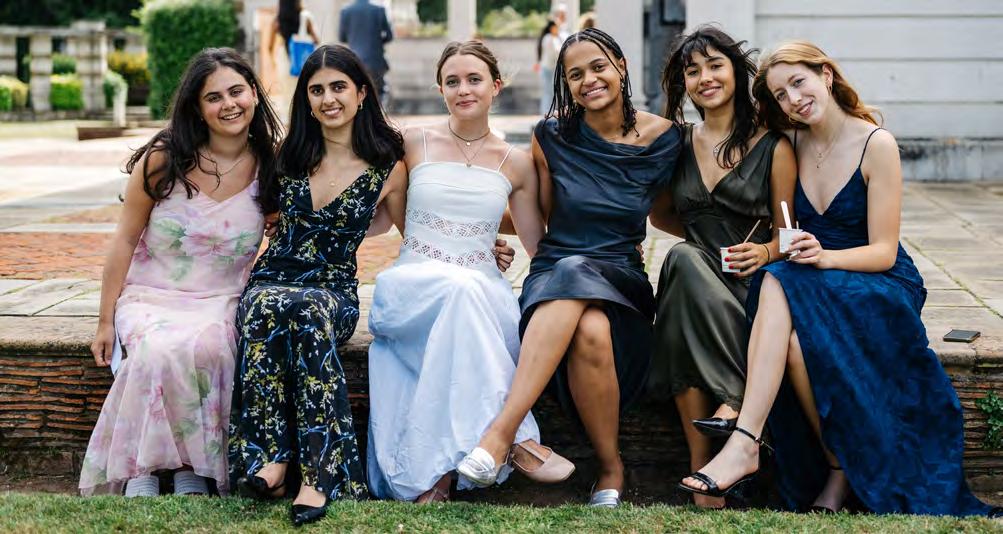
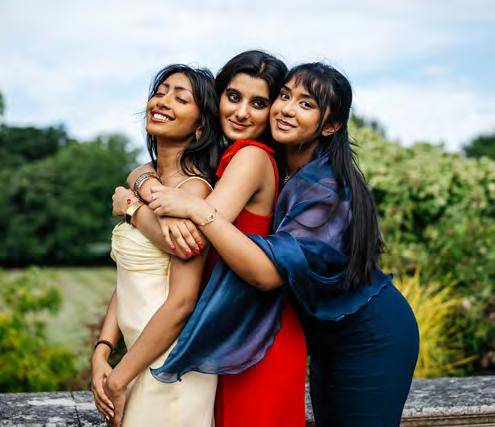
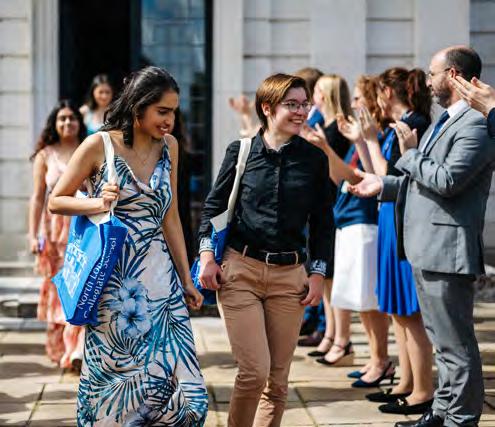
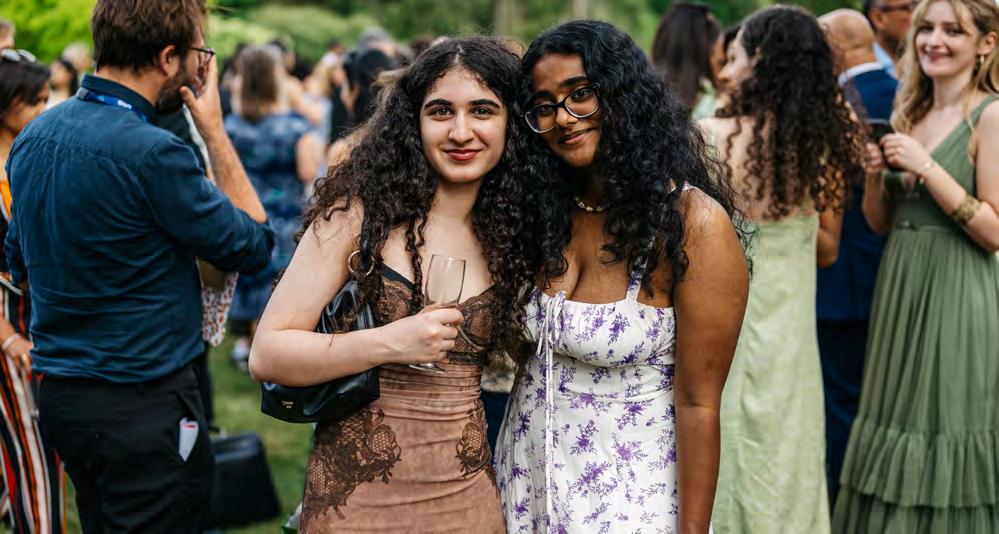
artnerships have remained a meaningful part of school life this
year.
Students across the school have worked closely with peers from other schools, taking part in collaborative projects that have opened up new ways of thinking and learning.
In the Senior School our long-standing partnership with Queen Elizabeth’s School for Boys remained a highlight. After their university entrance exams, Year 13 students from both schools came together for a series of discussionbased sessions. These weren’t revision classes, but a space for students to explore complex ideas and prepare for university-level dialogue.
Literary collaboration was in focus once again during our annual T. S. Eliot Poetry Prize symposium. Students from local schools joined us to study the year’s shortlisted works, using them as a springboard to discuss identity, ambition, race, and language.
Perhaps the most exciting development this year was the launch of the Eureka Schools Partnerships Programme, which engages over 500 students from local schools. Through enrichment days and themed workshops, students worked collaboratively on projects led by our subject specialists. A highlight was the Step into STEM Robotics Workshop where 30 students from six different schools came together for a day of activities in the Ideas Hub. Alongside academic content, these sessions focused on soft skills such as teamwork and problem-solving. The opening of the Ideas Hub has also enabled us to offer training and CPD for visiting staff.
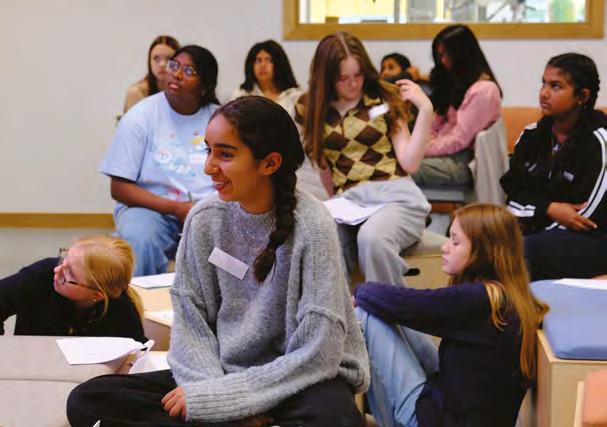

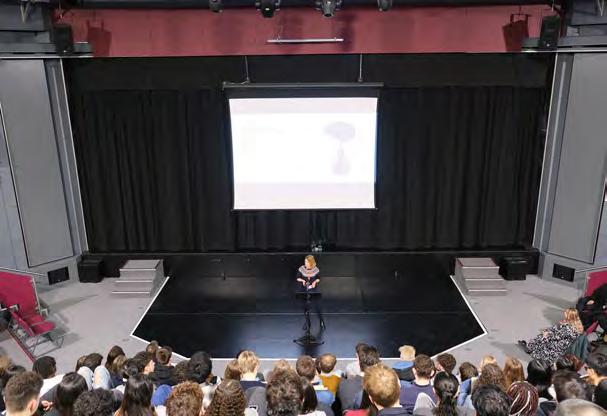
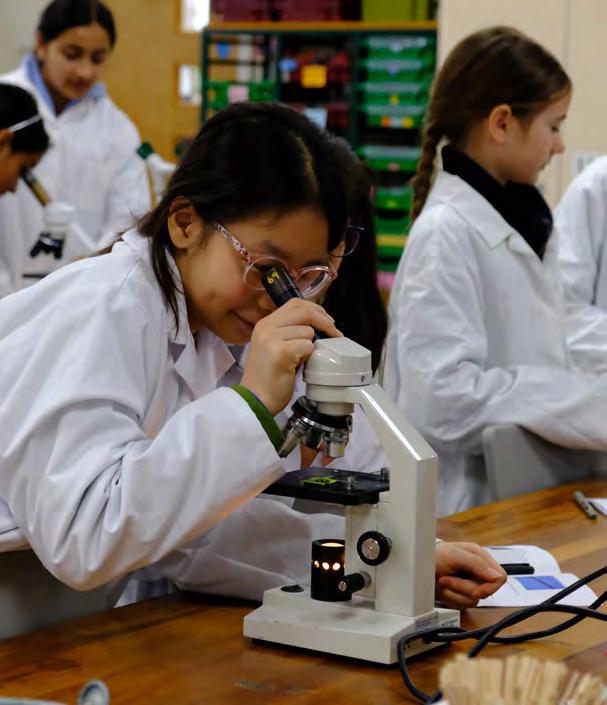

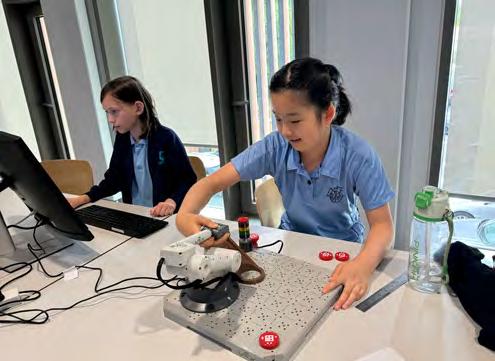
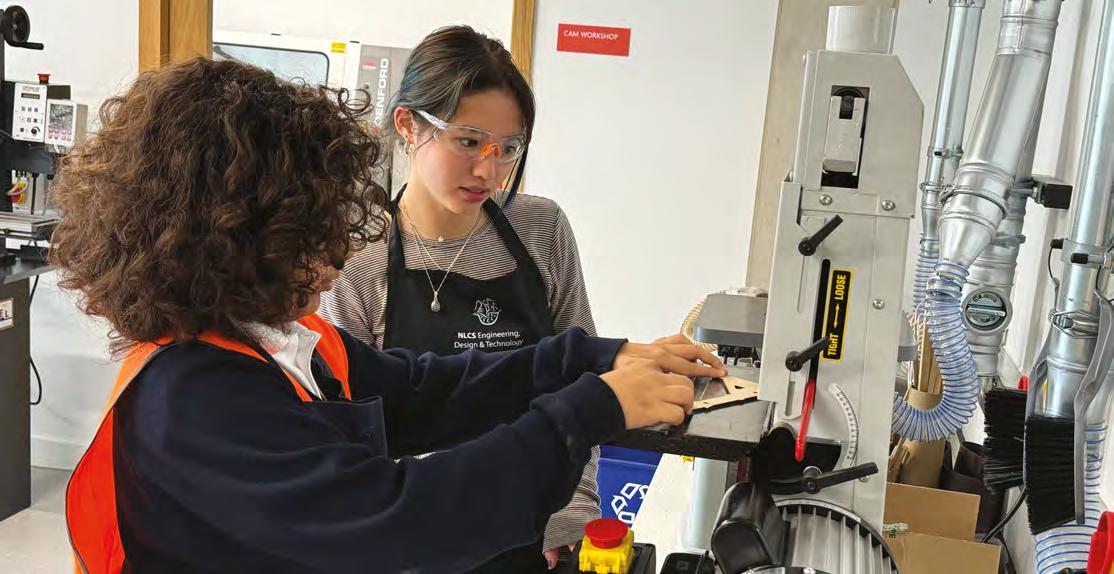
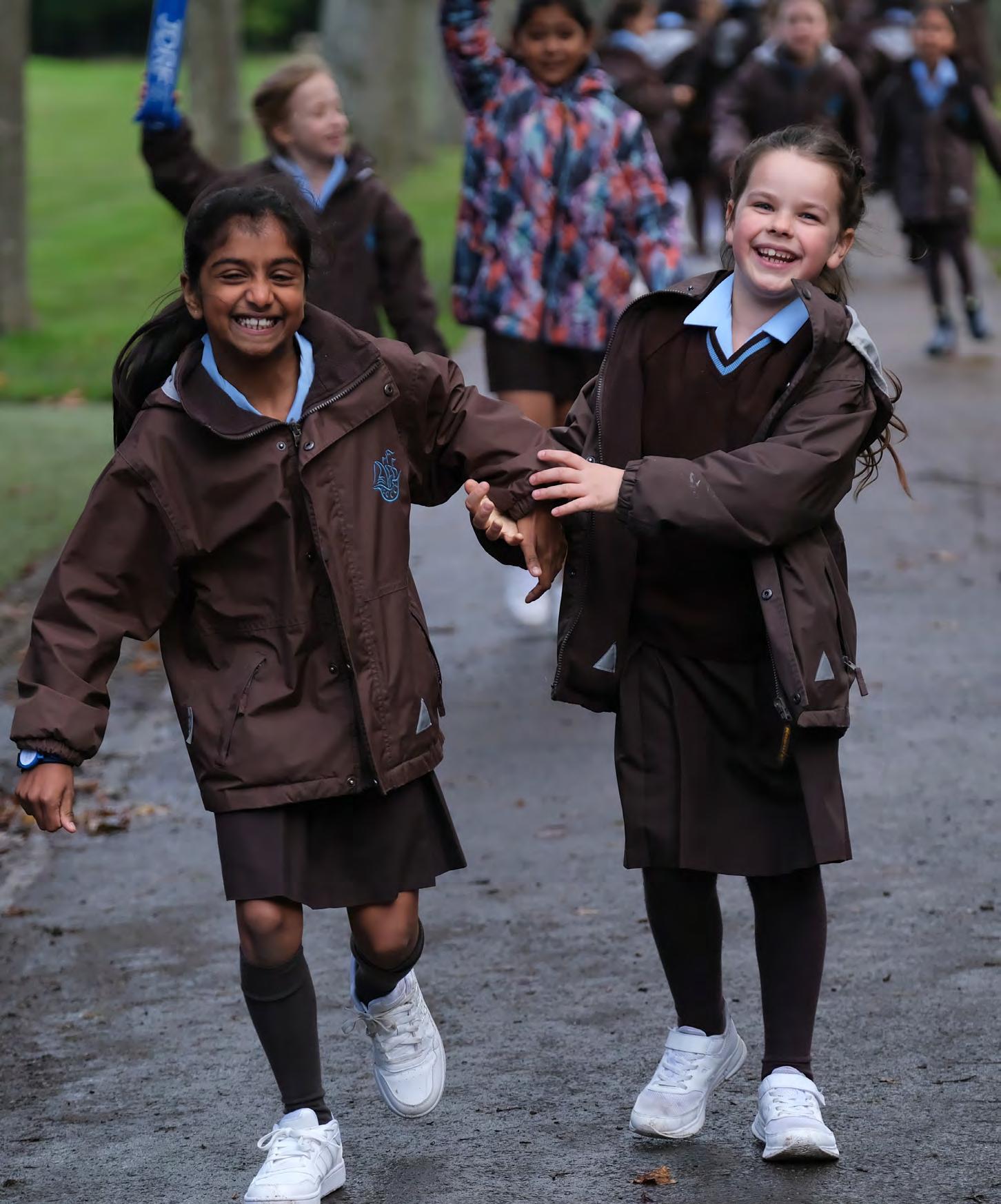
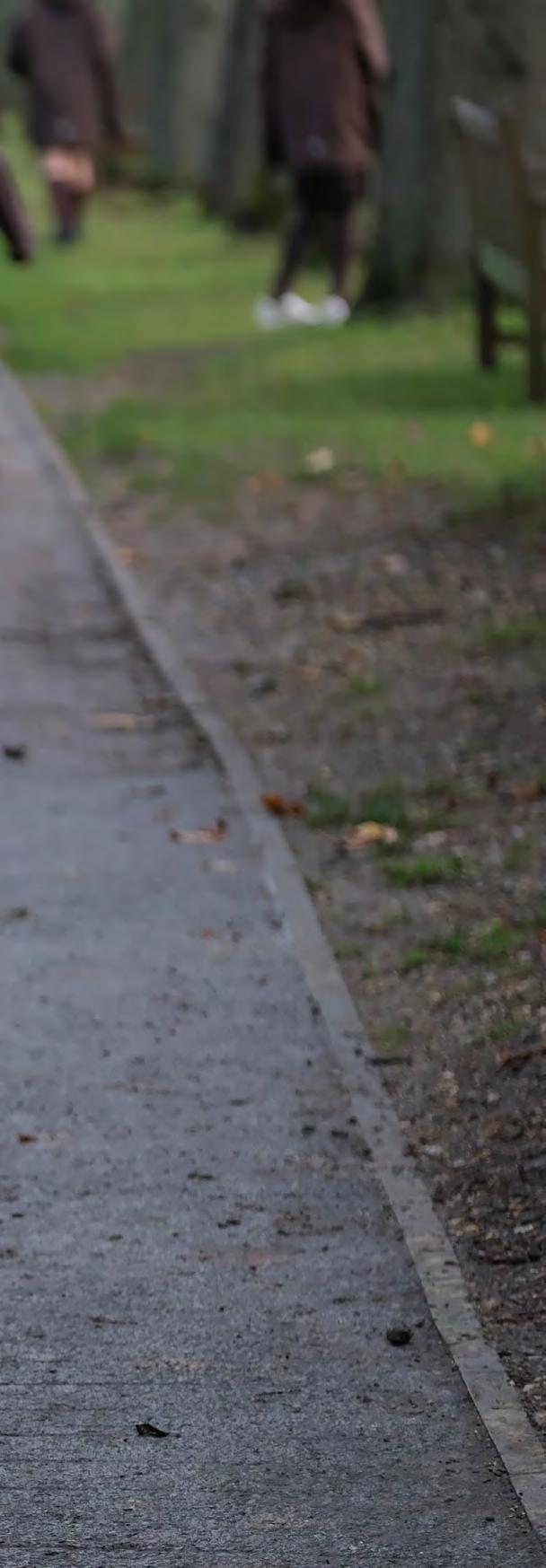
Each year, students in the Senior School choose a main charity to support, while Junior School girls select a new cause each term.
These decisions are never taken lightly. Girls research real-world issues and ask themselves what they want to stand behind. Though each section picks a focus, fundraising efforts often reach multiple organisations across the year.
In the Senior School, students voted to support Project Waterfall, a charity working to bring clean water and sanitation to schools in Ethiopia. What seemed at first a simple mission quickly unfolded into something more complex. Students learned that in many communities, children walk for hours to collect water which means time lost from lessons. Without access to clean water, education and health suffer. With support from NLCS, Project Waterfall is helping change that reality, school by school.
In the Junior School, pupils began the year supporting Breakthrough T1D, a charity advancing research into type 1 diabetes.
Founded by families affected by the disease, the organisation has grown into a global leader funding innovative treatments and working toward a cure.
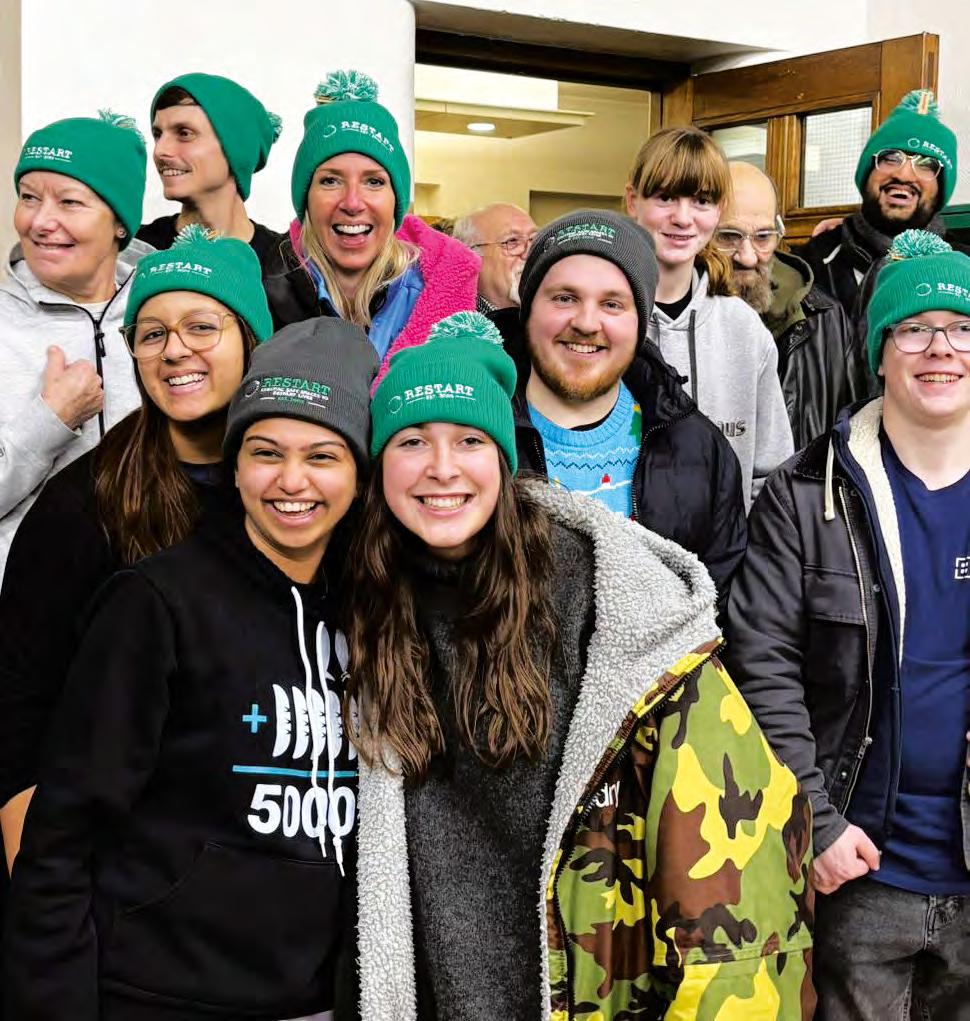
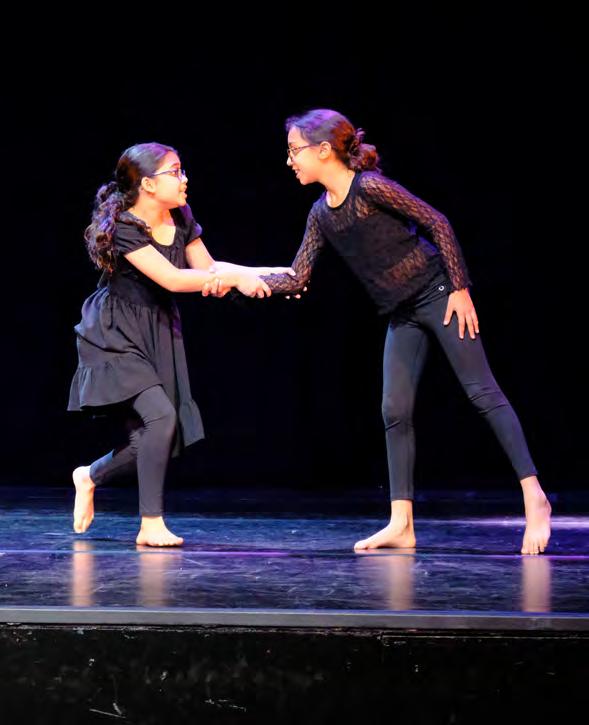
Fundraising this year wasn’t just thoughtful, it was active. Junior School girls began with a “One Walk” event in the autumn, taking to the school grounds for a 1K walk, with some pushing themselves to 4K in just 30 minutes.
In the Spring Term, Lower School girls took to the stage to support icandance, a charity that believes in the healing power of movement. Their energy and creativity lit up the PAC stage, reminding us that dance is more than performance; it can be transformative.
In the Senior School, familiar events like bake sales and Y.O.U Days continued, while Canonaid added something new: “Dress to Impress,” a teacher challenge inspired by an online game. With the help of the Drama Department’s costume store, staff turned up in unforgettable outfits. Always a highlight, the Lip Sync Battle saw Senior Leadership face off with other departments for the crowd’s vote.
We also continued our support for Food Bank Aid, whose team were overwhelmed by this
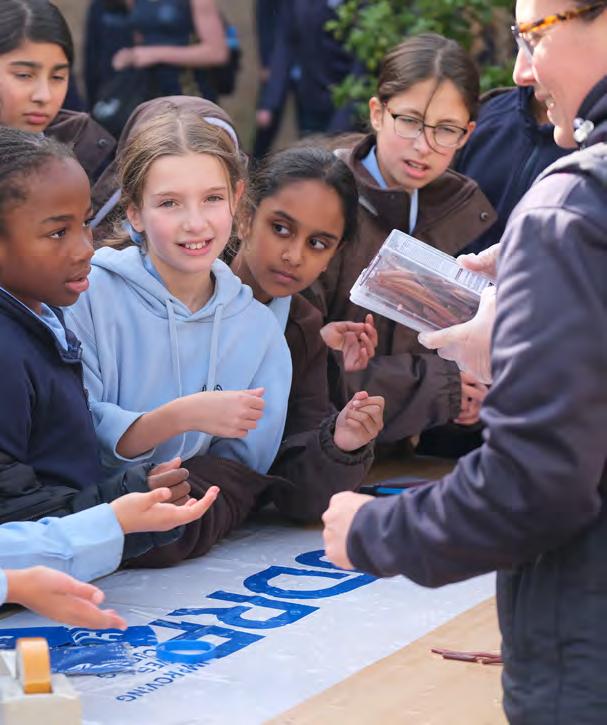
year’s response. Donations filled so many boxes they had to return for a second collection.
Sixth Form students took on a different challenge this year. A group braved the cold, wet streets of London for a night, joining a sleep-out in support of Restart Lives, a charity helping homeless people rebuild their lives. They raised over £2,000. Reflecting on the experience, Charity Committee Chairs Imani and Indie said, “Although cold and wet, the sleep-out was a powerful reminder of the challenges homeless people face every day, and an opportunity to make a real difference.”
In the Summer Term, the Junior School supported Hand on Heart WWP, a charity helping rough sleepers across the UK. With the help of the Junior School Council, girls raised over £1,400 through cake sales, non-uniform days, and arts and crafts sessions. The final effort was a Canonaid Packing Day, where students assembled 200 care packages, complete with hand-decorated cards.
For the past 26 years, students have taken part in an evening dedicated to fashion and raising funds for a very worthy cause.
Each year, the show is built around a theme that guides the designs and gives the evening its character. This year, inspiration came from William Wordsworth’s ‘I Wandered Lonely as a Cloud’. The poem features the speaker’s experience of wandering alone in nature and coming across a field of daffodils, which fills them with joy and tranquillity. Its reference to daffodils held a deeper meaning, tying directly to the annual Founder’s Day procession, where students carry daffodils in tribute to Frances Mary Buss.
The evening featured a wonderful display of the students creativity, with a parade of outfits on the catwalk, a panel of judges, an auction, and prizes for various fashion categories. The
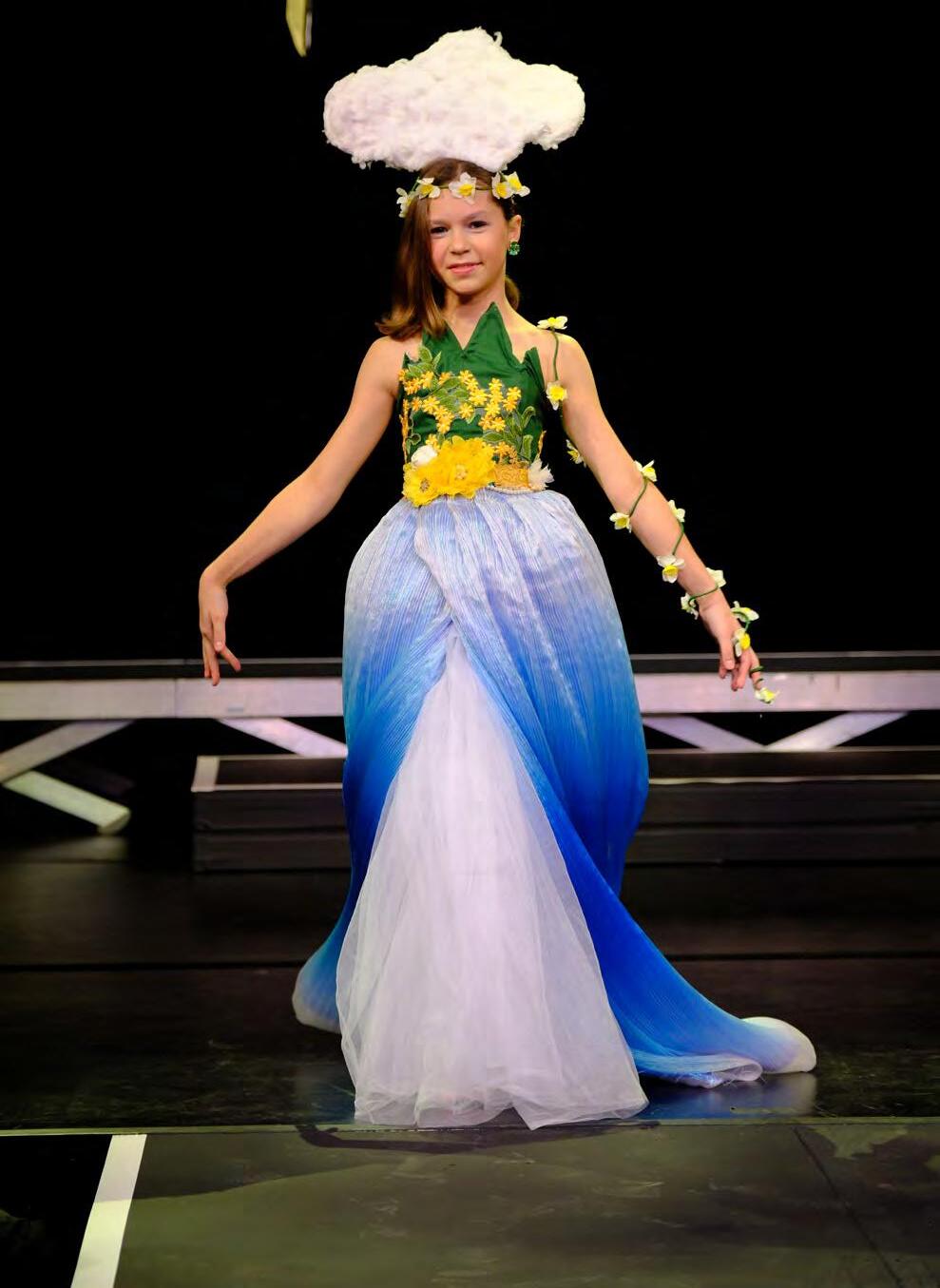
students go above and beyond perfecting their designs, sourcing material, organising fittings and working together to make the event enjoyable for everyone.
This year, we raised £2830 for Advance Myanmar, supporting the Karenni people. Founded in 1999 by Stephanie Lee, the Karenni Student Development Programme (KSDP) provided aid in Burma. After her passing in 2001, her parents took over, later redirecting funds to Advance Myanmar in 2022. To date, NLCS has raised over £150,000, continuing Stephanie’s legacy.
From the very first show, Fantasy Fashion has continued to grow in its impact within the school and the wider community.
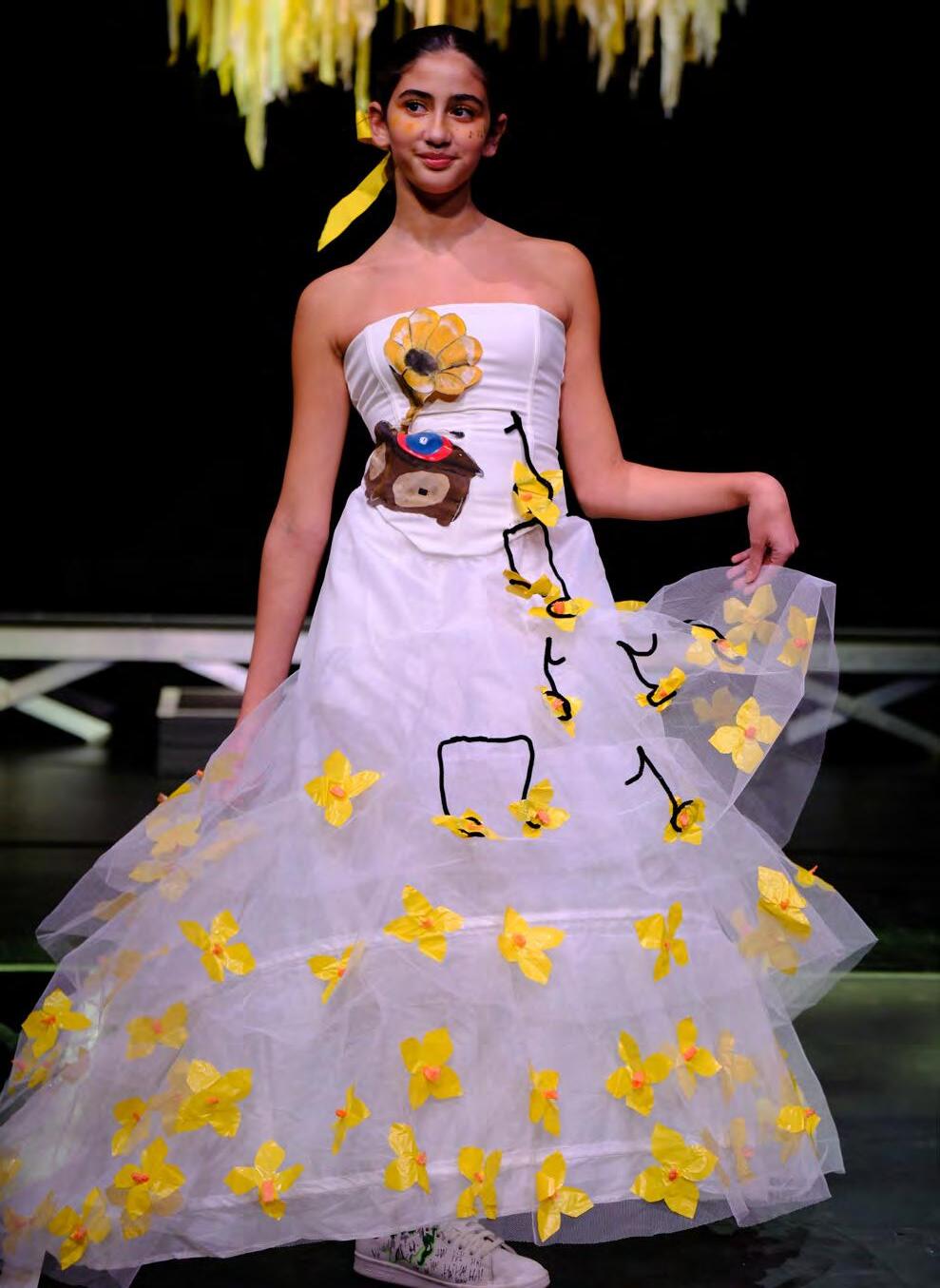

There were no bold slogans or overly choreographed campaigns. Instead, the focus was on what really matters: making students feel safe, seen, and supported, even on the busiest days.
One of the most important sources of this support has been the tutor system. With two Form Tutors assigned to each pupil group, students had trusted adults who genuinely got to know them and monitor their progress over the academic year. This year’s survey reflected that growing trust with 88 percent of Senior School pupils saying their tutors knew them well, a significant rise from 75 percent in 2022. Just as encouraging, over 93 percent said they felt comfortable speaking to a member of staff about something personal. In a school that moves at pace, those relationships provided moments to pause and feel understood.
Advice from an older student often comes across as relatable for younger students and that proved true again this year. Whether it was helping a Year 7 find their feet or offering tips before exams, older pupils stepped in with guidance that felt natural, never forced.
ellbeing at NLCS this year was shaped by thoughtful routines and staff who listened.
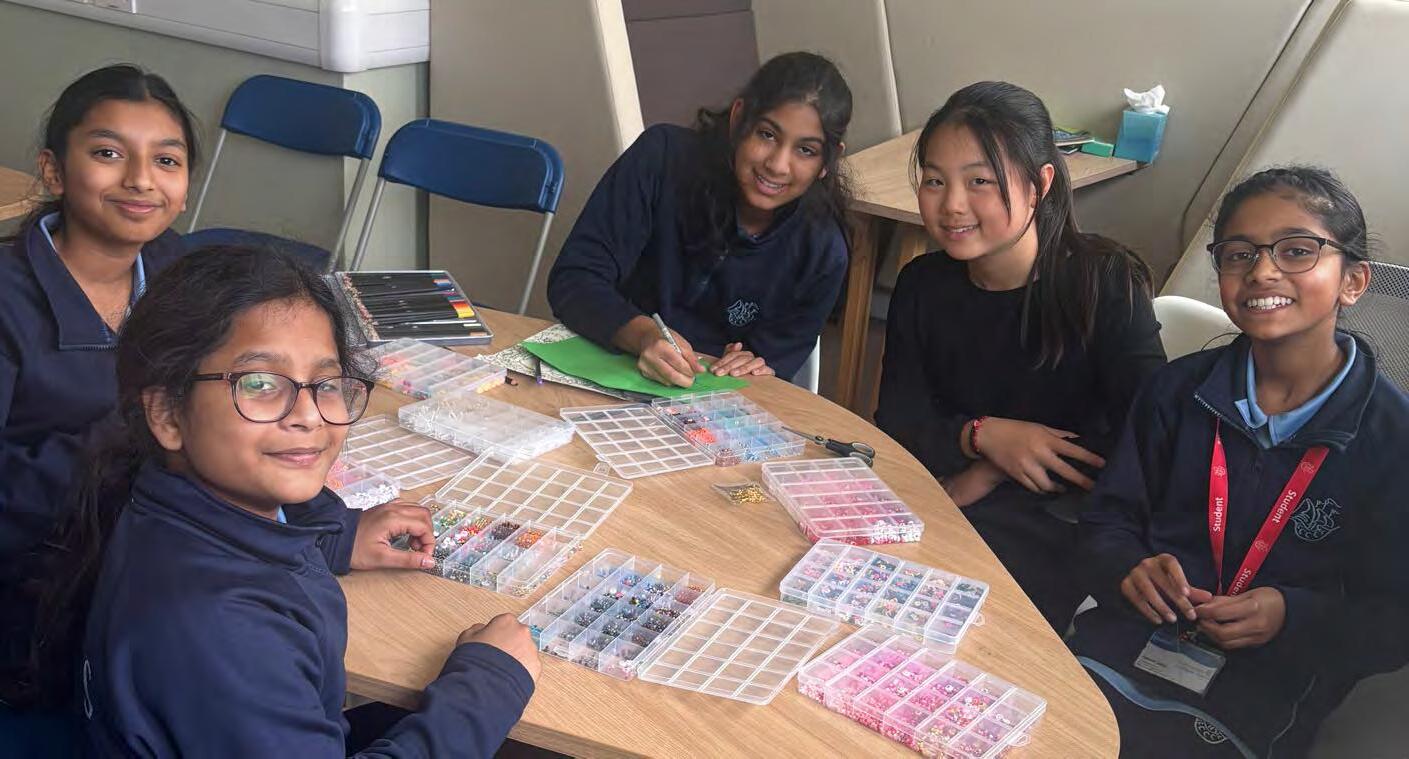


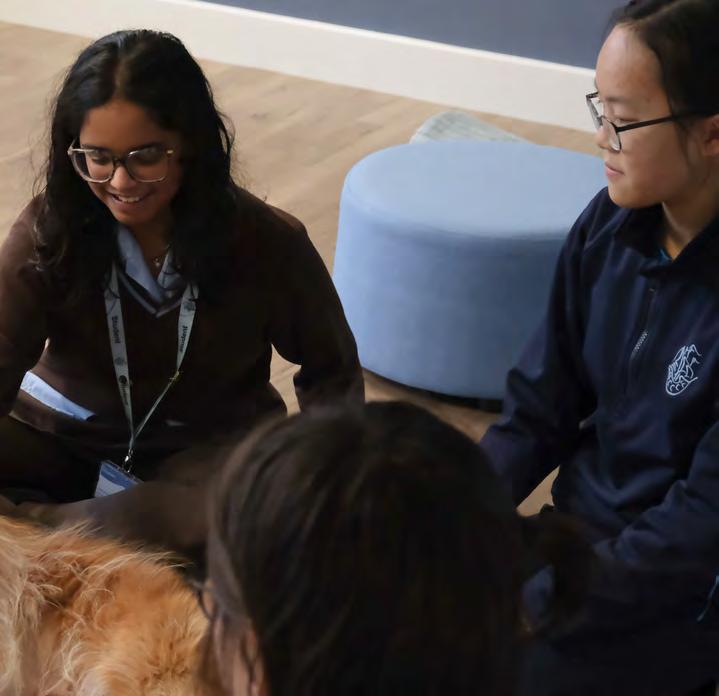
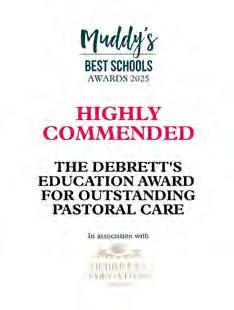
The Cedar Space remained a steady presence for those in need of a breather. Whether pupils came for counselling, small group sessions, yoga, or simply some silence, the space offered a gentle escape from the pace of school life. The arrival of Holly, the school’s therapy dog, brought a new and very popular layer of calm. Her ability to lift spirits with a simple wag of the tail made her an instant favourite among students and staff alike.
In the Senior School, digital wellbeing also received renewed attention. With the introduction of Yondr pouches, phones were put away during the school day, allowing more time for conversation and learning which made a noticeable difference. Alongside this, workshops on screen time and online safety helped pupils think more carefully about their habits. In our annual survey, every student reported feeling confident in how to stay safe online, which, in the age of infinite tabs, is no small achievement.
This year also saw the arrival of Praise Post, a way for teachers to send positive, personal messages home when a student displayed one of our six school values (courage, commitment, purpose, community, aspiration and curiosity).

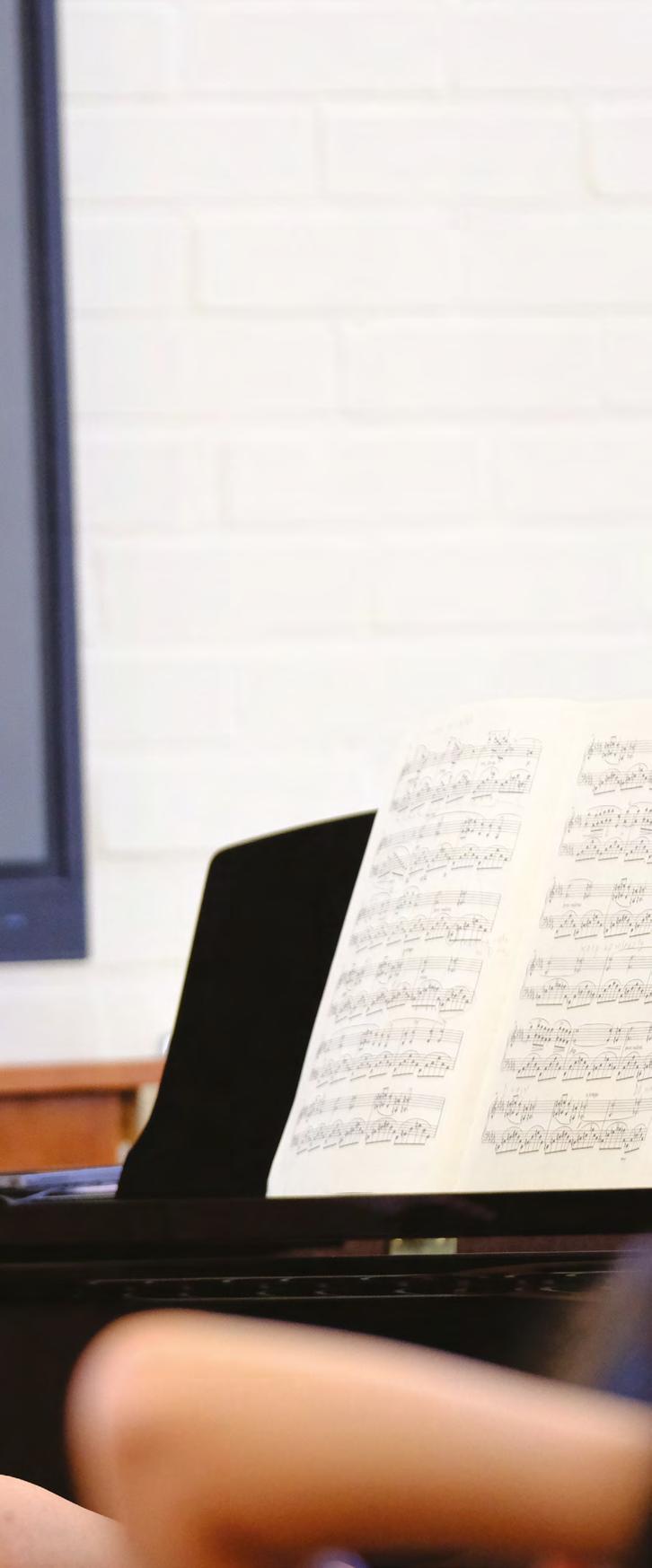
Philanthropy has always been part of the spirit of community that defines North London Collegiate School, and this milestone year has been a springboard into its next chapter. The generosity of our parents, alumnae, former staff and friends has enabled us to celebrate our heritage while investing in the future, ensuring that our school remains a place where every girl can thrive.
The launch of The Work in Hope Fund embodies this commitment. Inspired by the School’s four pillars of intellectual tradition, investment in the individual, intrepid innovation, and impact & influence, the Fund channels this generosity into areas that make a difference to our students and the wider NLCS community. From bursaries to pioneering programmes such as Raising Voices and the launch of the Ideas Hub, donor support is powering innovation and creating new opportunities.
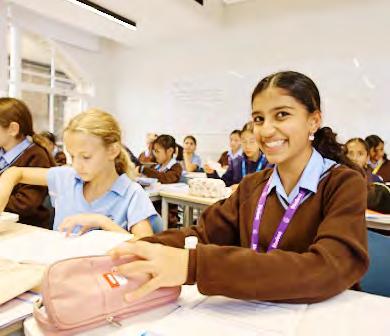
This year, the school received a transformational legacy gift from the late Carol Smith (ONL 1955) for the renovation of the Richardson Building. Improved acoustics, writing walls and innovative desks allow for easier collaboration, problemsolving, and the kind of thinking-out-loud that deepens understanding. As an FMB Fellow; a community of alumnae and friends that have committed to leaving a gift in their will, her generosity is a powerful reminder of the lasting impact ONLs can have on future generations.
This spirit of connection has also been at the heart of our work with the wider alumnae and supporter community.
ONLINE, our magazine for Old North Londoners, was relaunched this year with a special 175th anniversary edition that celebrated alumnae achievements and highlighted the impact of giving.
Reunions and regional gatherings offered ONLs the chance to network and reminisce on their time here, and many chose to give back by taking part in many aspects of school life.
ONLs provide guidance on university choices, conduct mock interviews, mentor, and offer advice on career pathways. They also take time out of their incredibly busy lives to present at Senior Societies and sit on panels, sharing their expertise and experience across a variety of subjects and disciplines. Their involvement
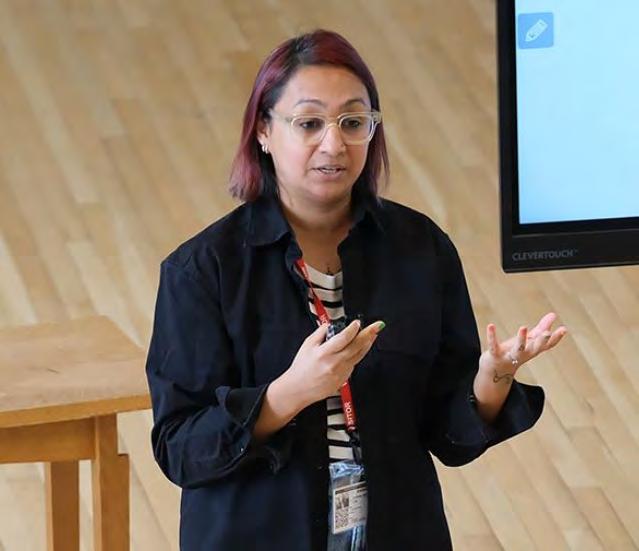
enriches our curriculum and programmes at NLCS, sparking curiosity and encouraging new ways of thinking.
A highlight this year was pianist Margaret Fingerhut MBE (ONL 1973) returning to deliver a recital and masterclass, inspiring pupils with both her performance and her teaching.
As we look ahead, we invite every member of our community to help shape the next 175 years, strengthening connections across generations and ensuring our legacy of generosity continues to transform lives for generations to come.
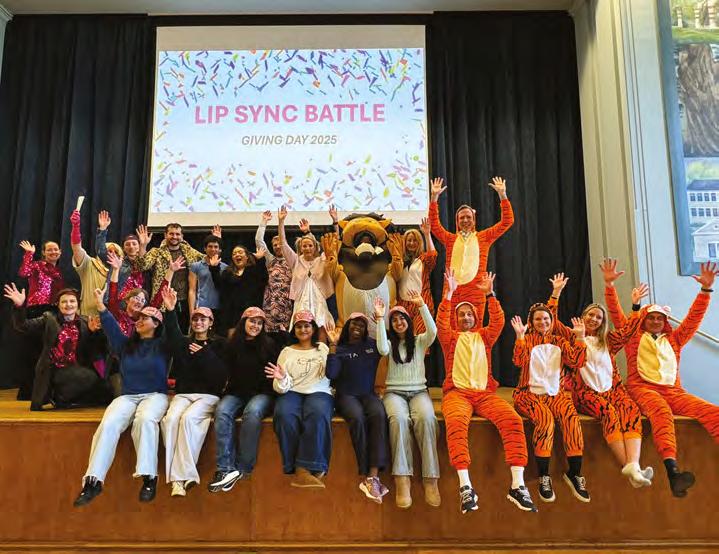
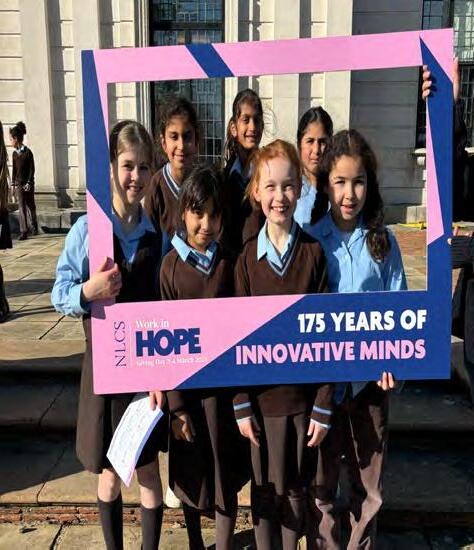
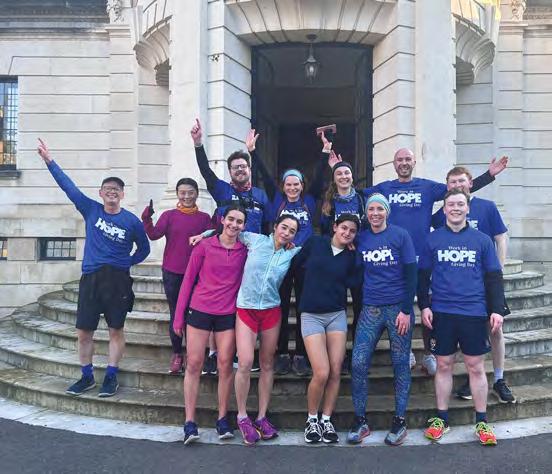
Across two days, students, staff, alumnae and families came together to support The Work in Hope Fund, a campaign rooted in the values of access, opportunity and educational purpose.
Both current and former parents made an extraordinary impact on Giving Day 2025, contributing 58% of all gifts and helping to raise £278,000 for the School.
These funds will support programmes that enrich the academic experience, including the Bernice McCabe Bursary Fund, which widens access to an NLCS education; Raising Voices & Surge Start-Up Academy, which develops leadership and entrepreneurial skills; the Eureka Partnerships Programme, which strengthens links with local schools; and the Hardship Fund, offering support to families facing unexpected financial pressures.
As one parent shared on the Donor Wall, “The NLCS bursary fund allows girls from all walks of life to benefit from the opportunities this amazing school offers. I feel very fortunate to be able to contribute.”
A first for this year was the 17.5km challenge
run from Camden School for Girls to NLCS. Organised by staff and led by Headmistress Vicky Bingham, alongside three Year 11 students and eight colleagues, the run retraced the journey of Frances Mary Buss and unlocked an additional £17,500. Elsewhere, the Teacher Lip Sync Battle returned with bold costumes and choreographed performances. The PE department’s high energy routine secured a well-deserved win. In the Junior School, pupils took part in a 175th themed treasure hunt, working in teams to solve clues and explore the School’s history through outdoor learning.
Throughout the event, messages shared on the Donor Wall captured the lasting connection between the School and its community.
Giving Day 2025 was a celebration of progress and the enduring power of education.
“NLCS is more than just a school – it’s a family, and I’m proud to contribute to its continued success.”
